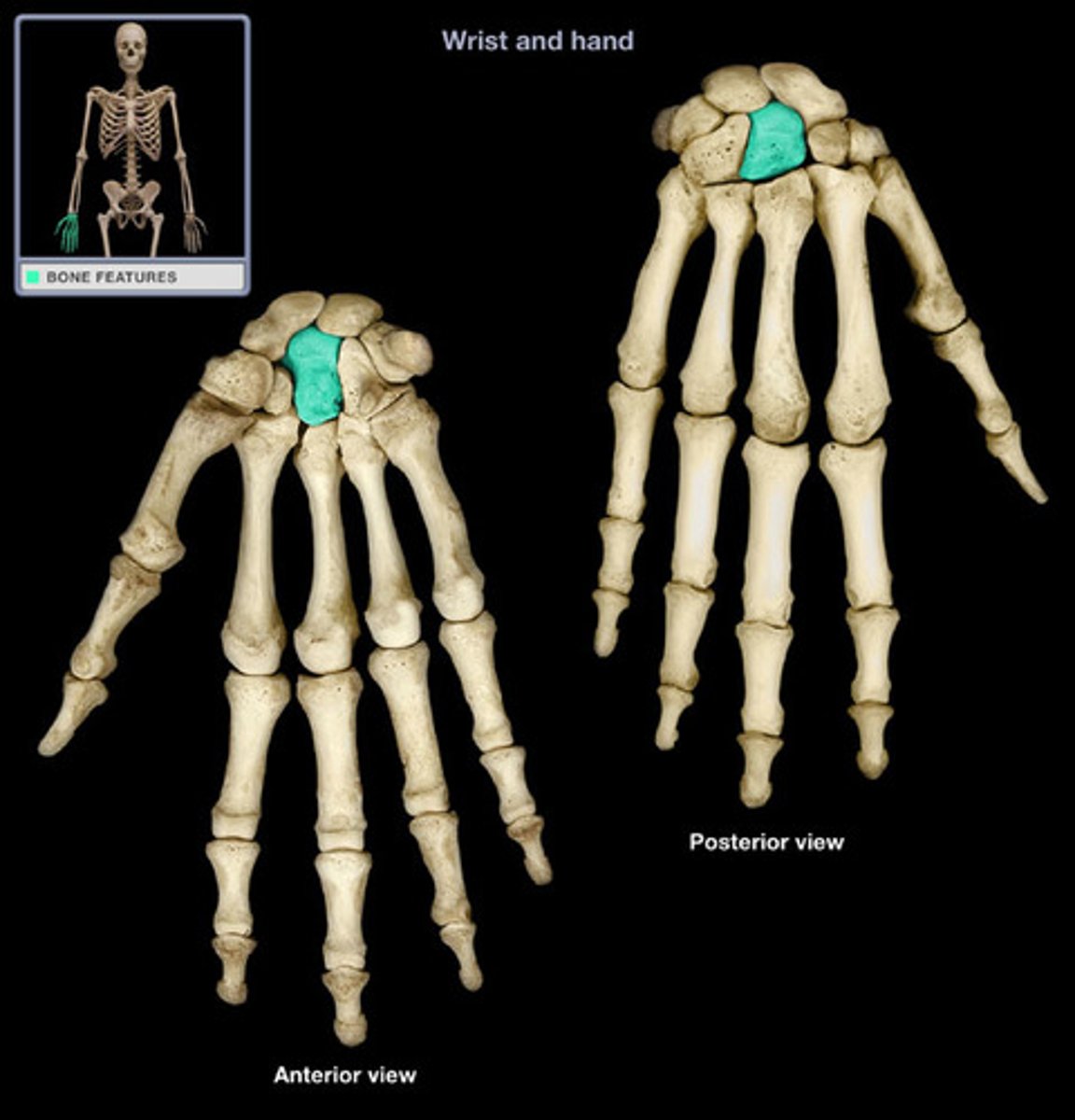102 Osteology and Organization of the Upper Extremities
1/101
There's no tags or description
Looks like no tags are added yet.
Name | Mastery | Learn | Test | Matching | Spaced | Call with Kai |
|---|
No analytics yet
Send a link to your students to track their progress
102 Terms
Sternum
identify the structure
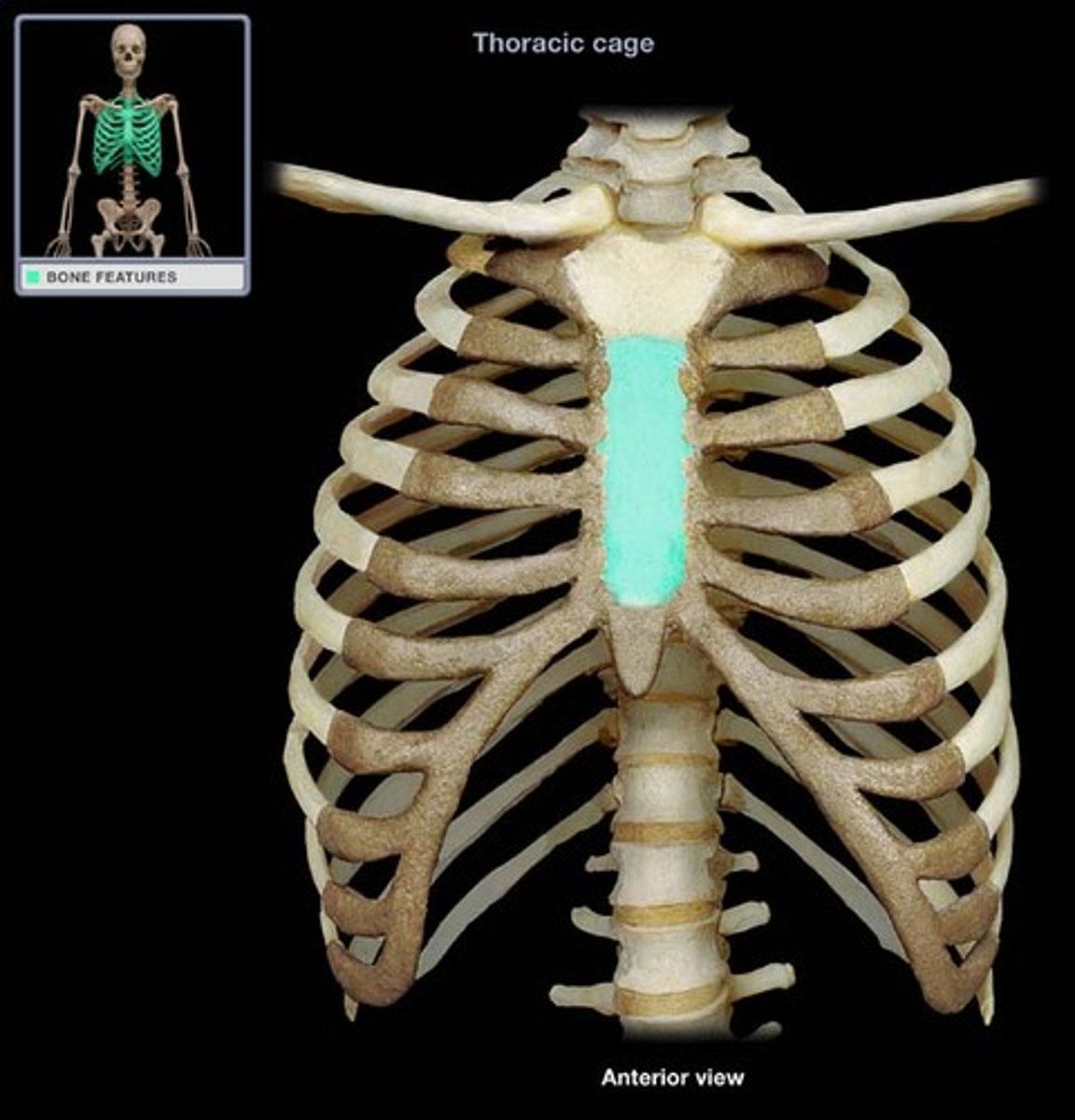
right clavicle
identify the structure
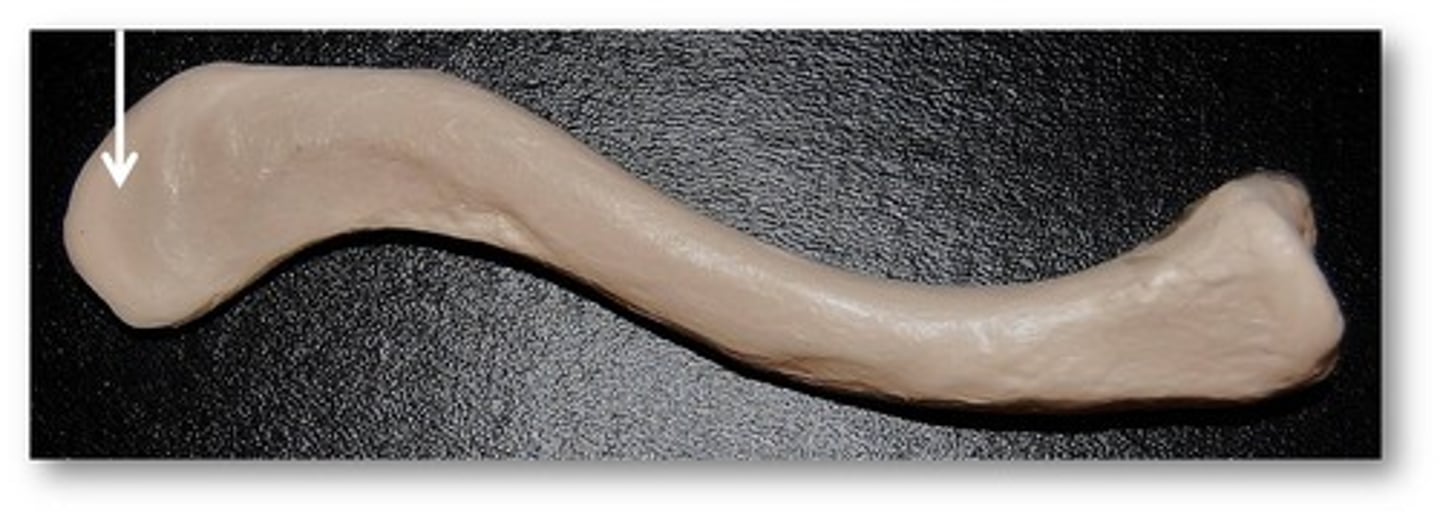
left clavicle
identify the structure
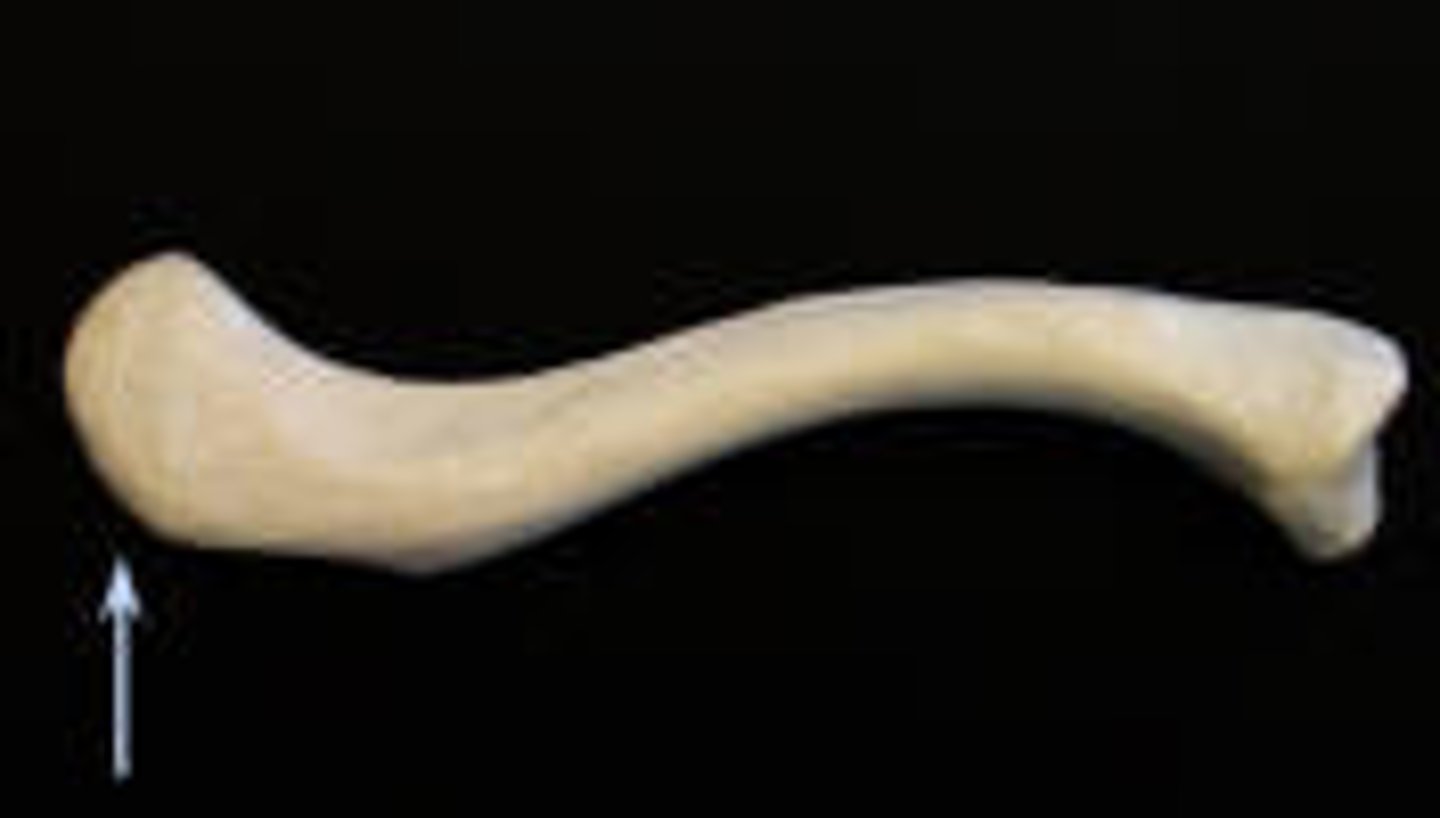
Scapula
identify the structure
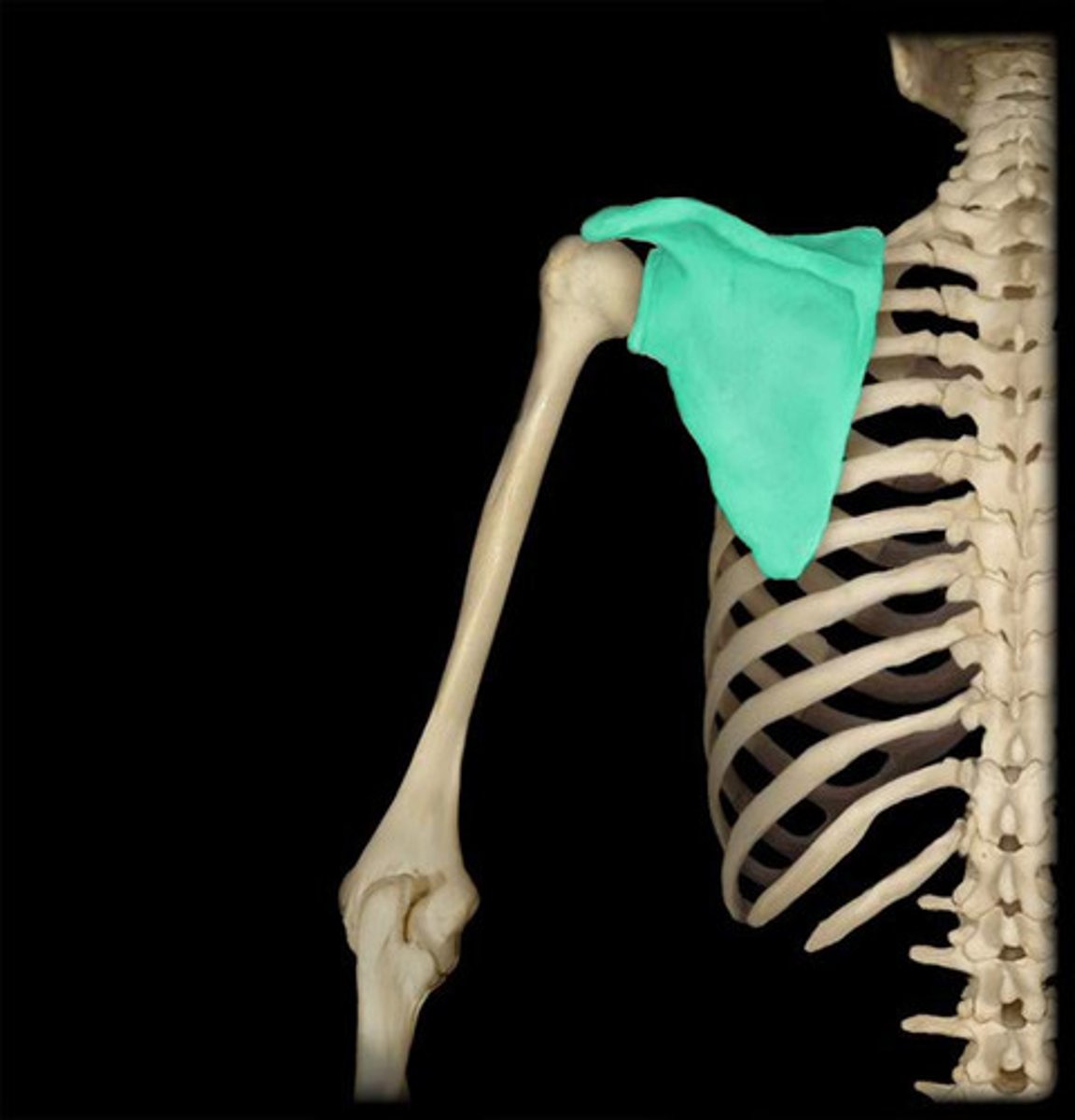
Humerus
identify the structure
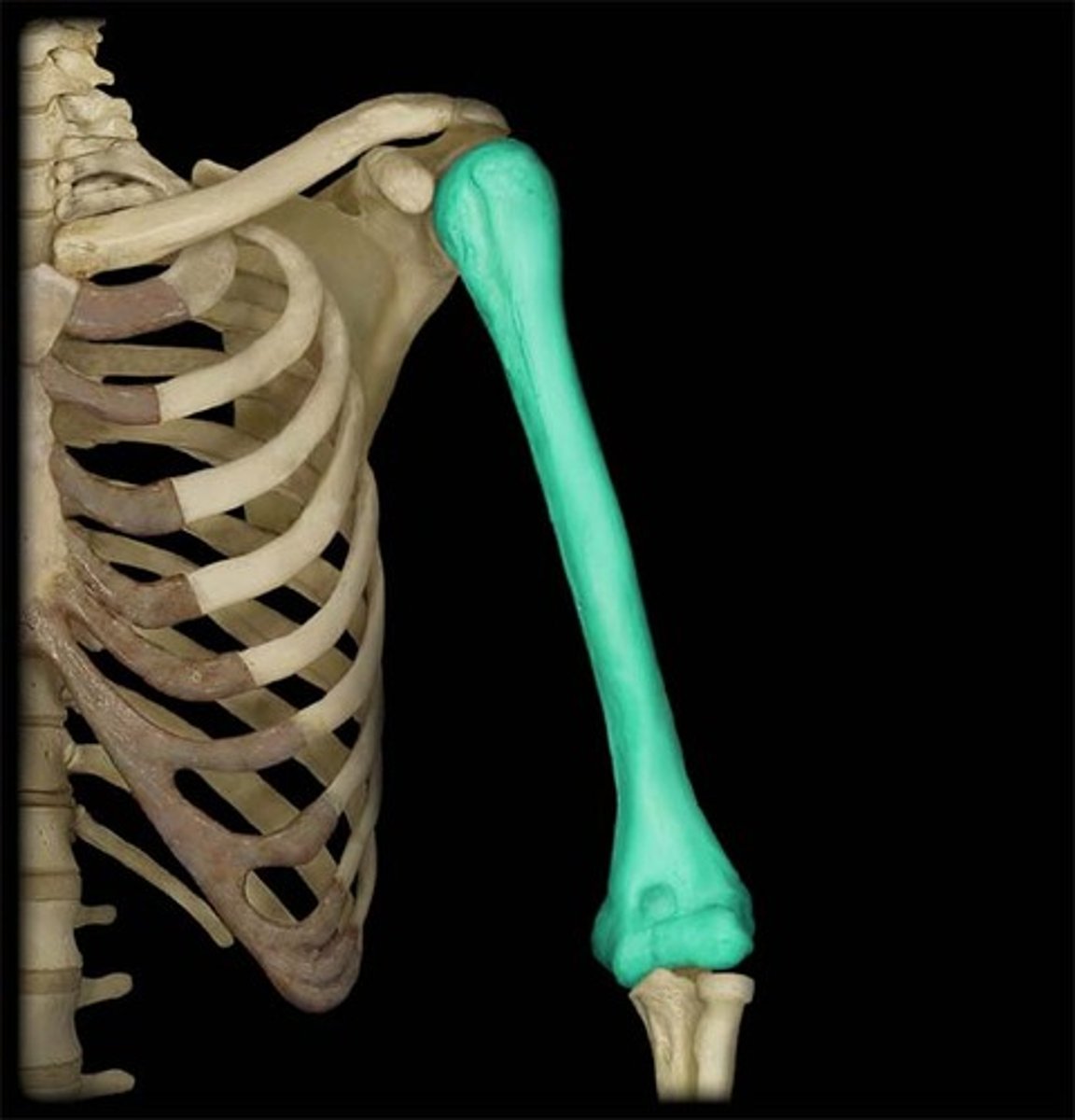
Acromion process
identify the structure
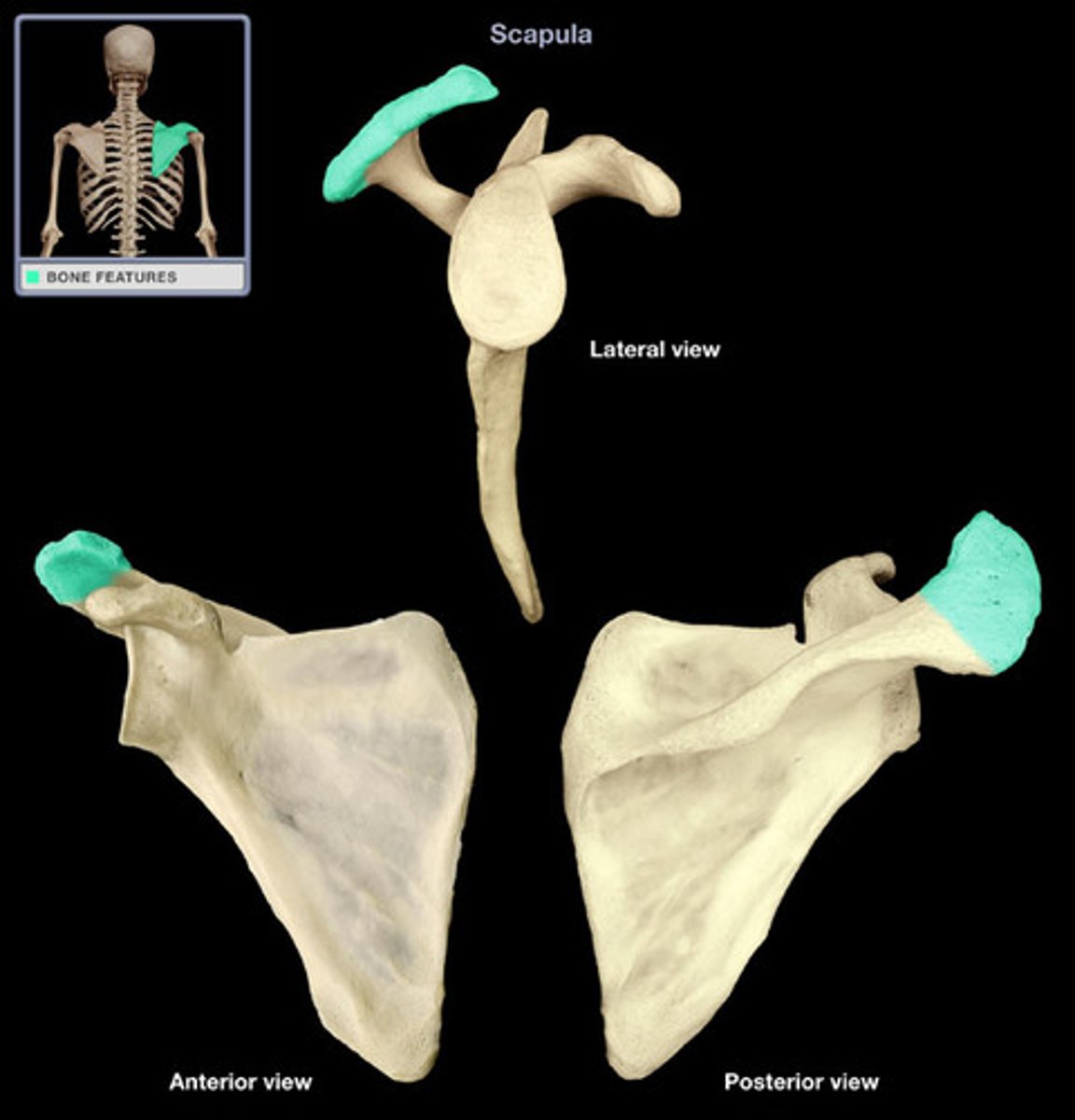
Glenoid fossa
identify the structure
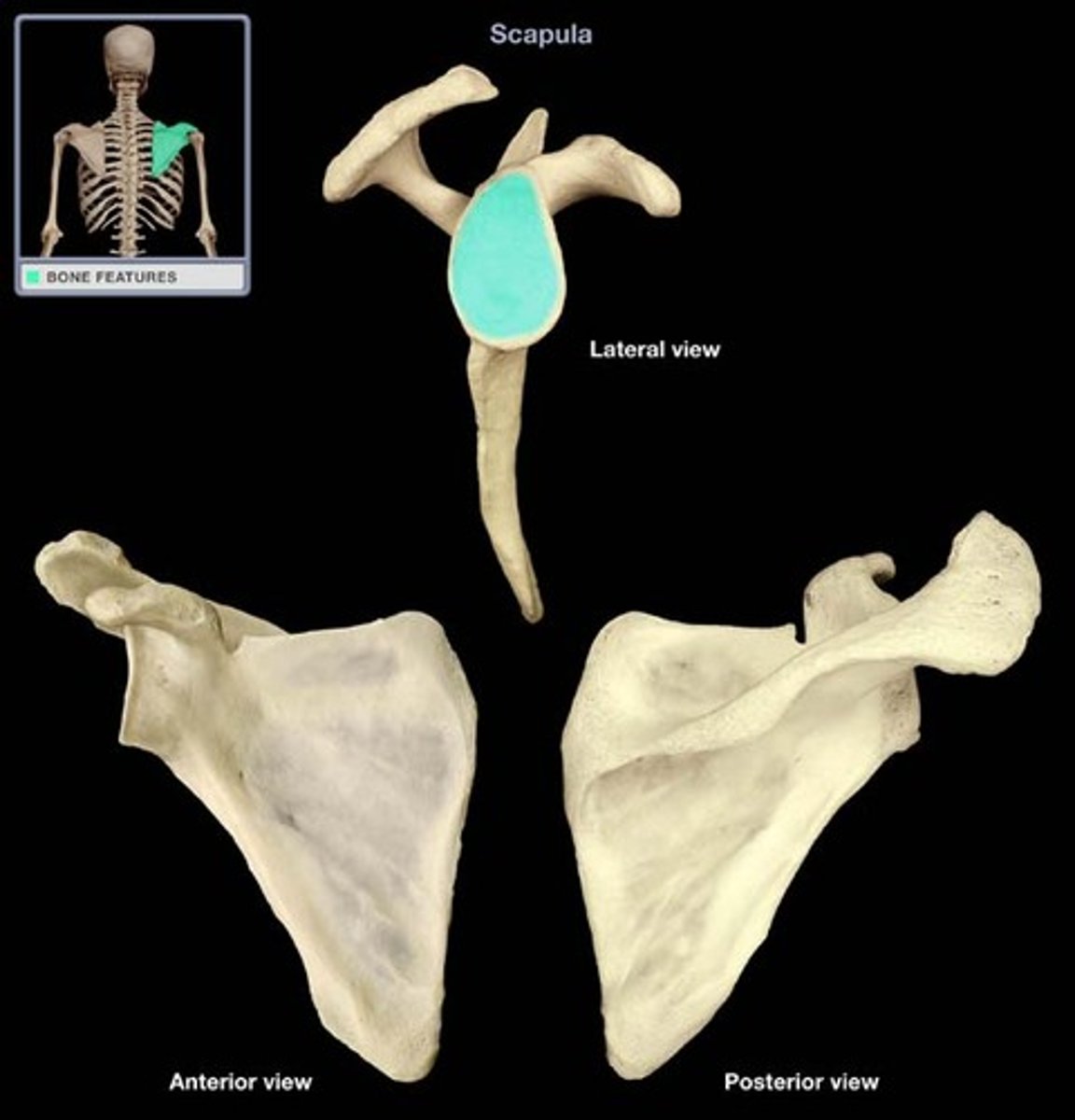
Coracoid process
identify the structure
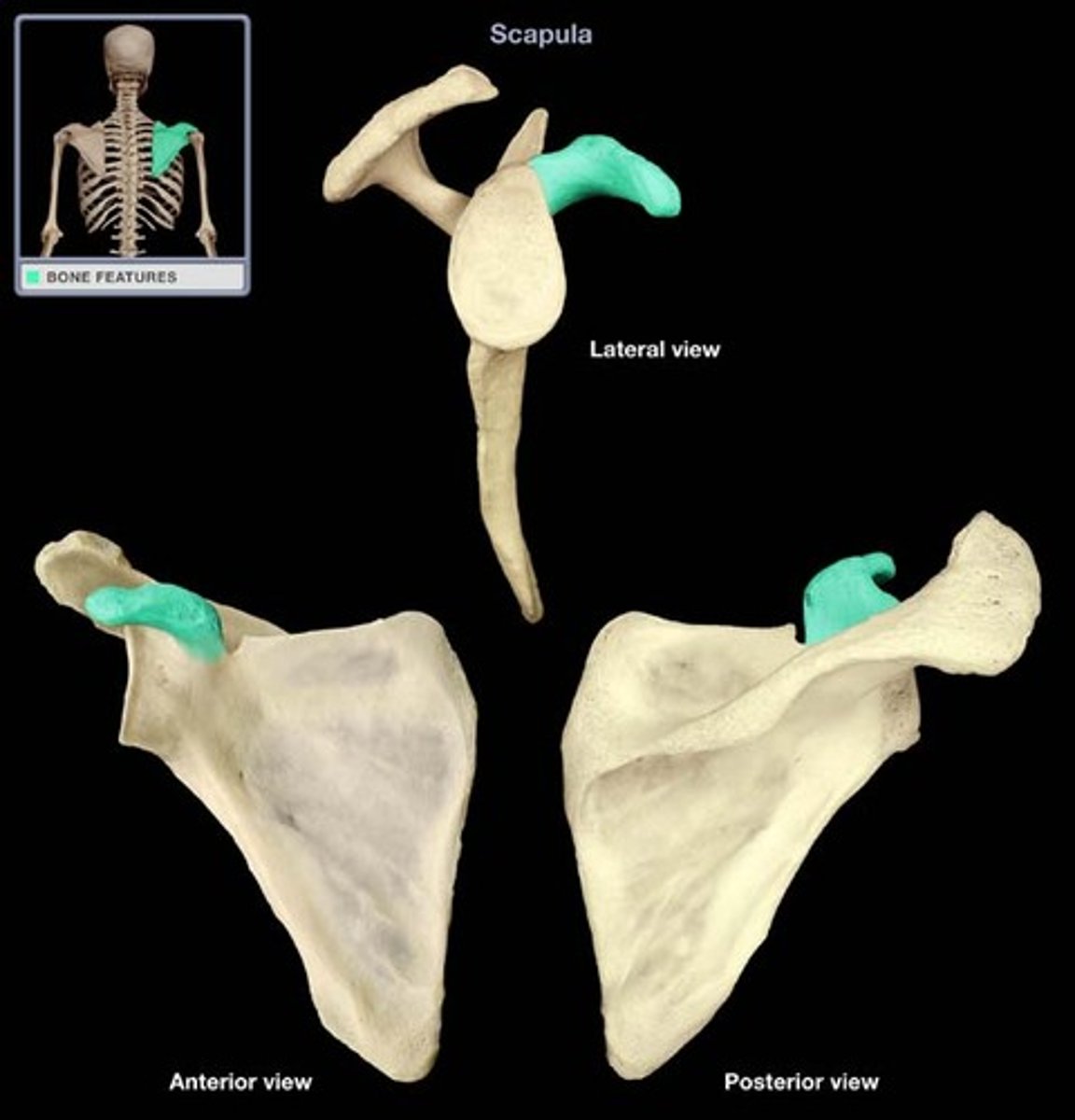
Subscapular fossa
identify the structure
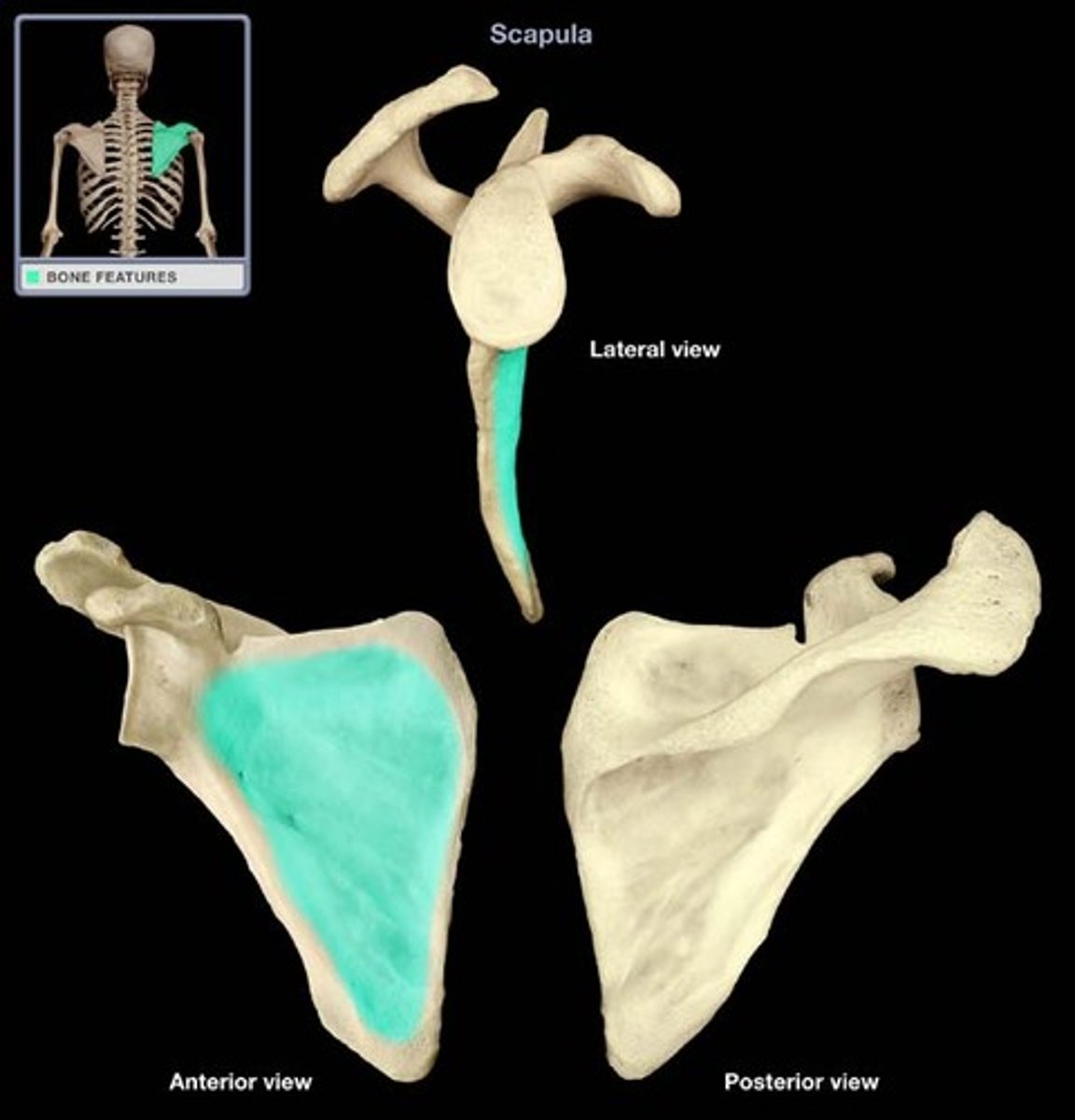
Suprascapular notch
identify the structure
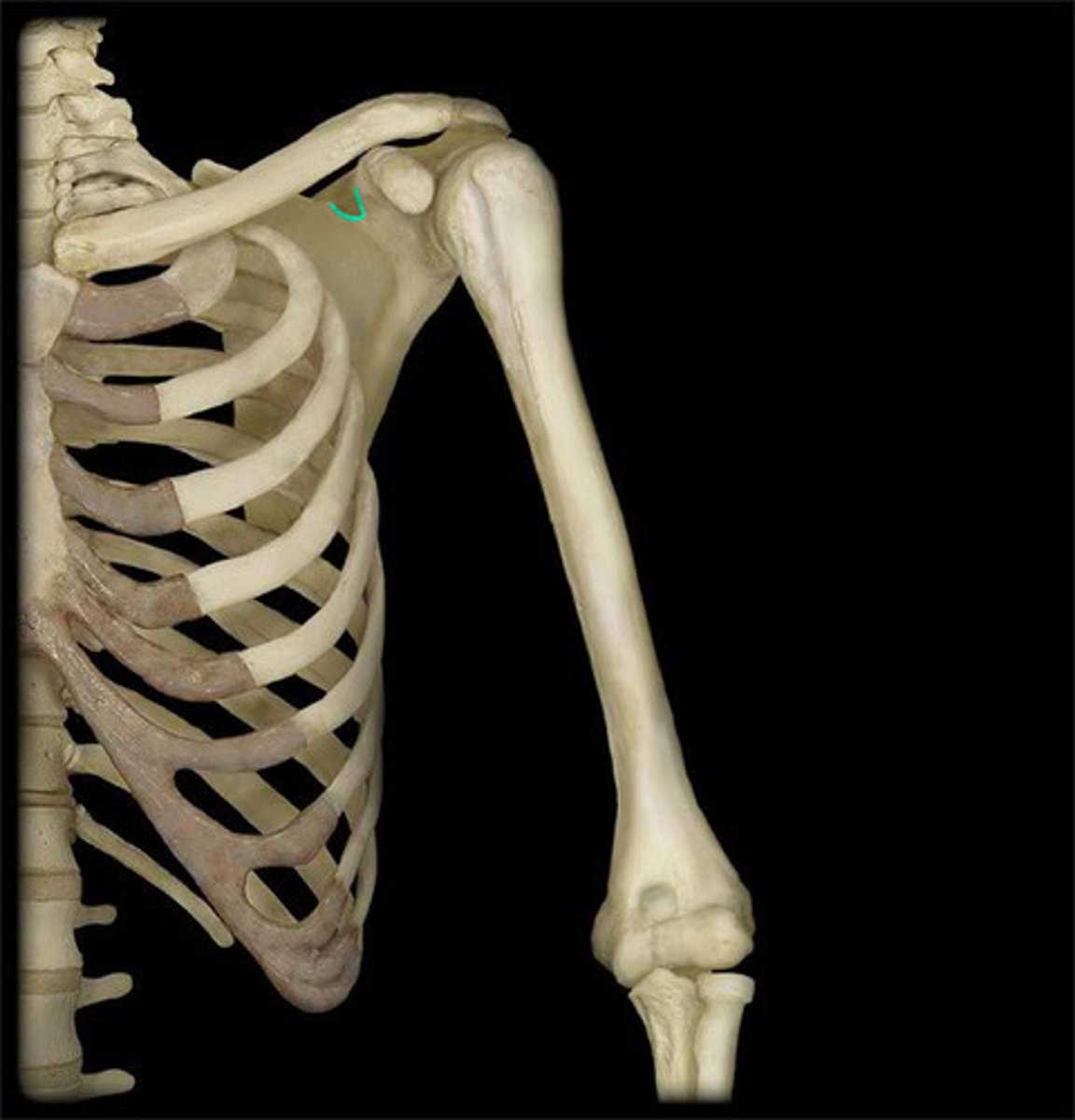
Supraspinous fossa
identify the structure
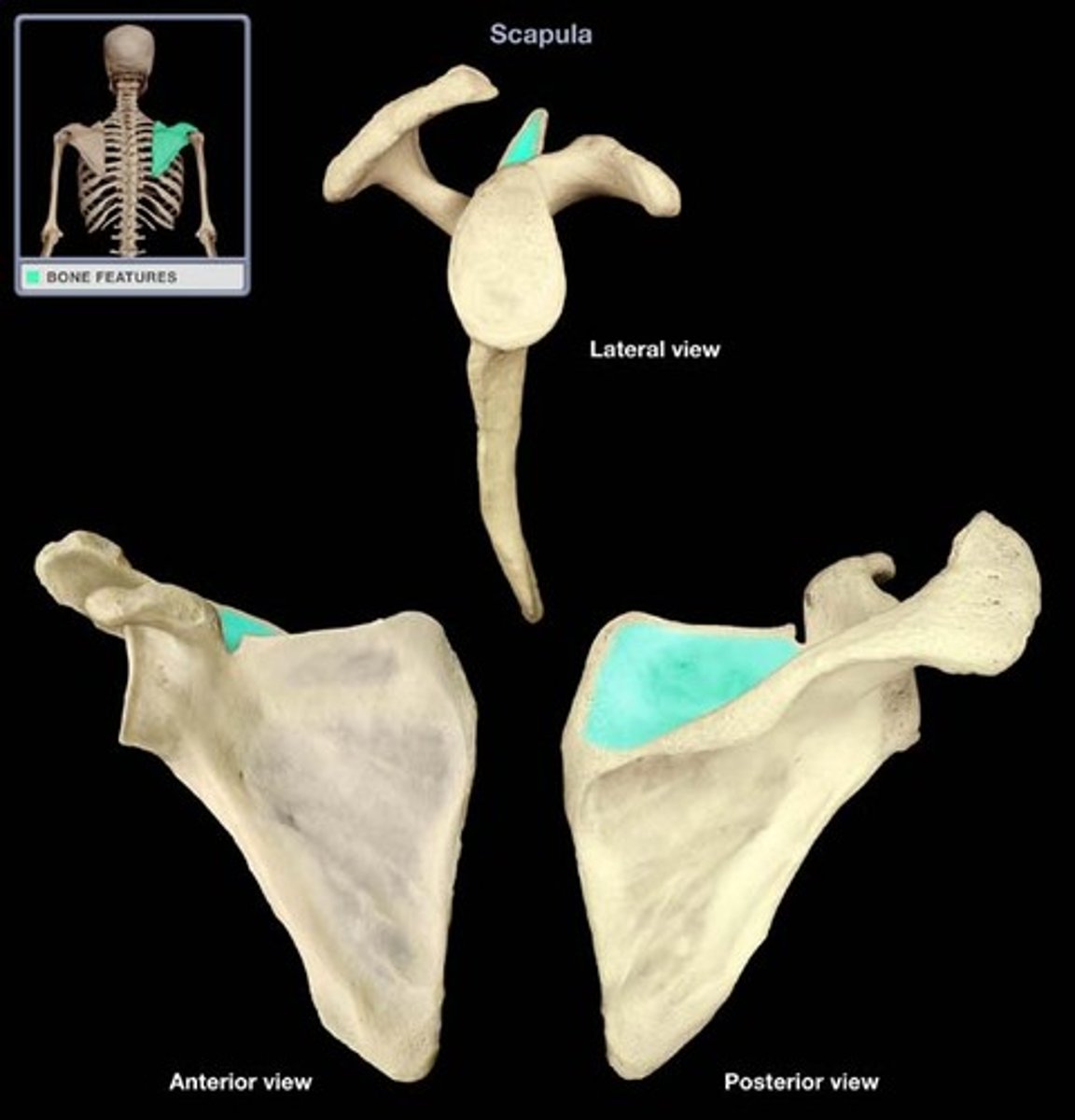
Infraspinous fossa
identify the structure
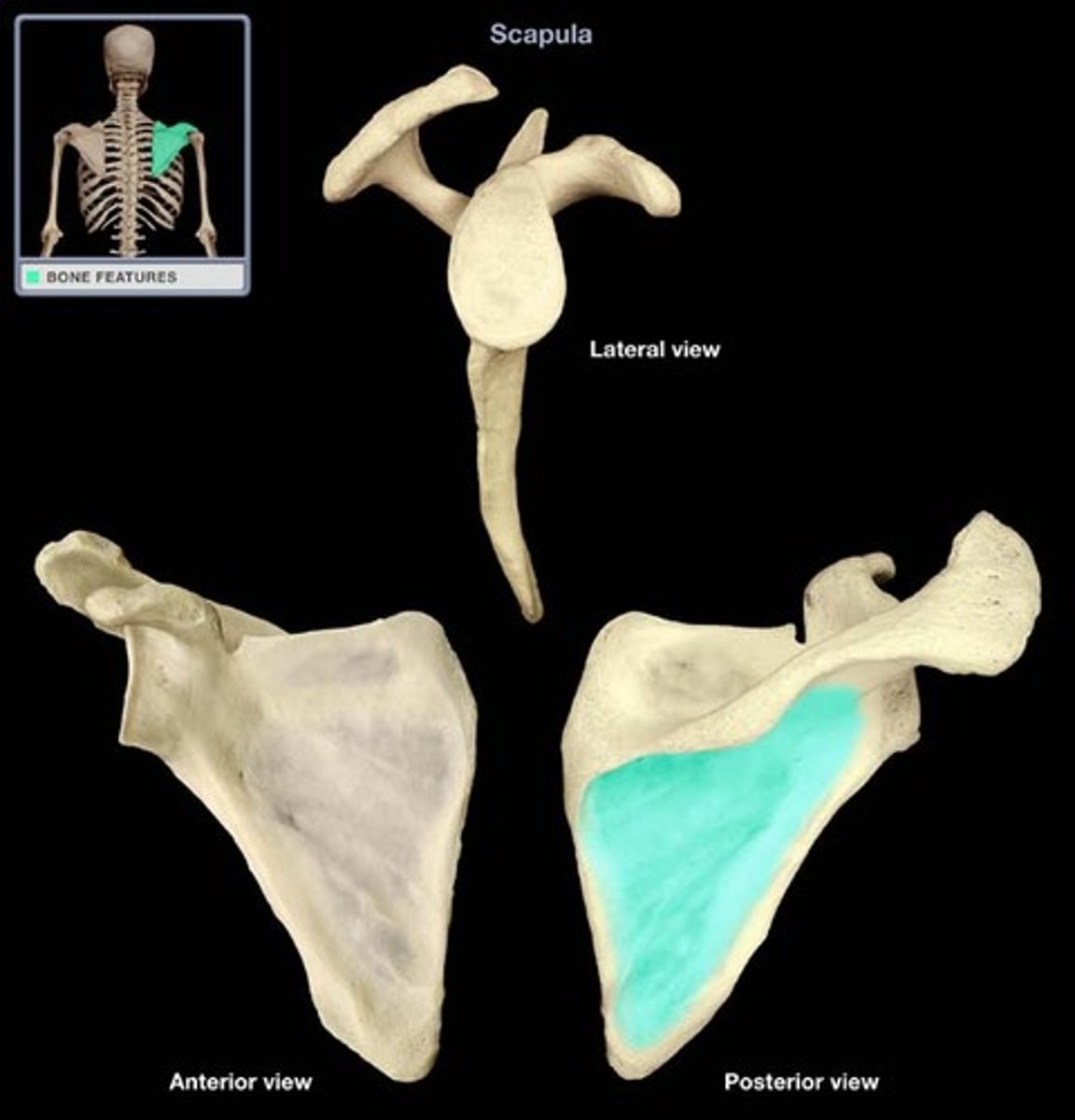
Spine of the scapula
identify the structure
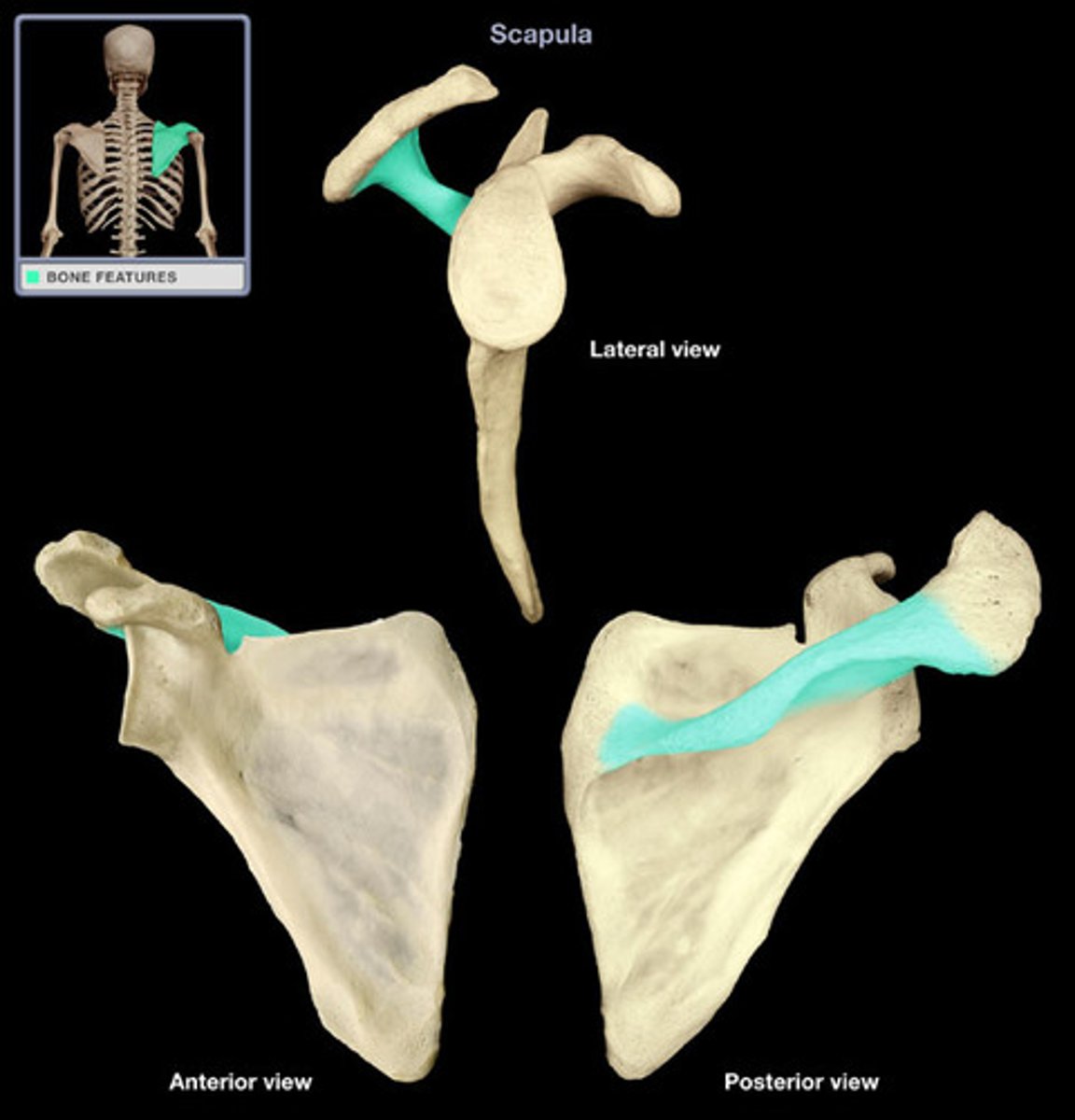
sternoclavicular joint
identify the joint
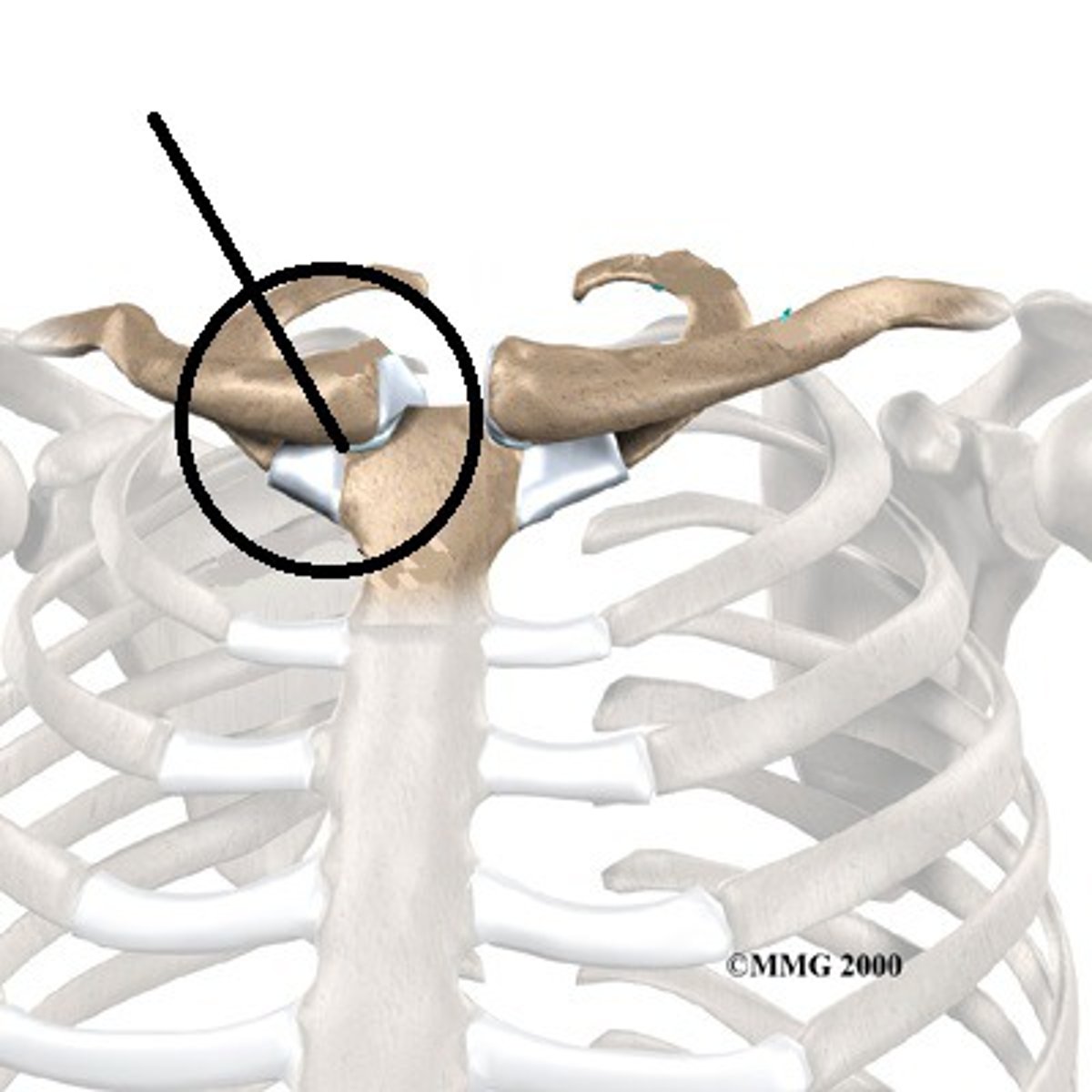
acromioclavicular joint
identify the joint
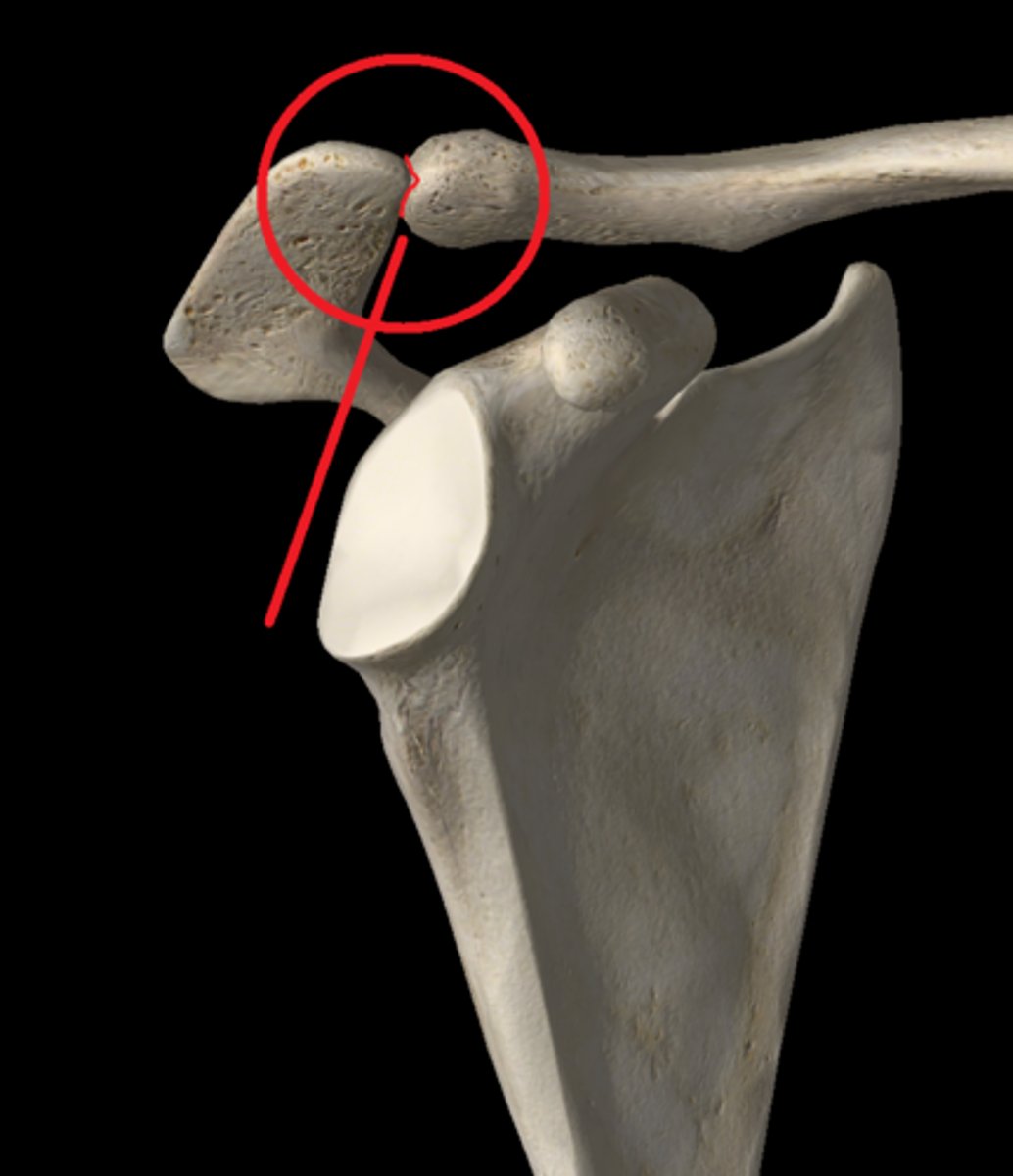
Conoid tubercle
identify the structure
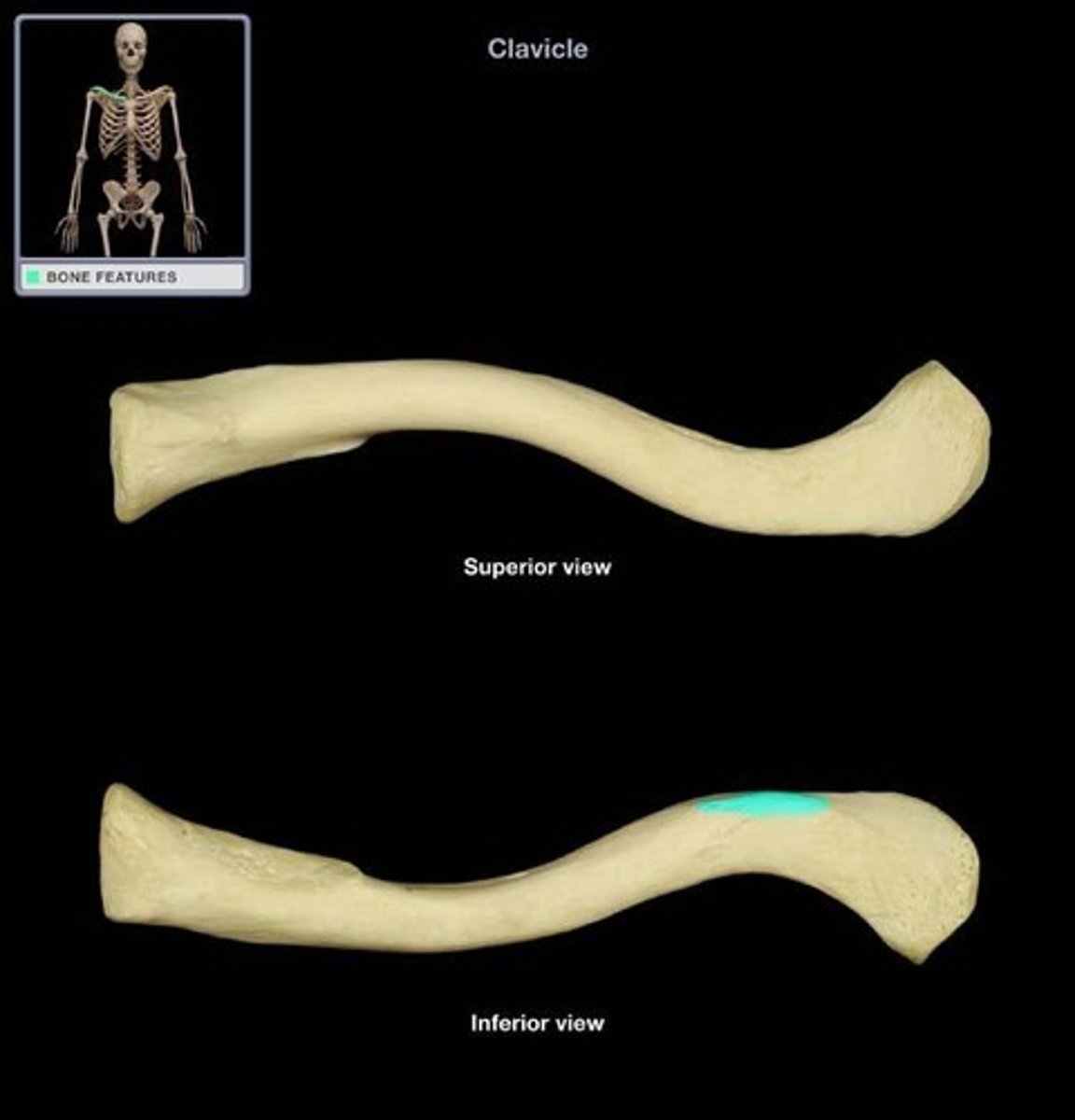
Impression for costoclavicular ligament
identify the structure
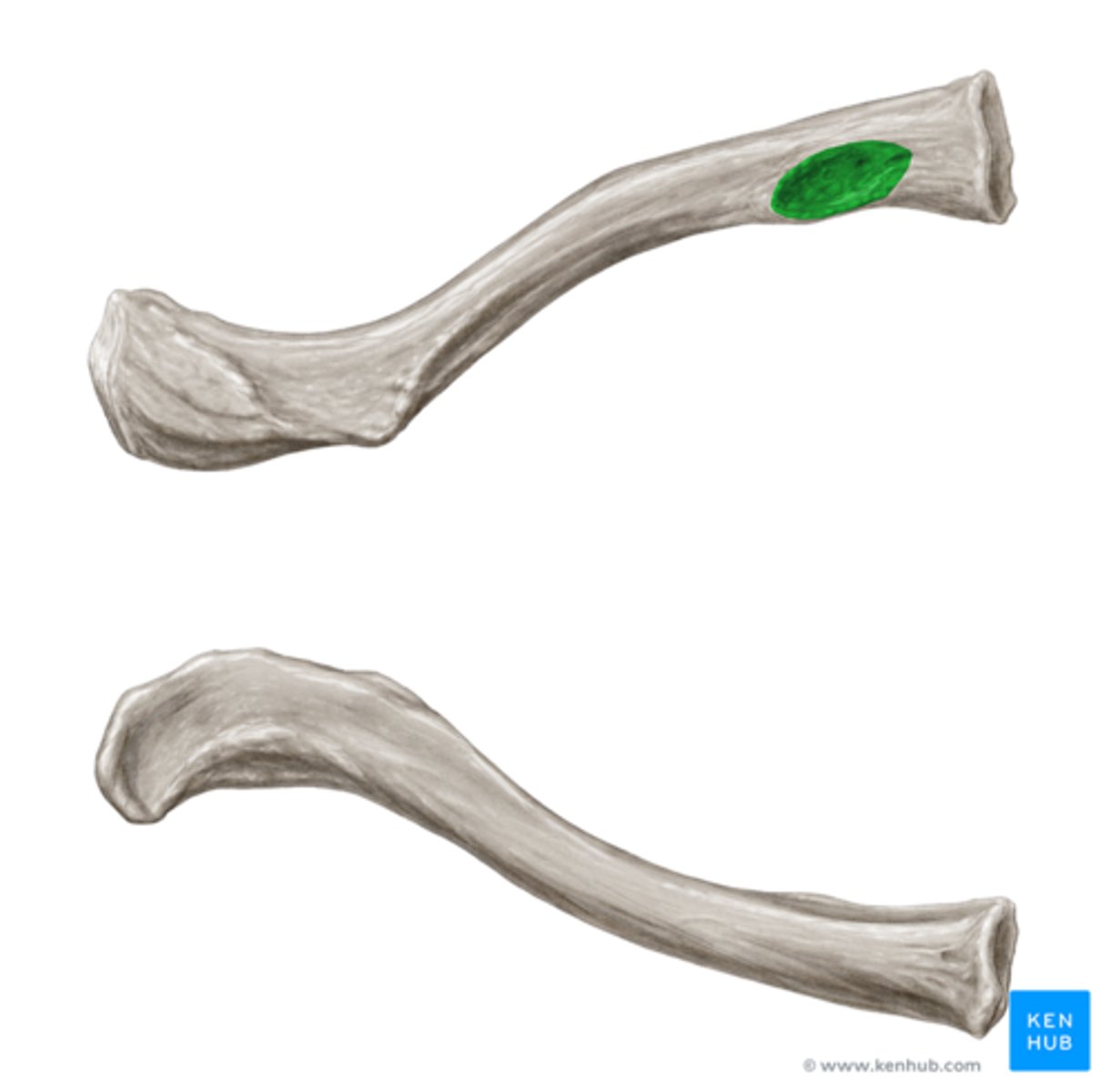
acromioclavicular ligament
identify the structure
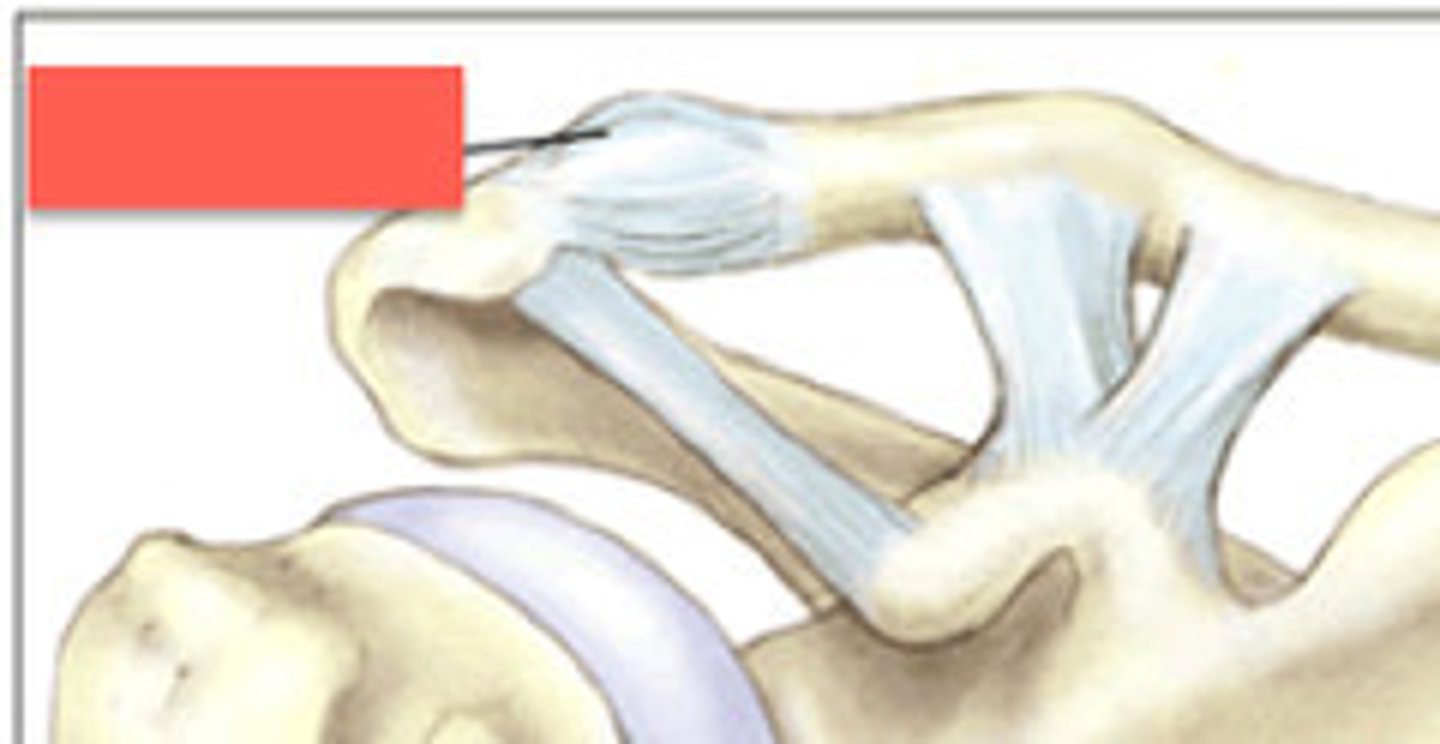
coracoacromial ligament
identify the structure
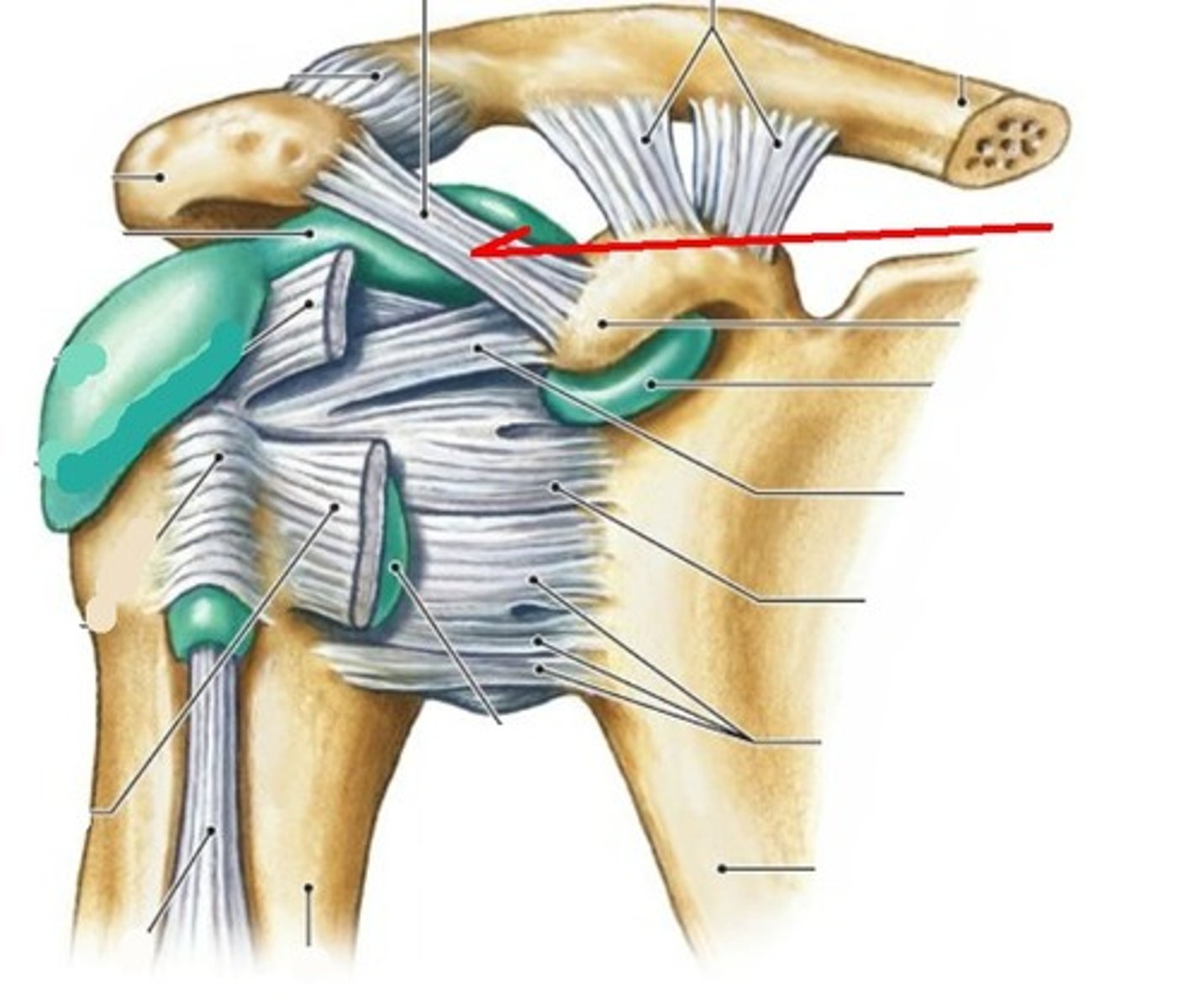
coracoclavicular ligament
identify the structure
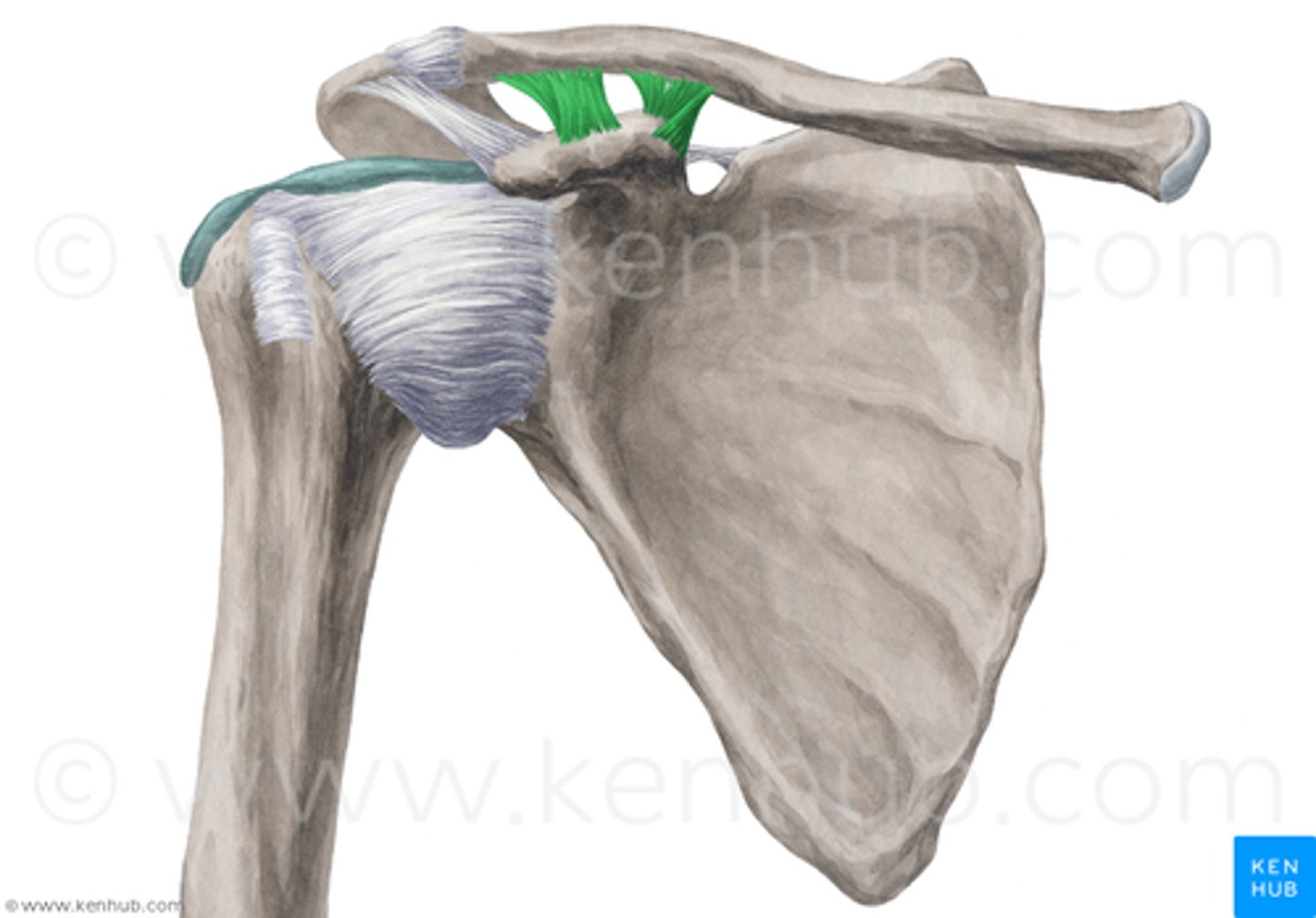
conoid and trapezoid ligament
what two ligaments make up the coracoclavicular ligament?
conoid ligament
identify the structure
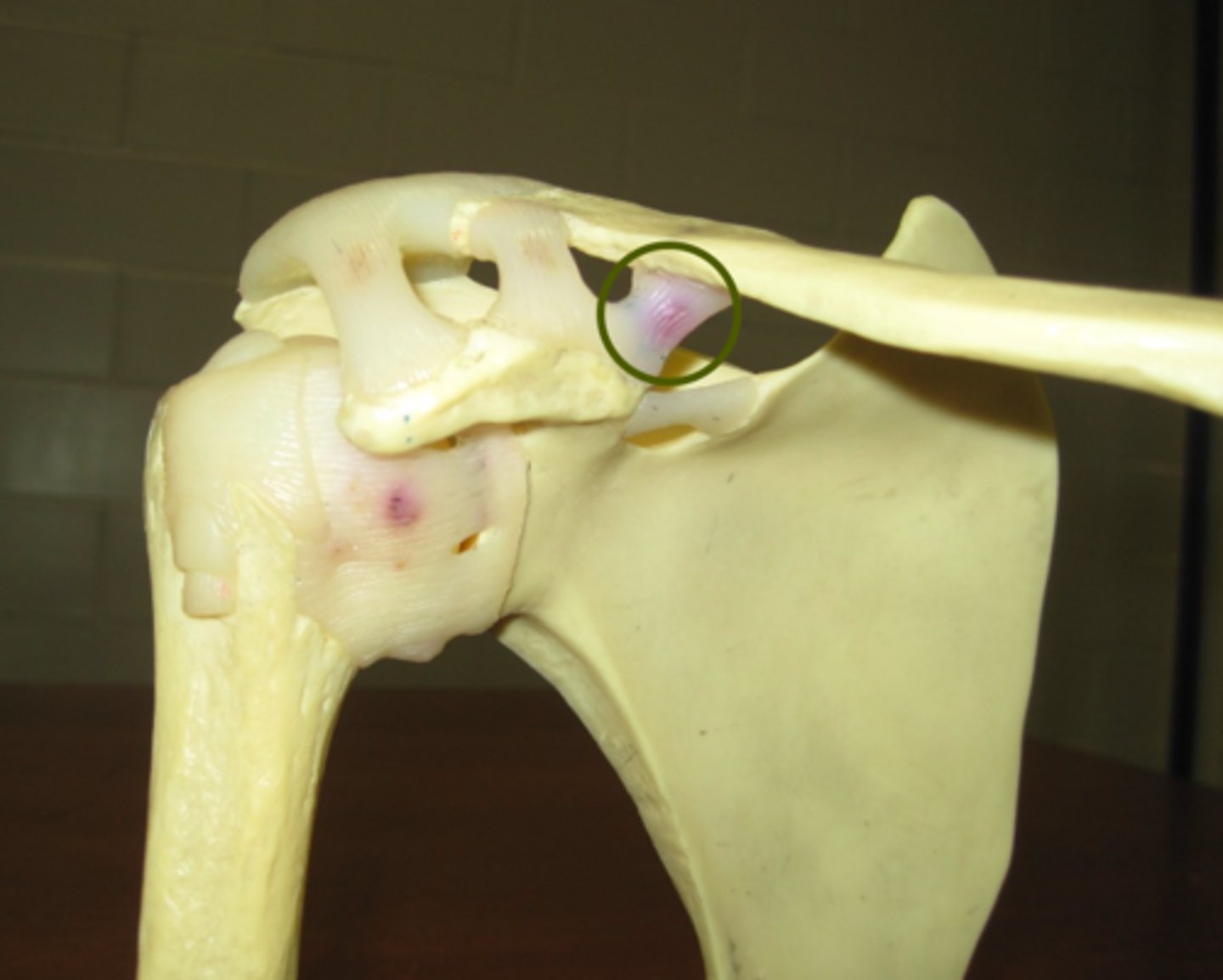
trapezoid ligament
identify the structure
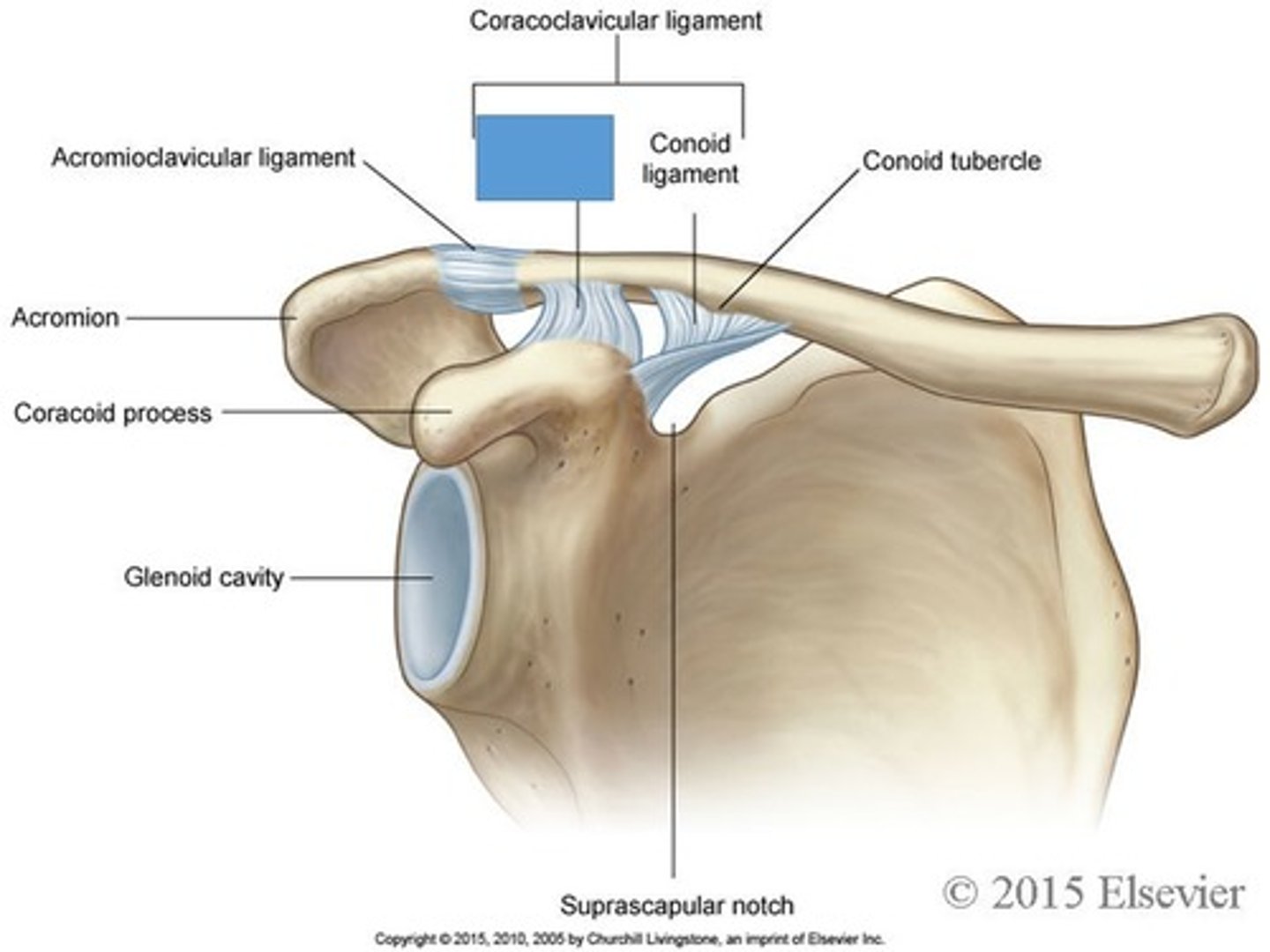
Trapezoid line of clavicle
identify the structure
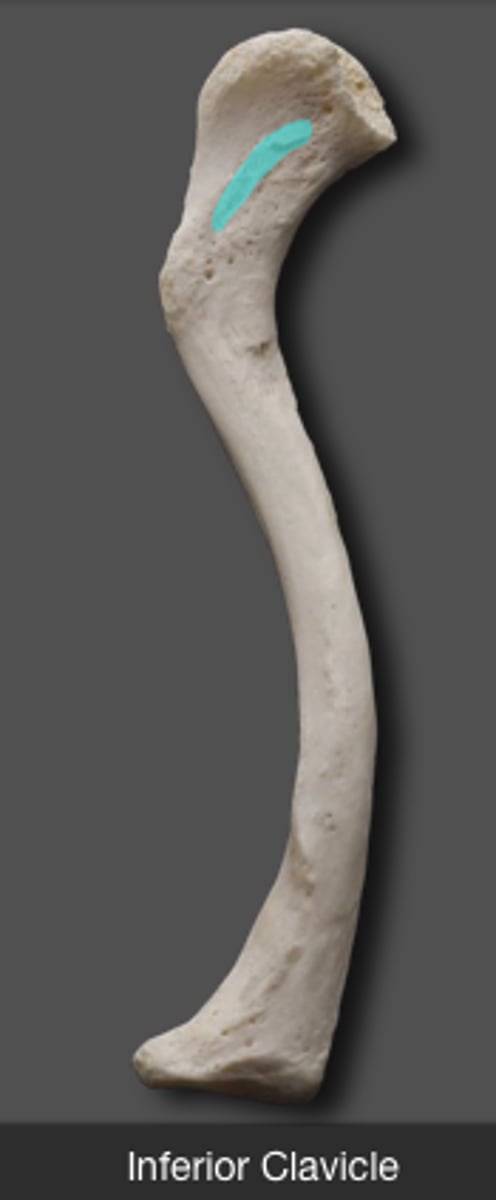
sternoclavicular ligament
identify the structure
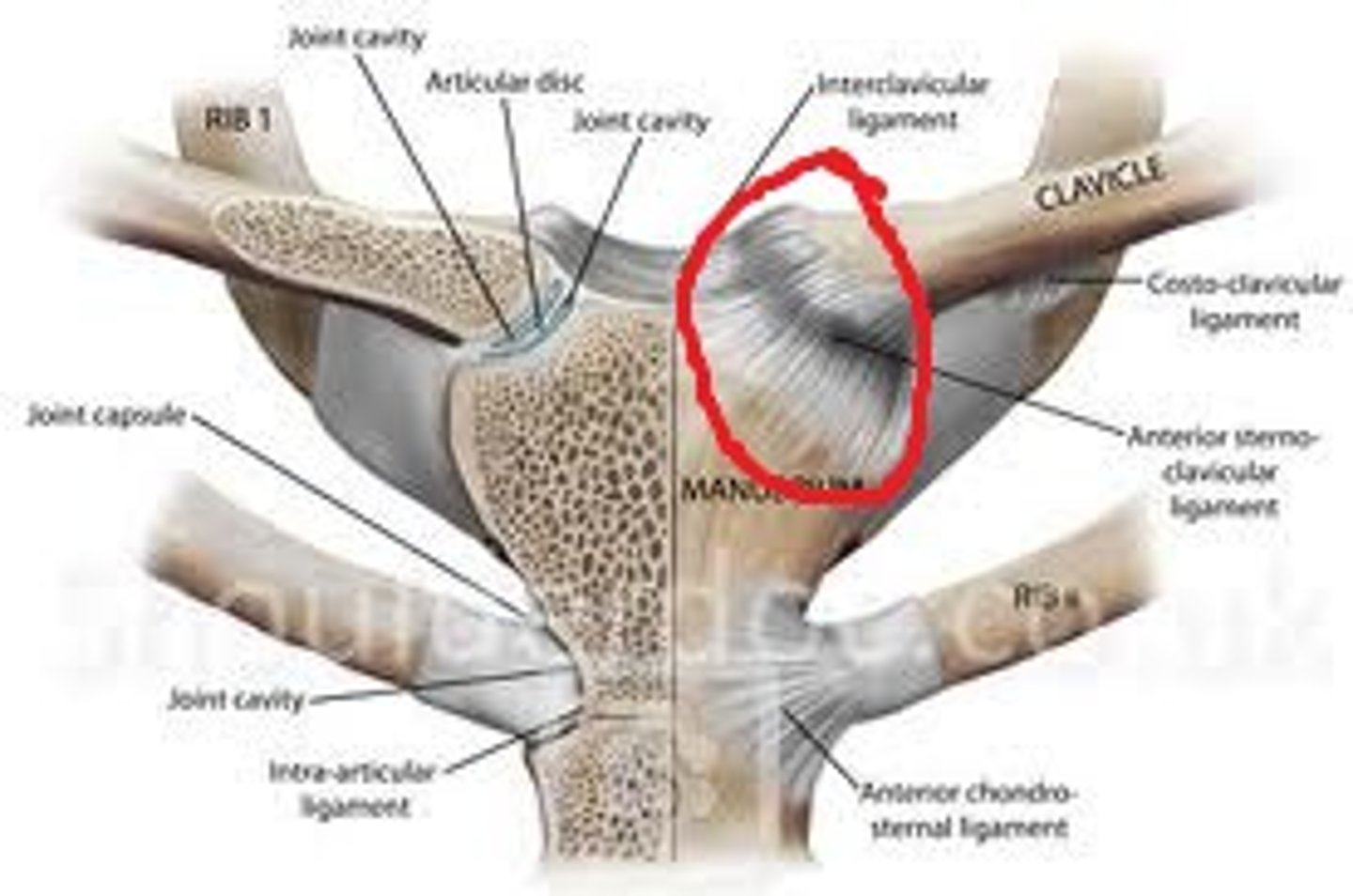
costoclavicular ligament
identify the structure
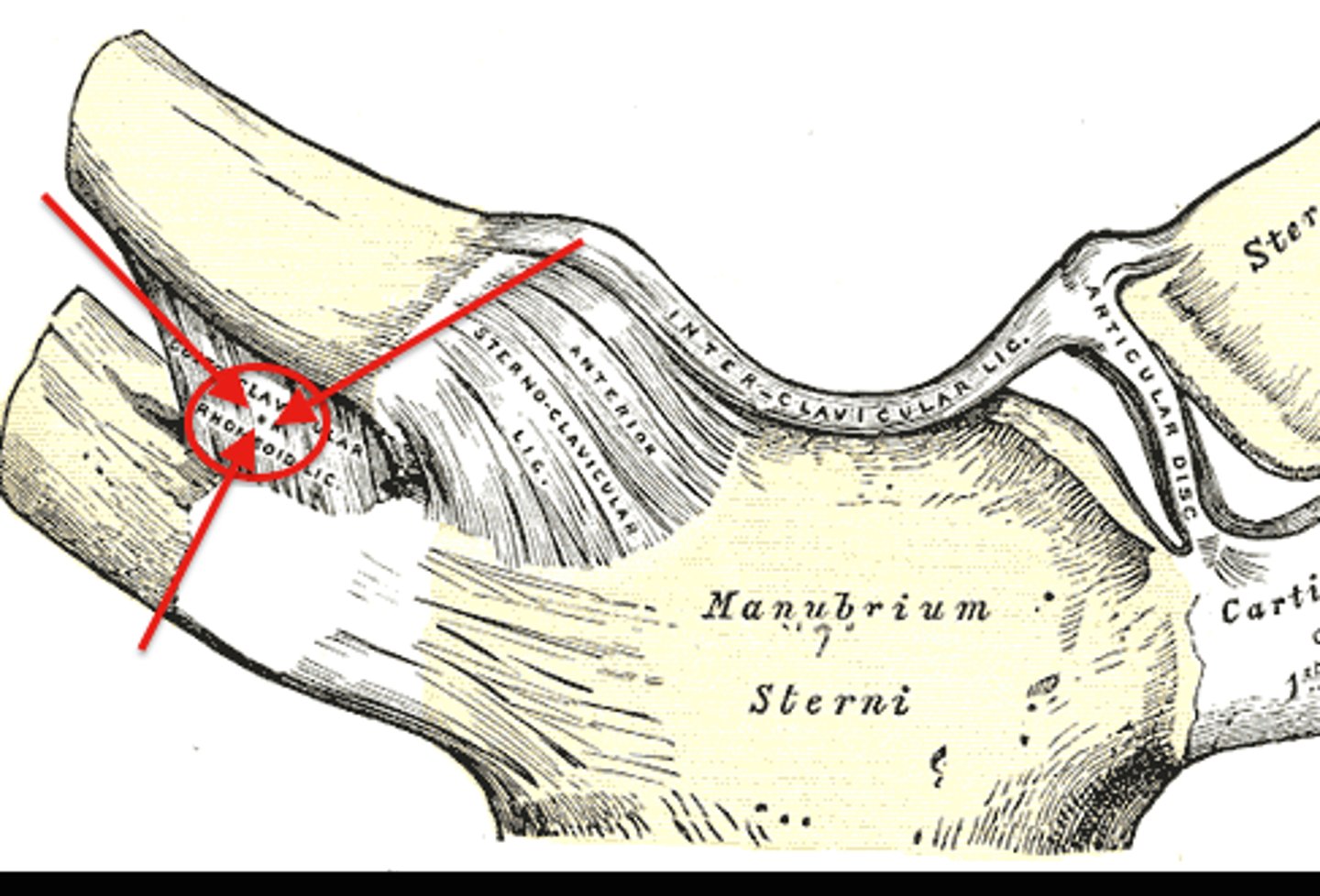
acromioclavicular, coracoclavicular
in a "piano key sign" injury, what ligaments of the shoulder are torn?
clavicle
in a "piano key sign" injury, what bone is no longer attached to shoulder?
glenohumeral joint
identify the joint
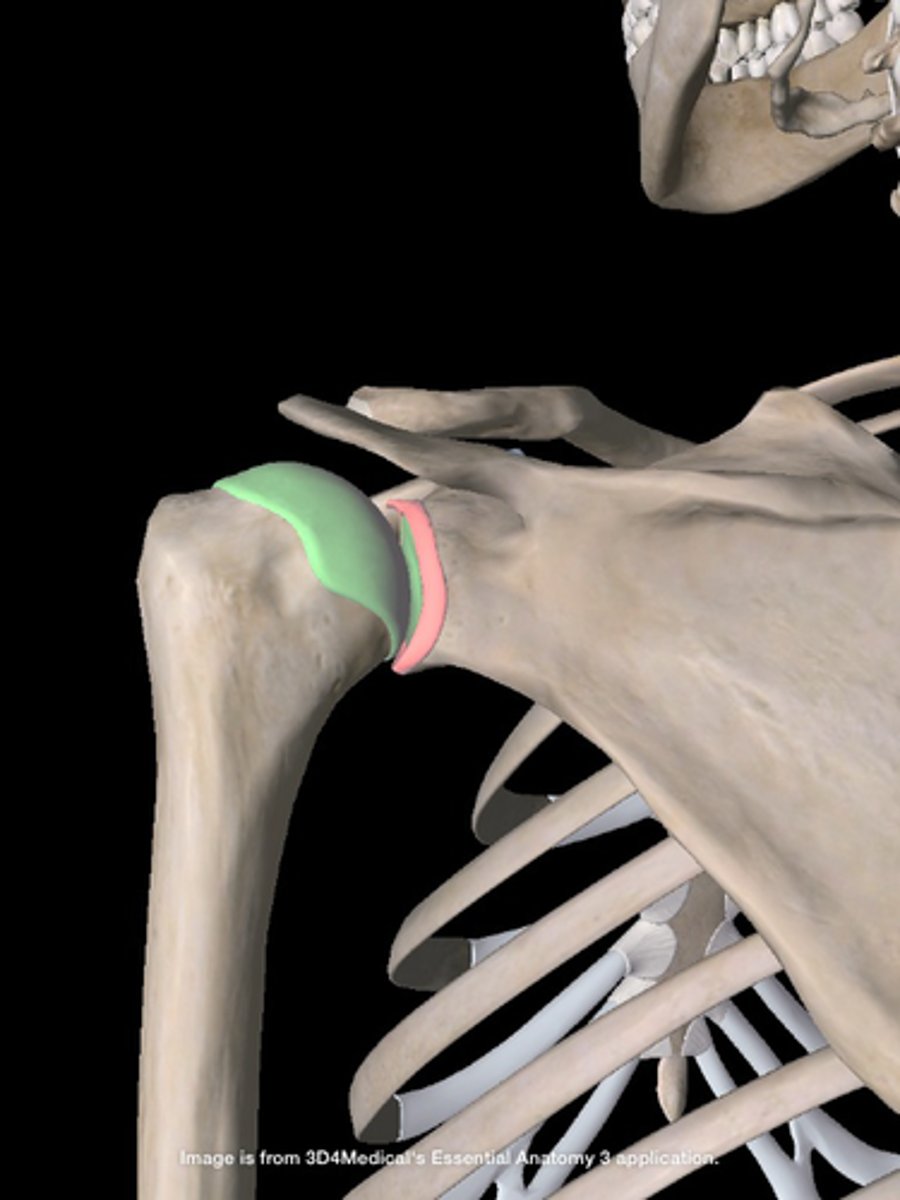
glenohumeral joint
In Scapulo-humeral Rhythm to make a 180 degree angle, the ______ does 120 degrees of the movement
scapulothoracic joint
this joint allows movement in all directions between muscles of the scapula and the thoracic wall, increasing the mobility of the upper extremity
scapulothoracic joint
In Scapulo-humeral Rhythm to make a 180 degree angle, the ______ does 60 degrees of the movement
scapulothoracic joint
the "joint" that connects the scapula to the thoracic cage, does not use ligaments, but soft tissue
arm flexion
identify the action
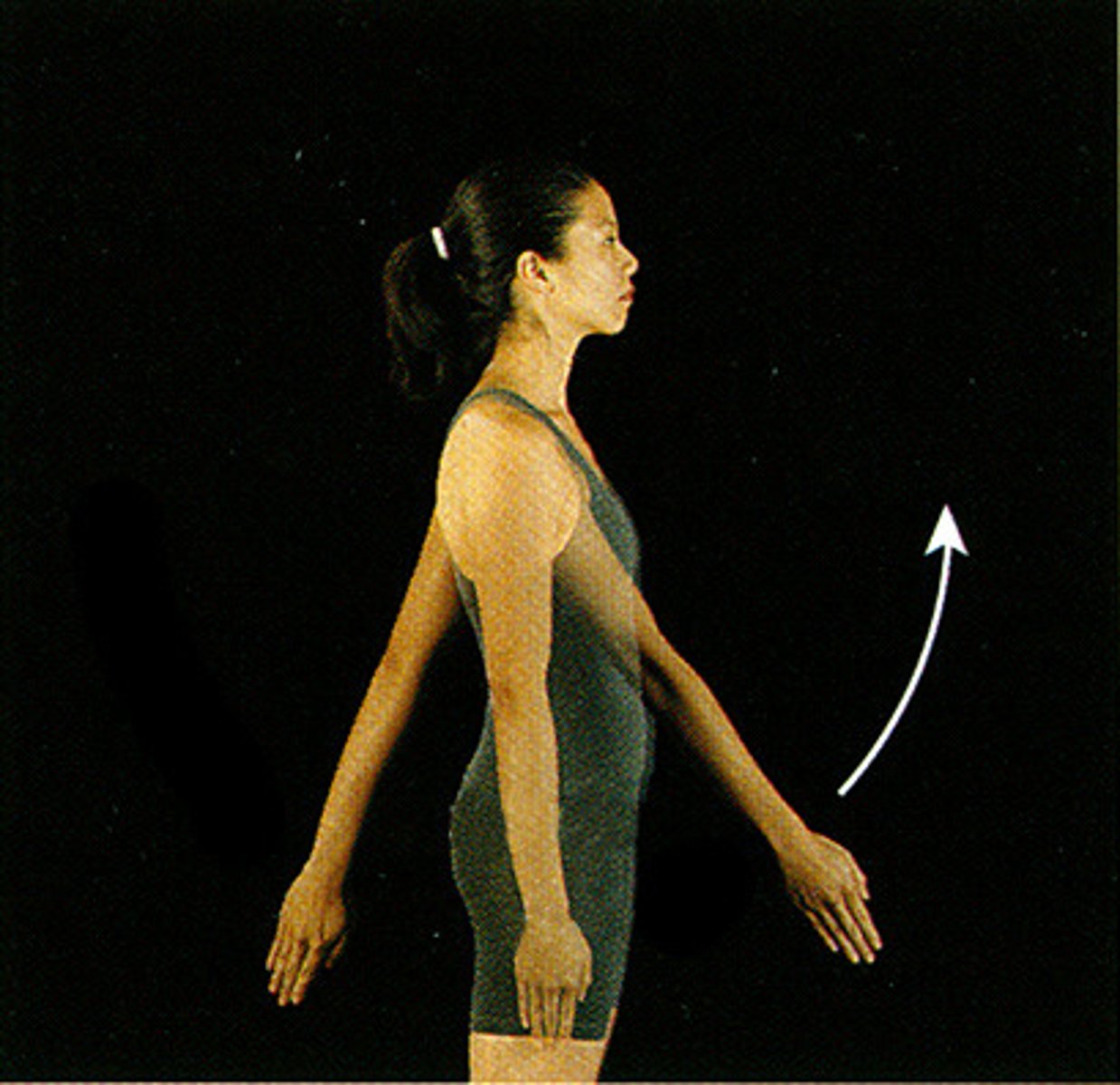
arm extension
identify the action
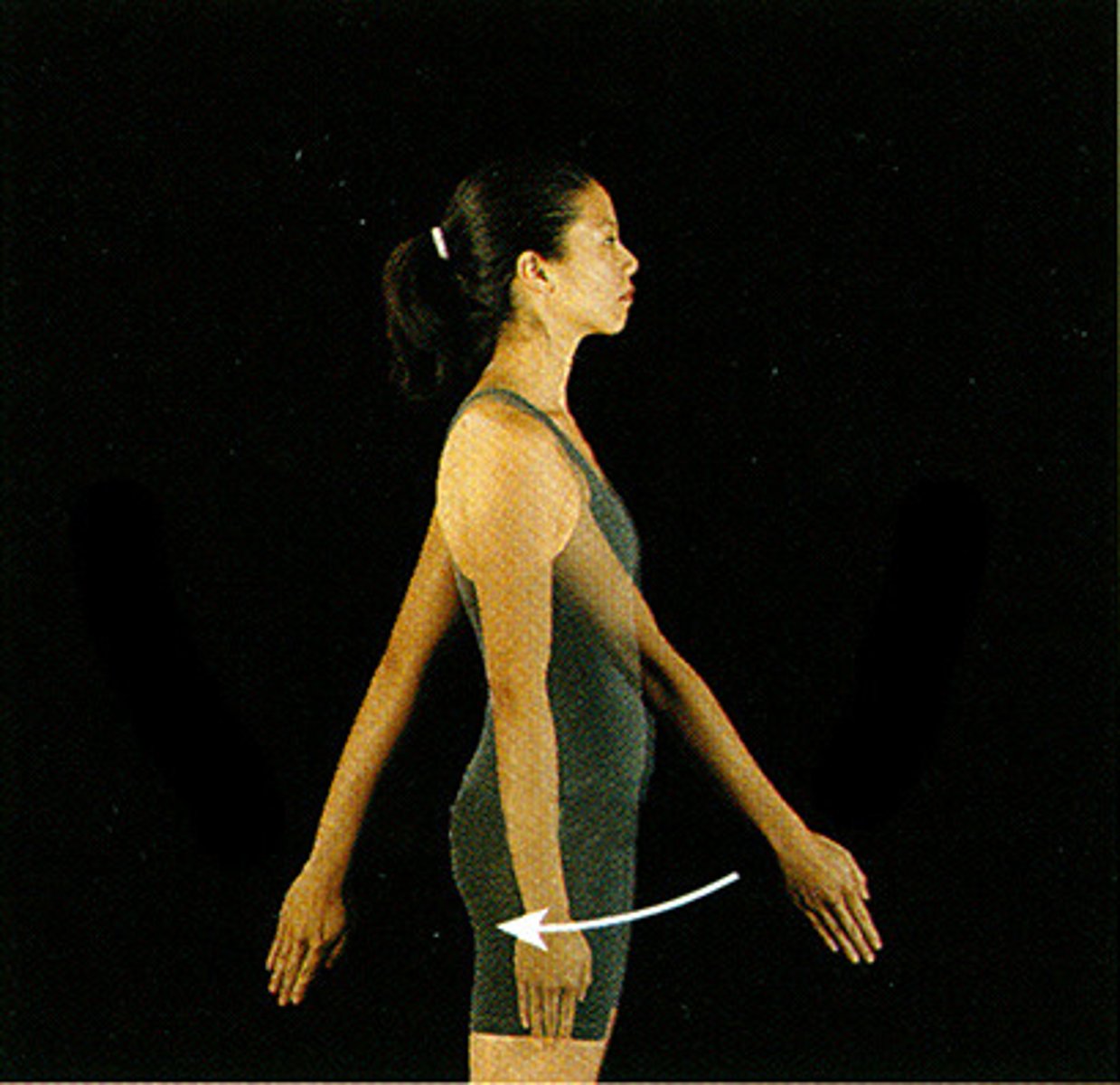
arm adduction
identify the action
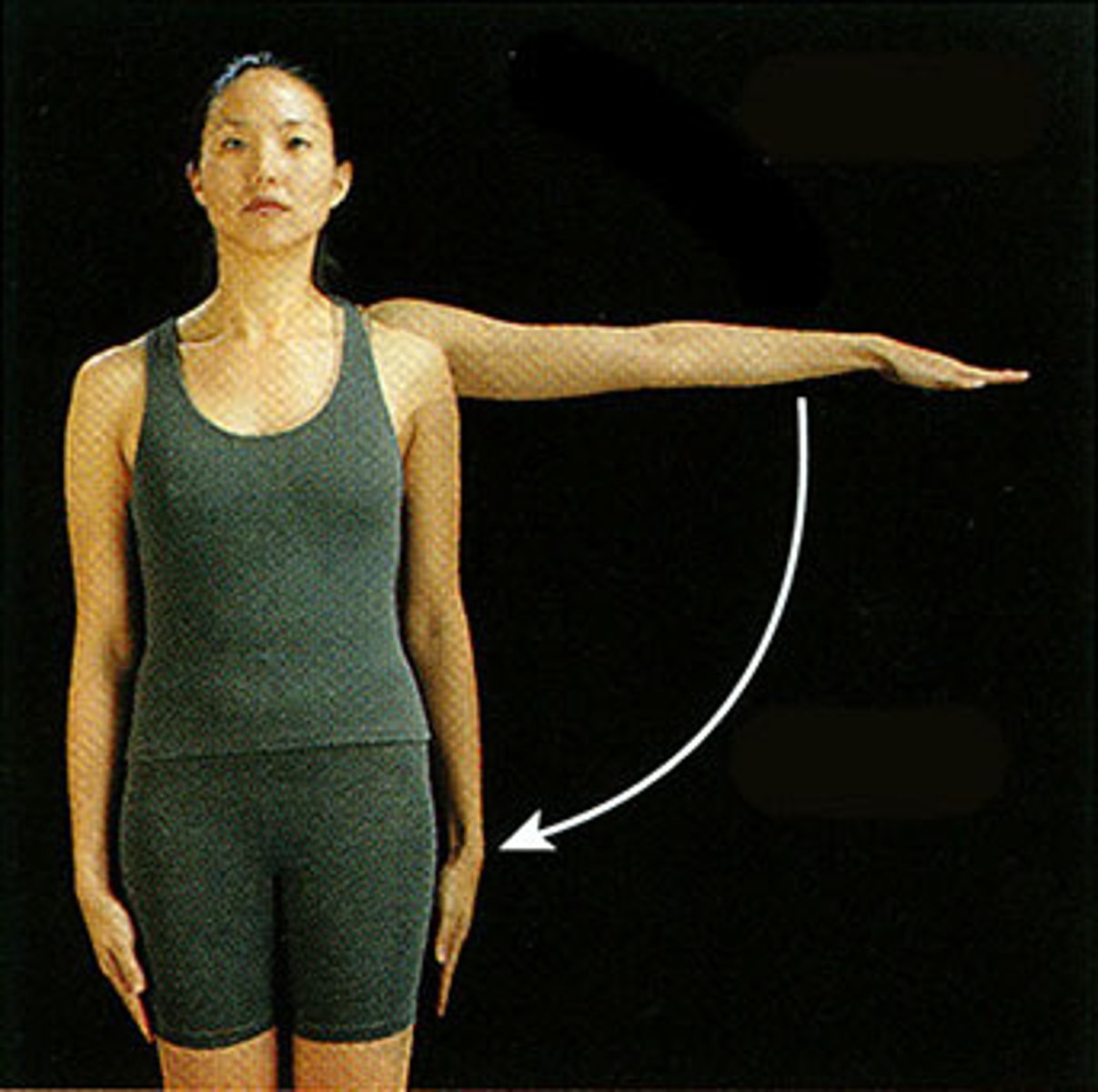
arm abduction
identify the action
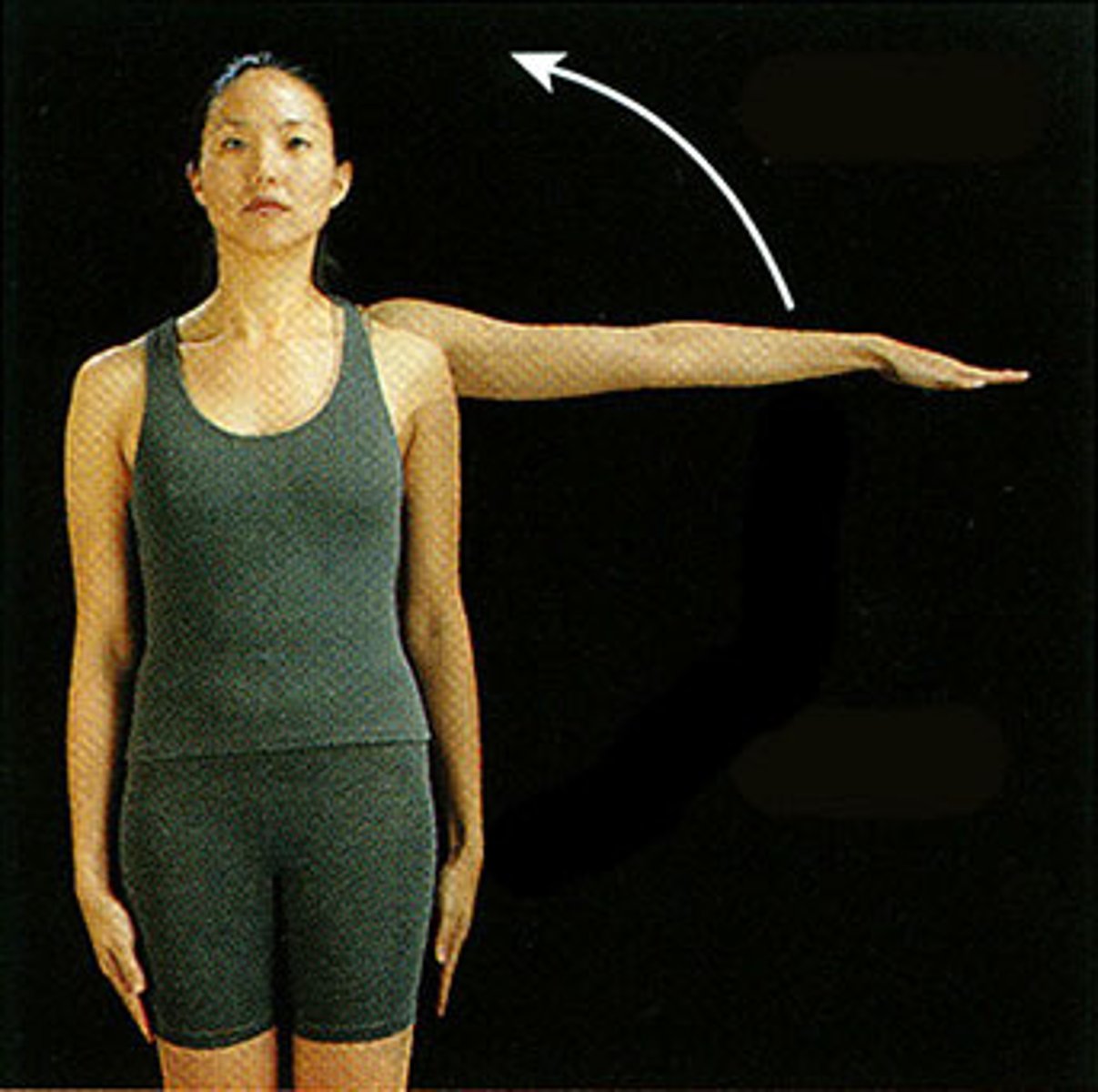
elbow flexion
identify the action
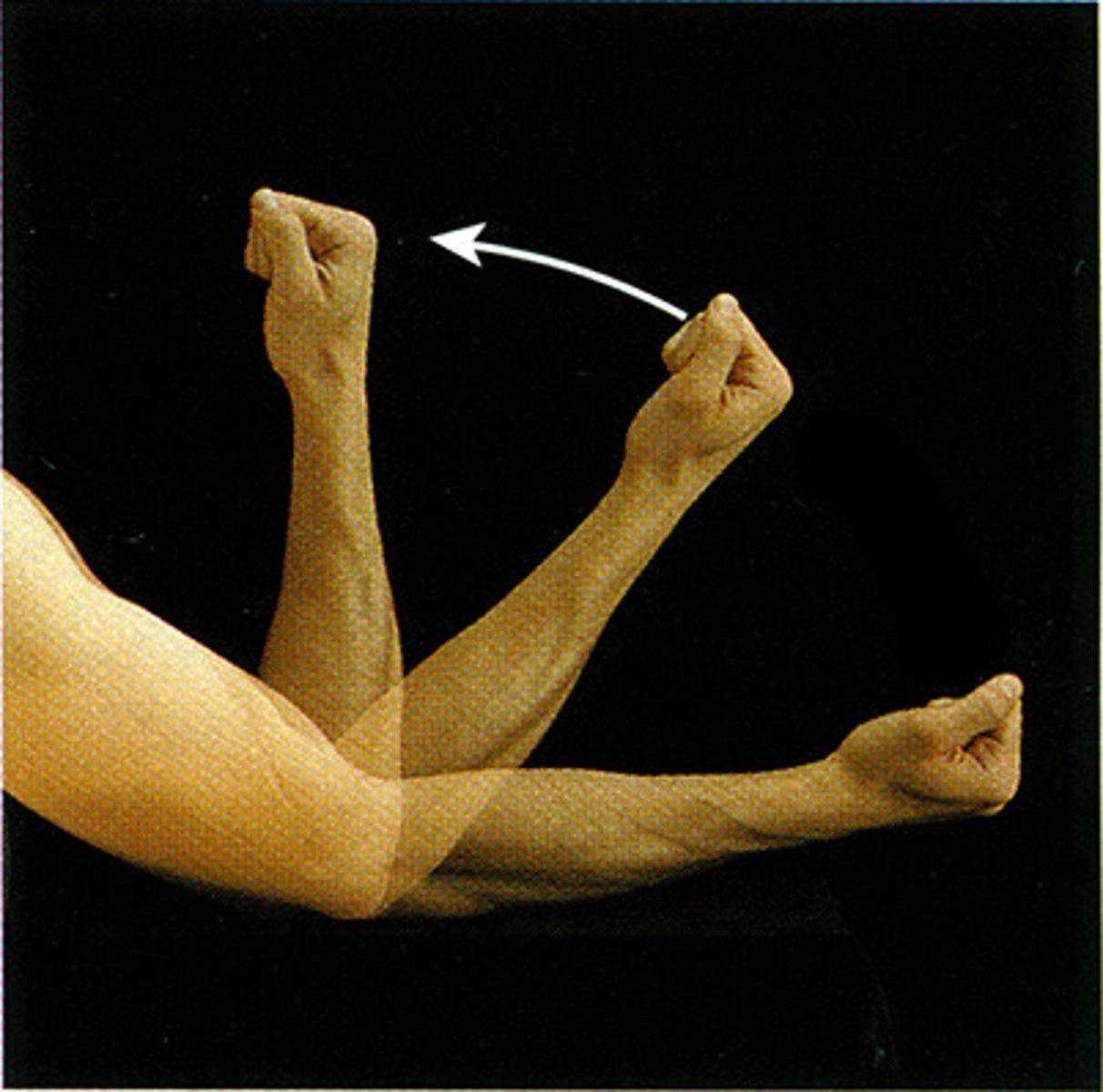
elbow extension
identify the action
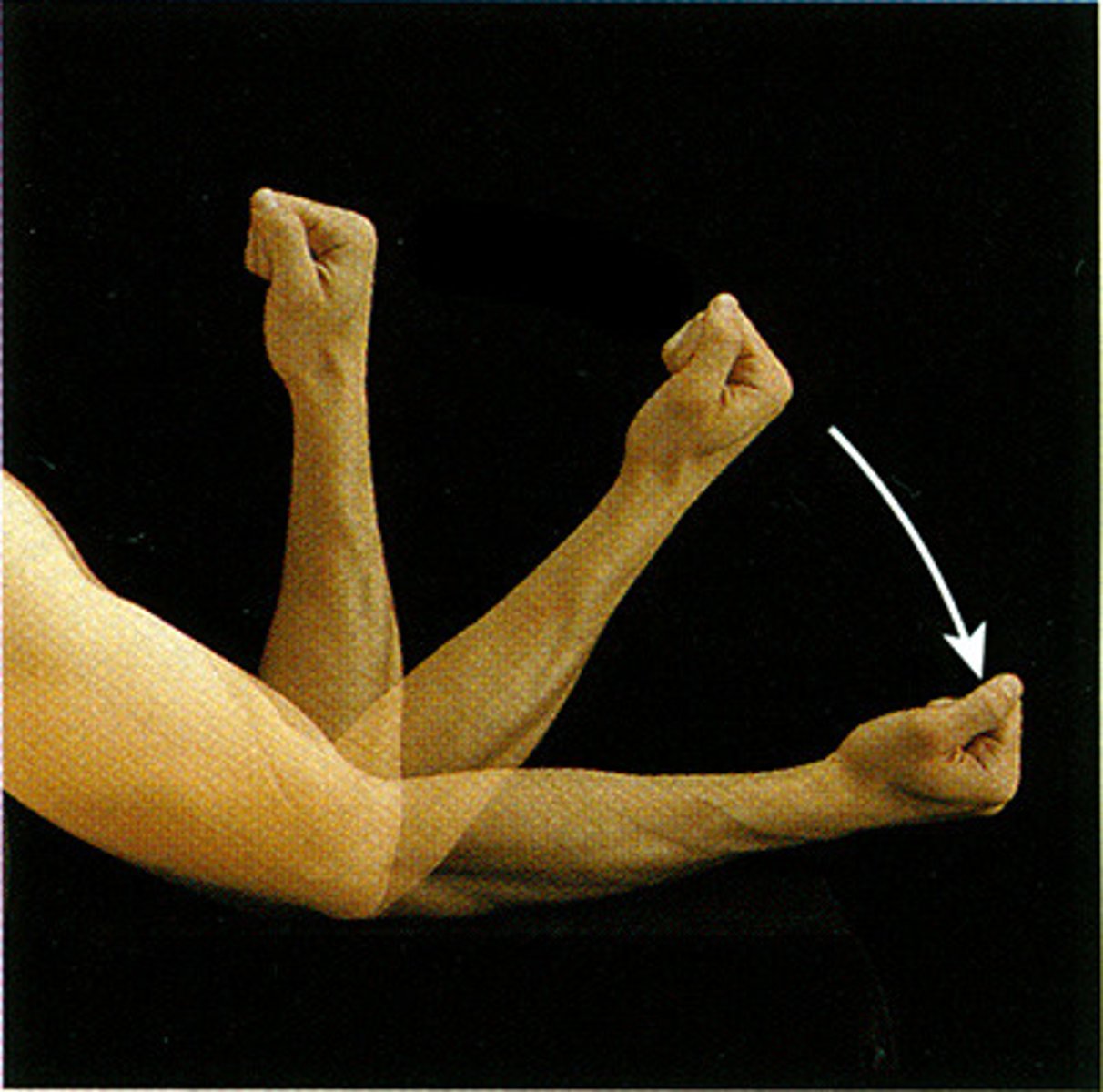
elbow lateral rotation
identify the action
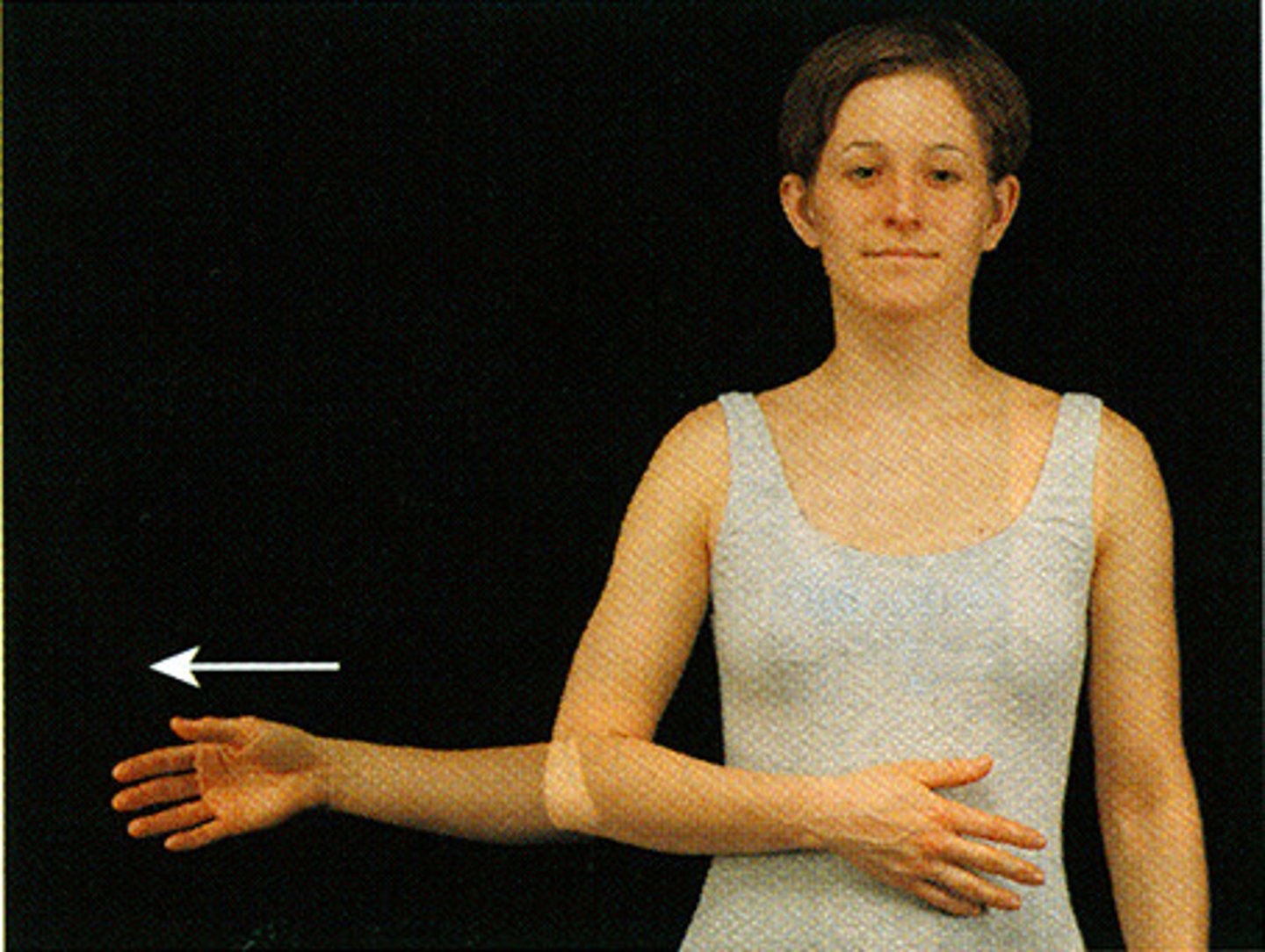
elbow medial rotation
identify the action
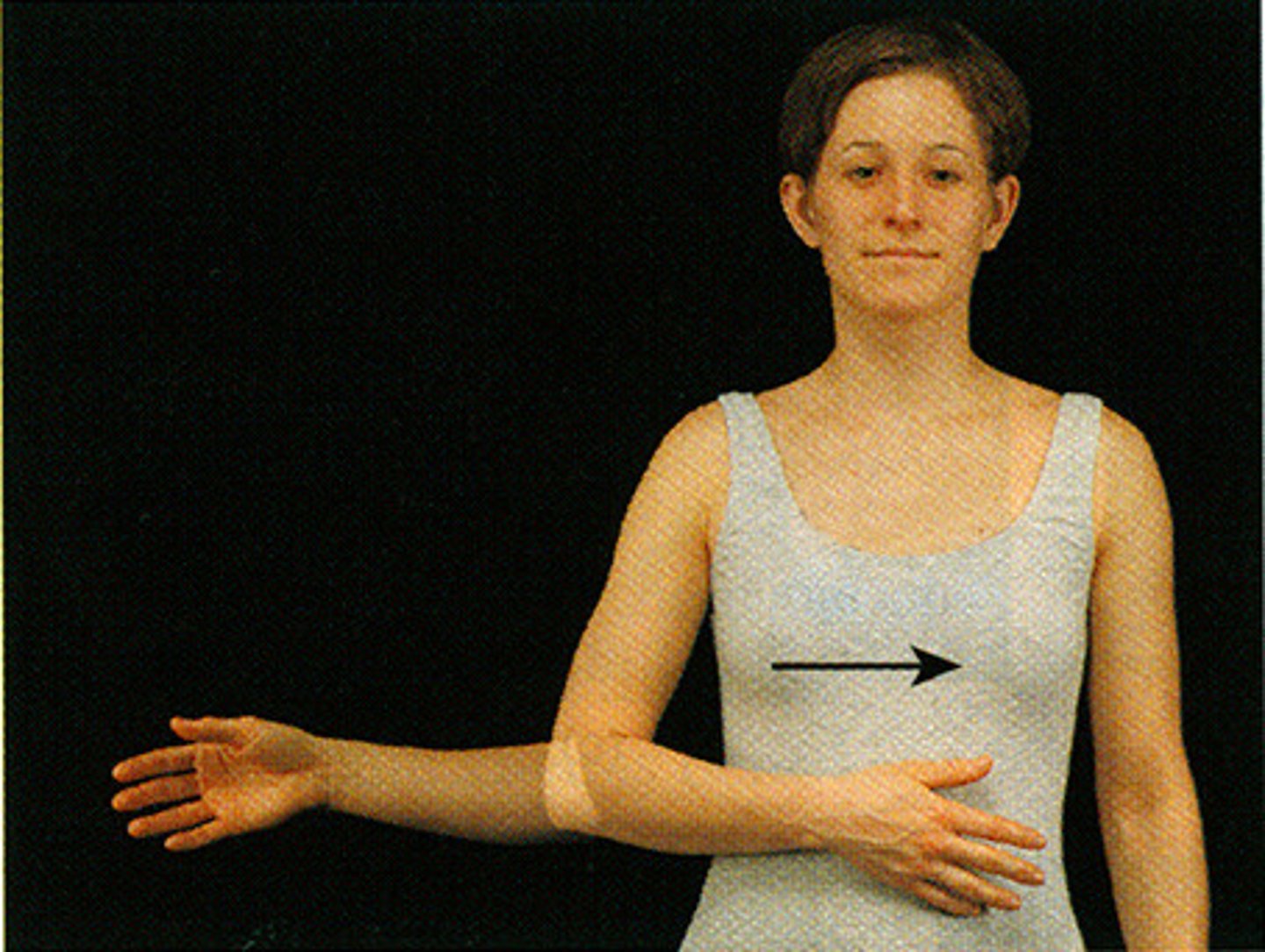
wrist flexion
identify the action
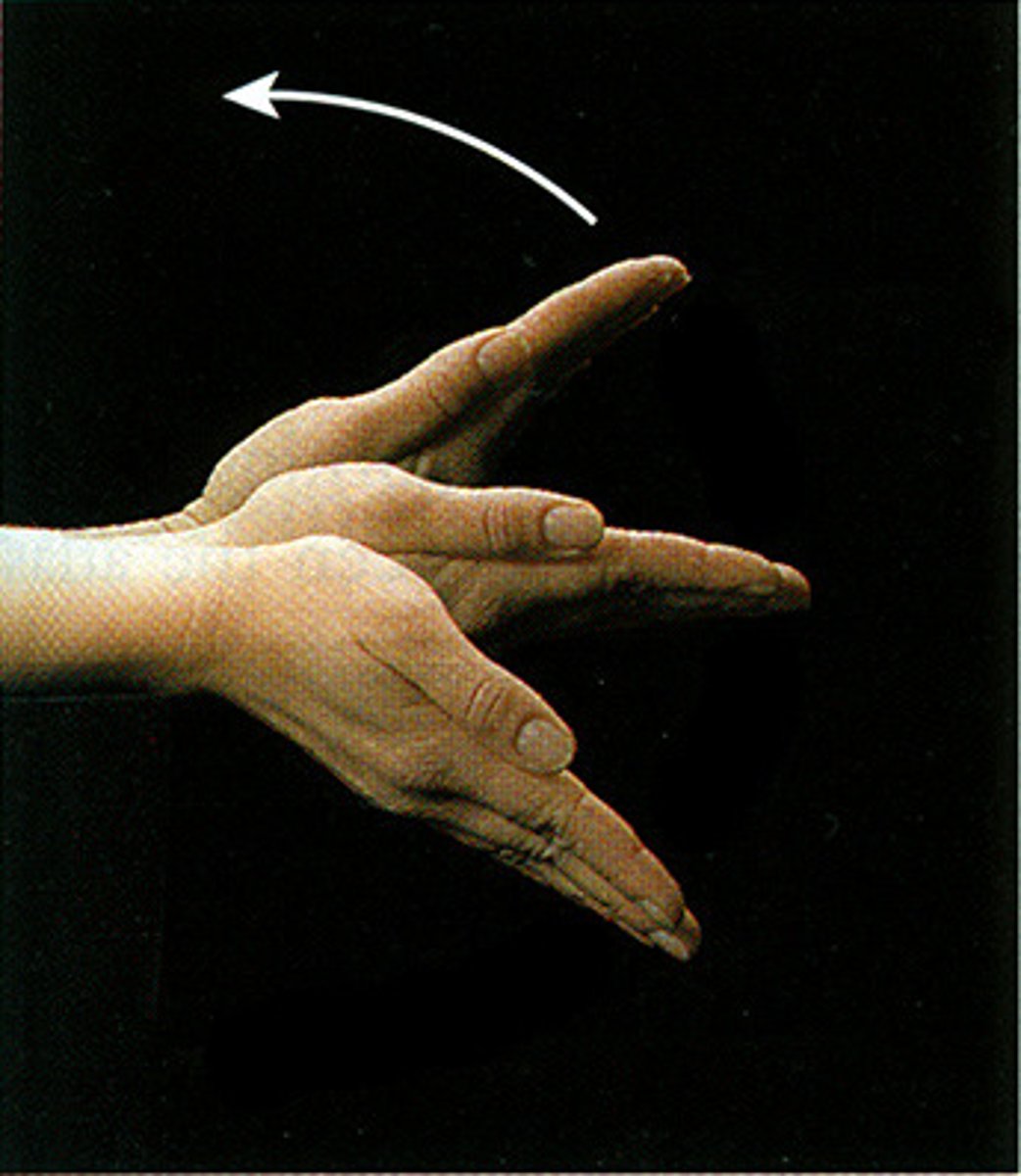
wrist extension
identify the action
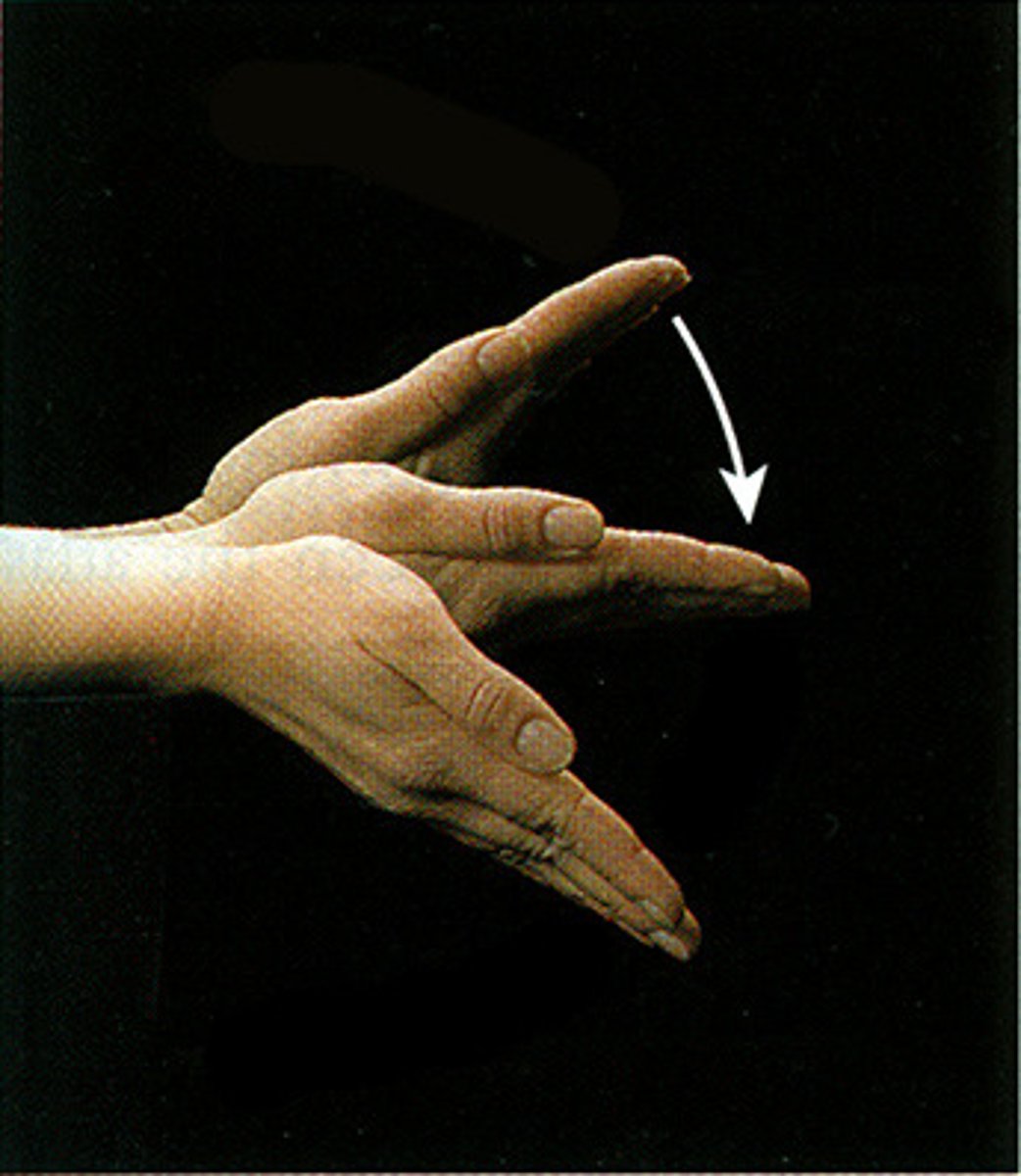
wrist adduction
identify the action
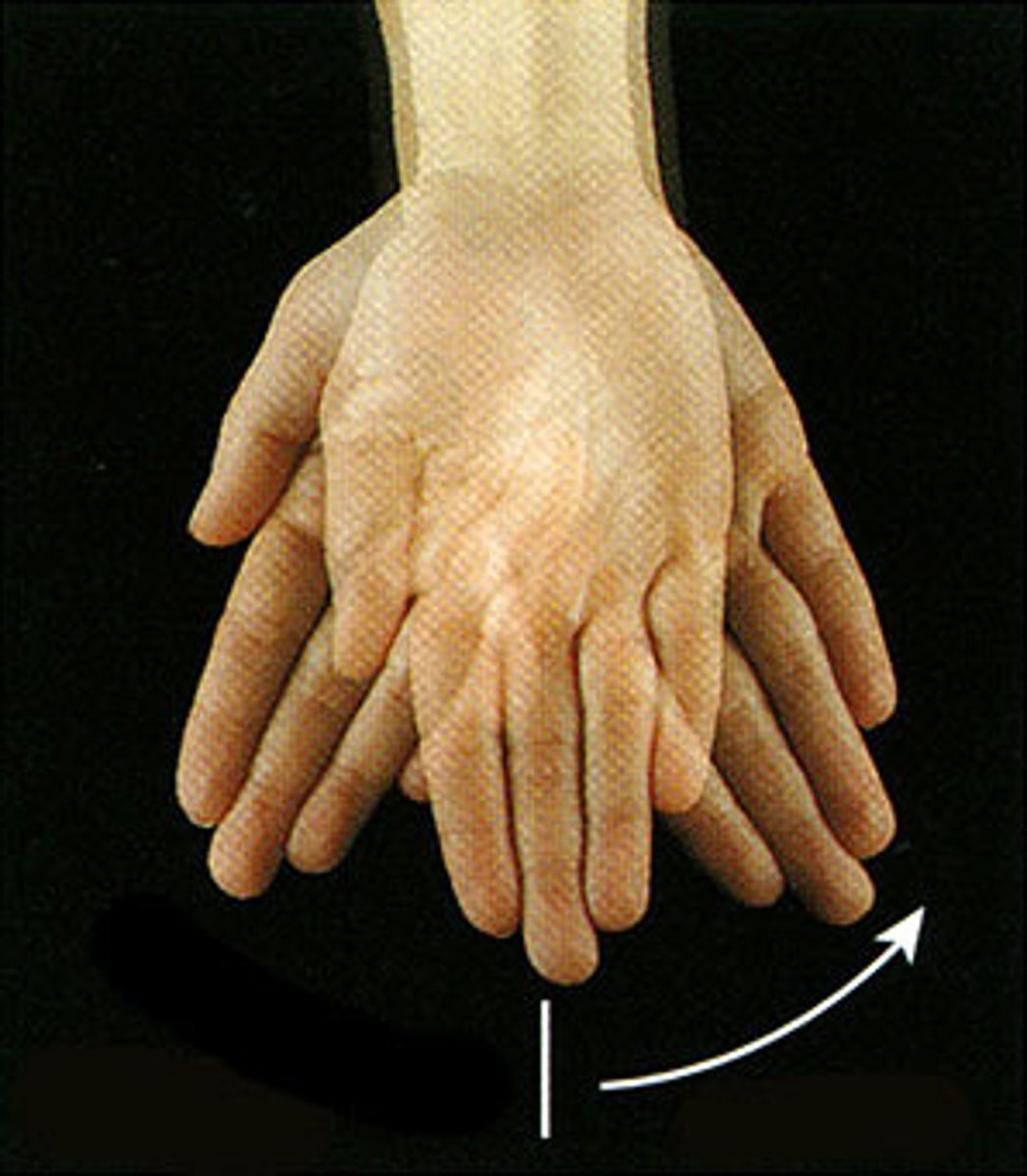
wrist abduction
identify the action
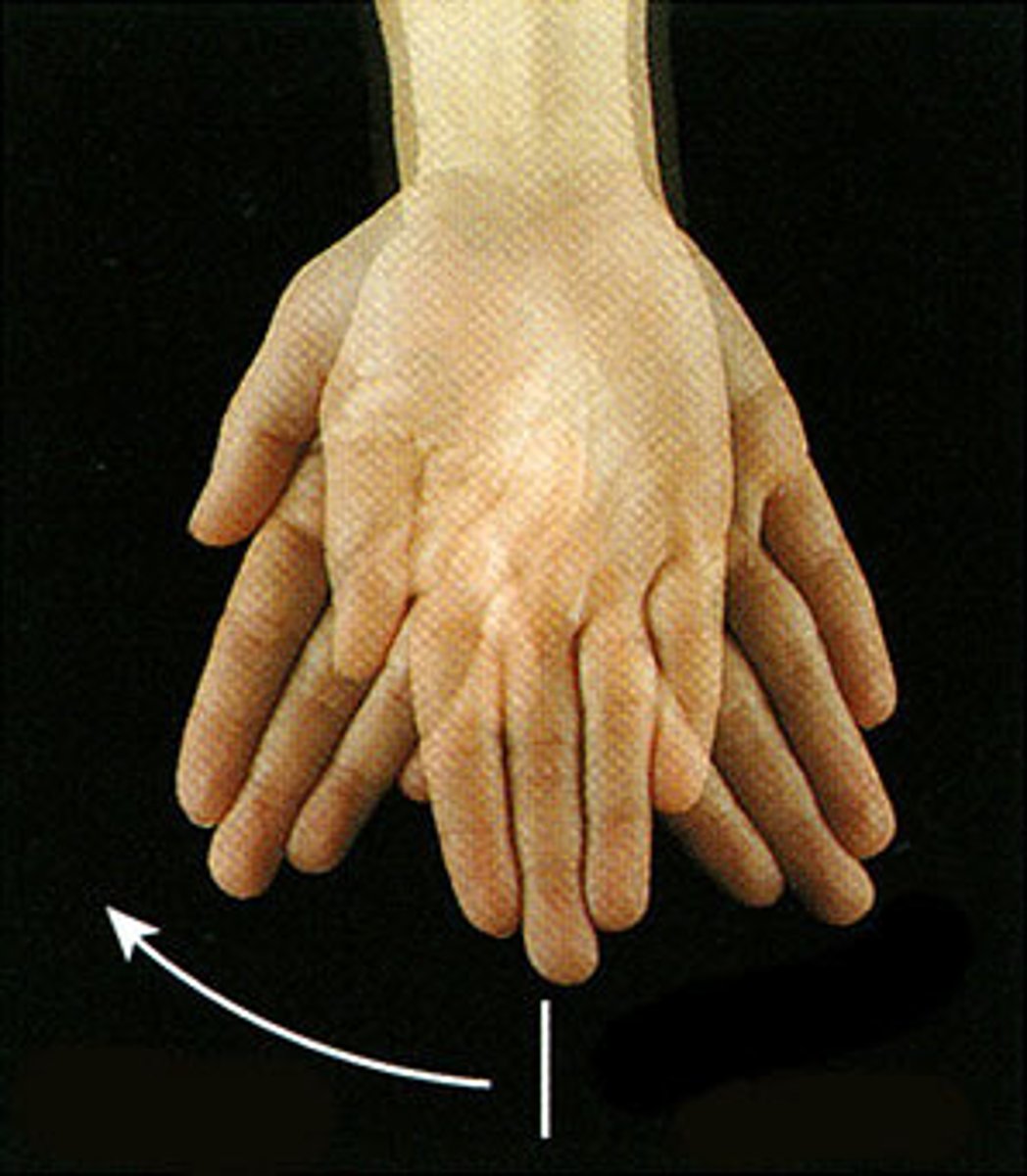
finger adduction
identify the action
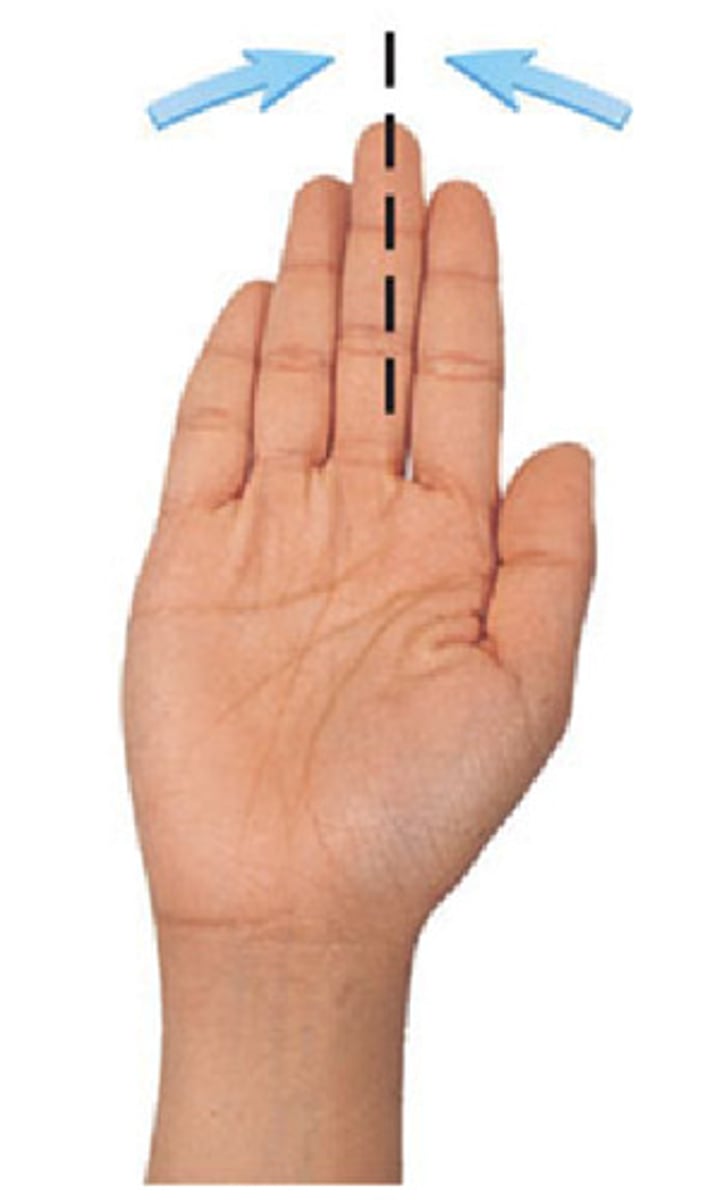
fingers abduction
identify the action
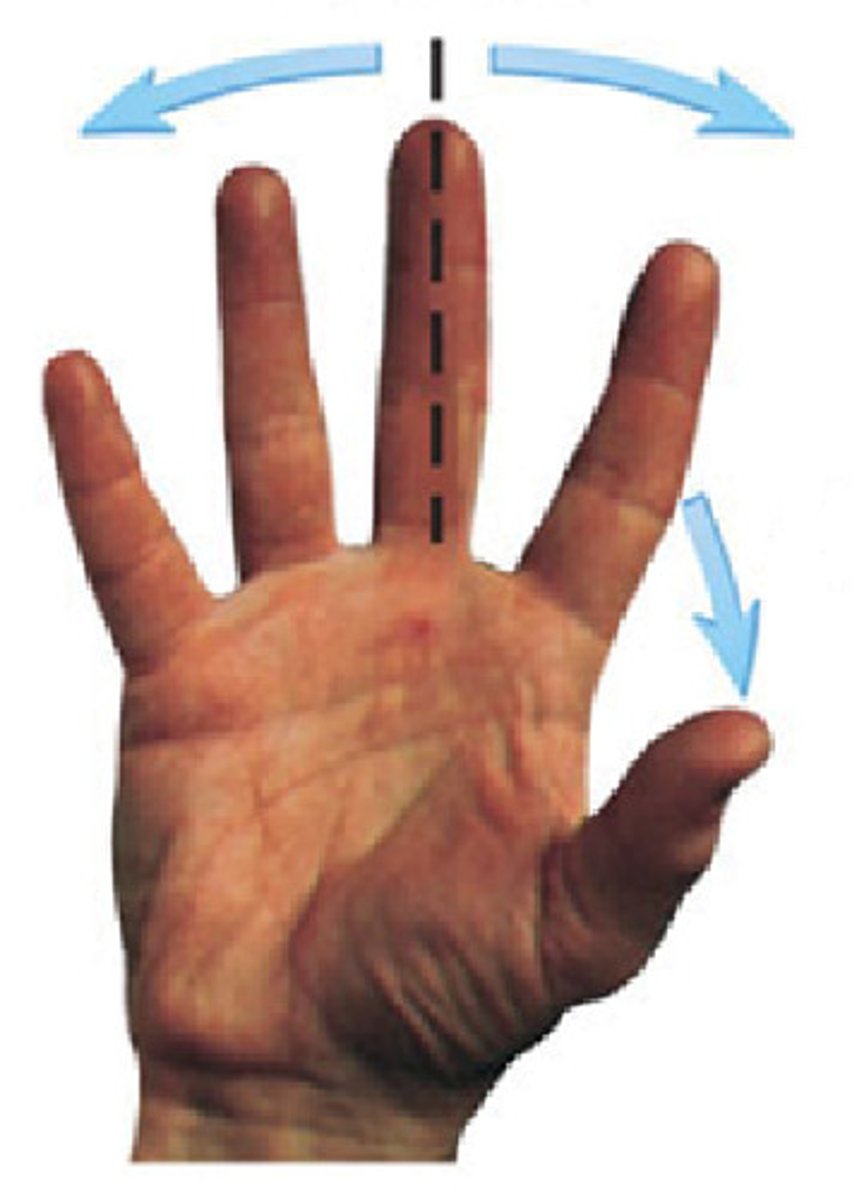
thumb adduction
identify the action
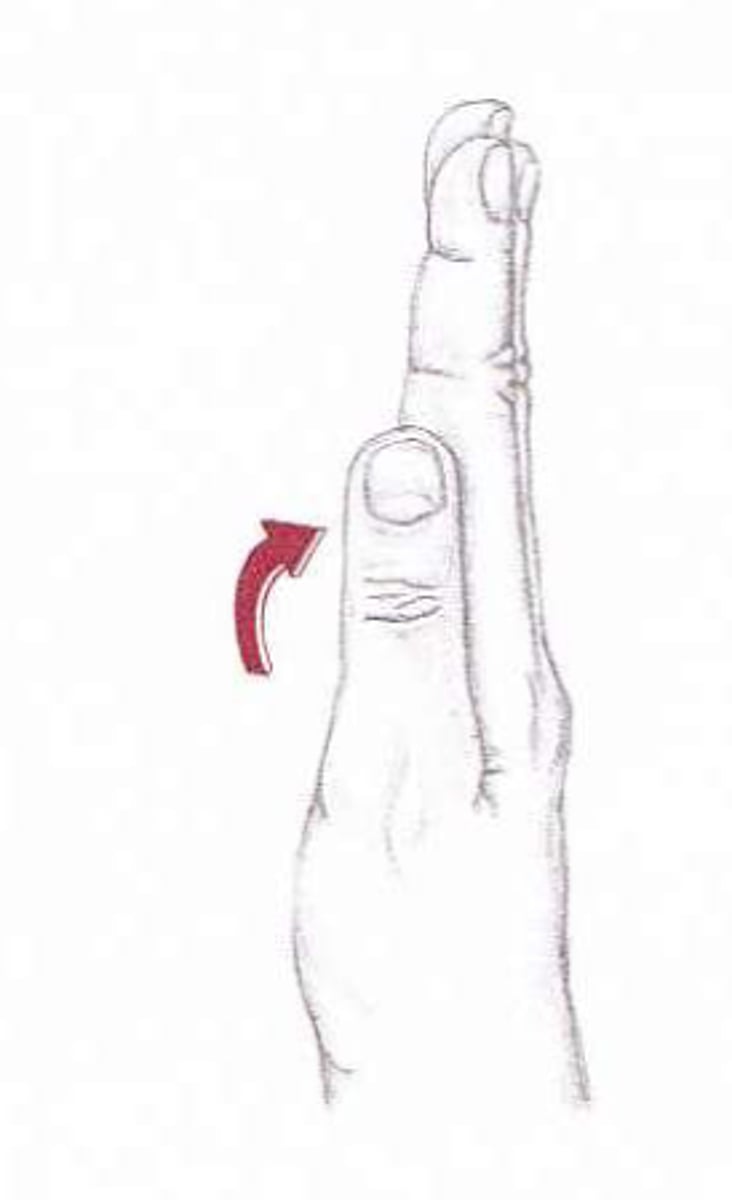
thumb abduction
identify the action
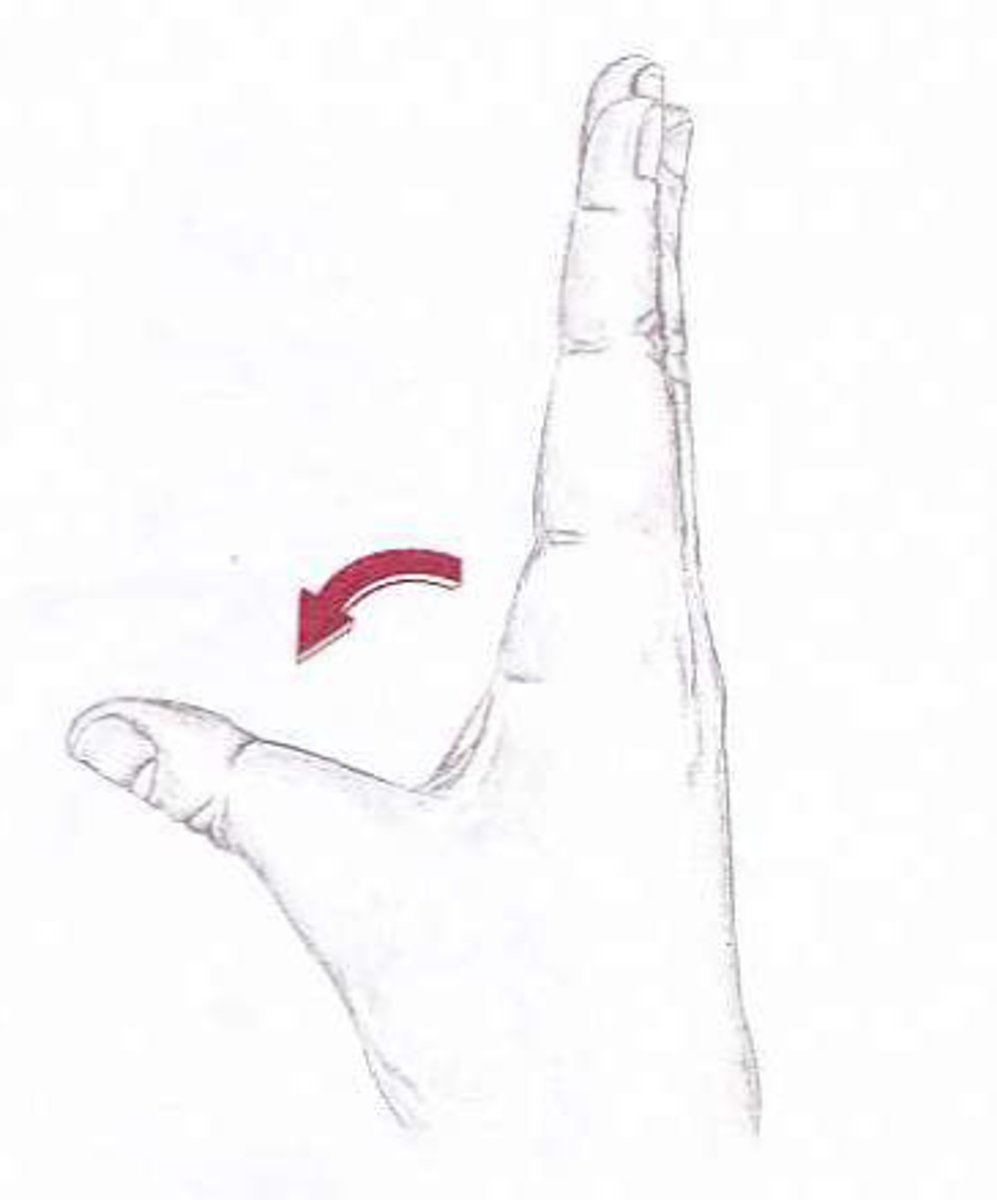
thumb opposition
identify the action
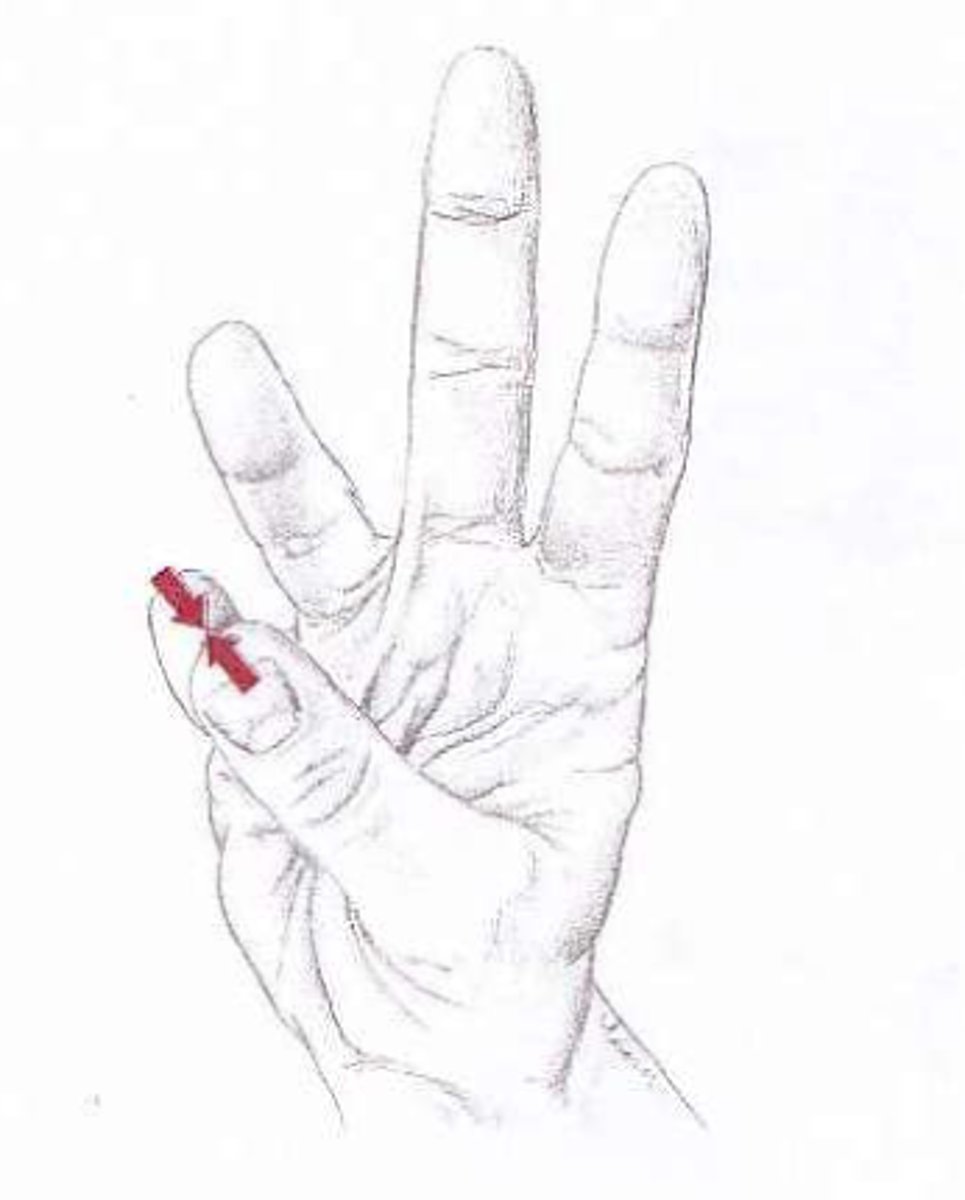
thumb flexion
identify the action
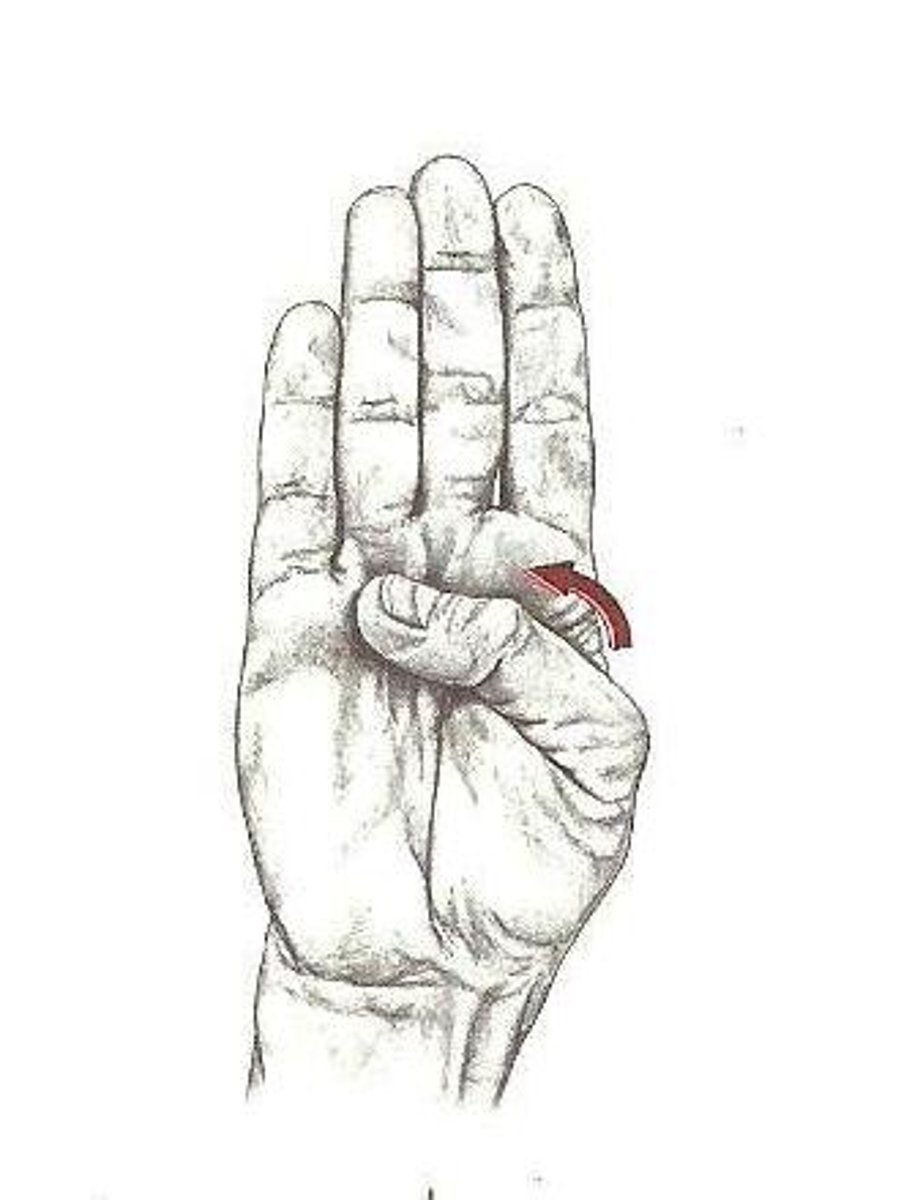
thumb extension
identify the action
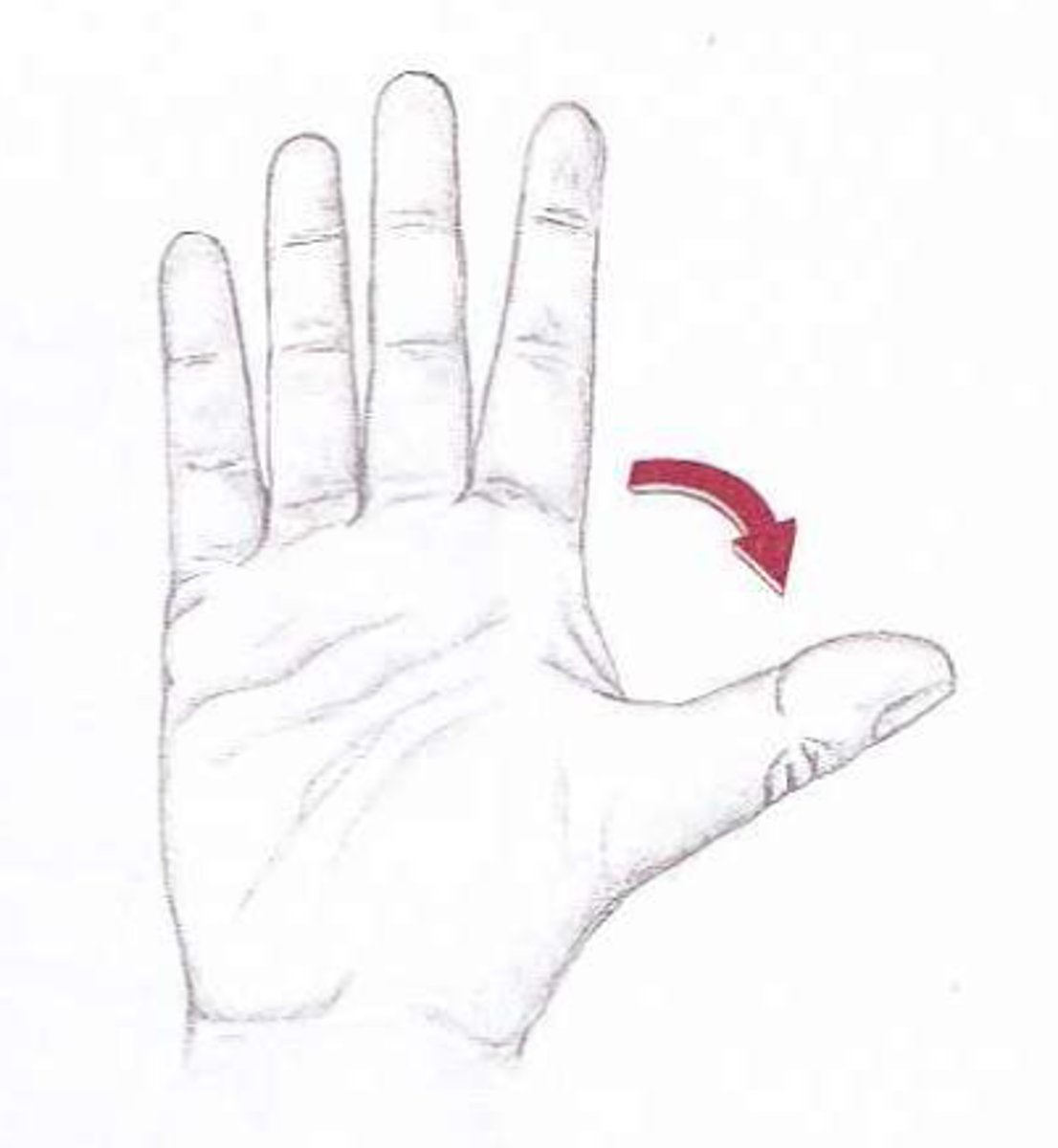
Radius
identify the structure
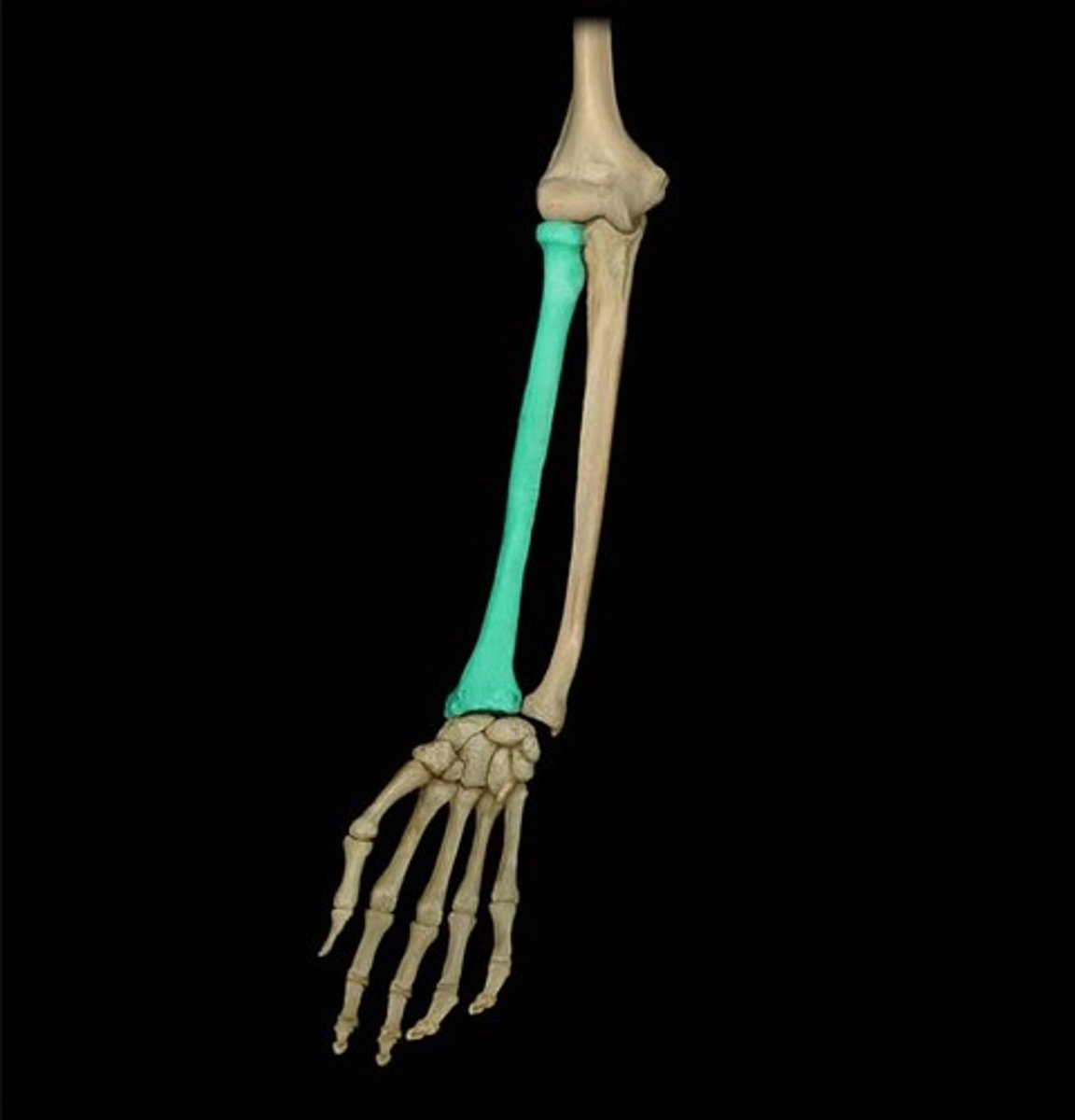
Ulna
identify the structure
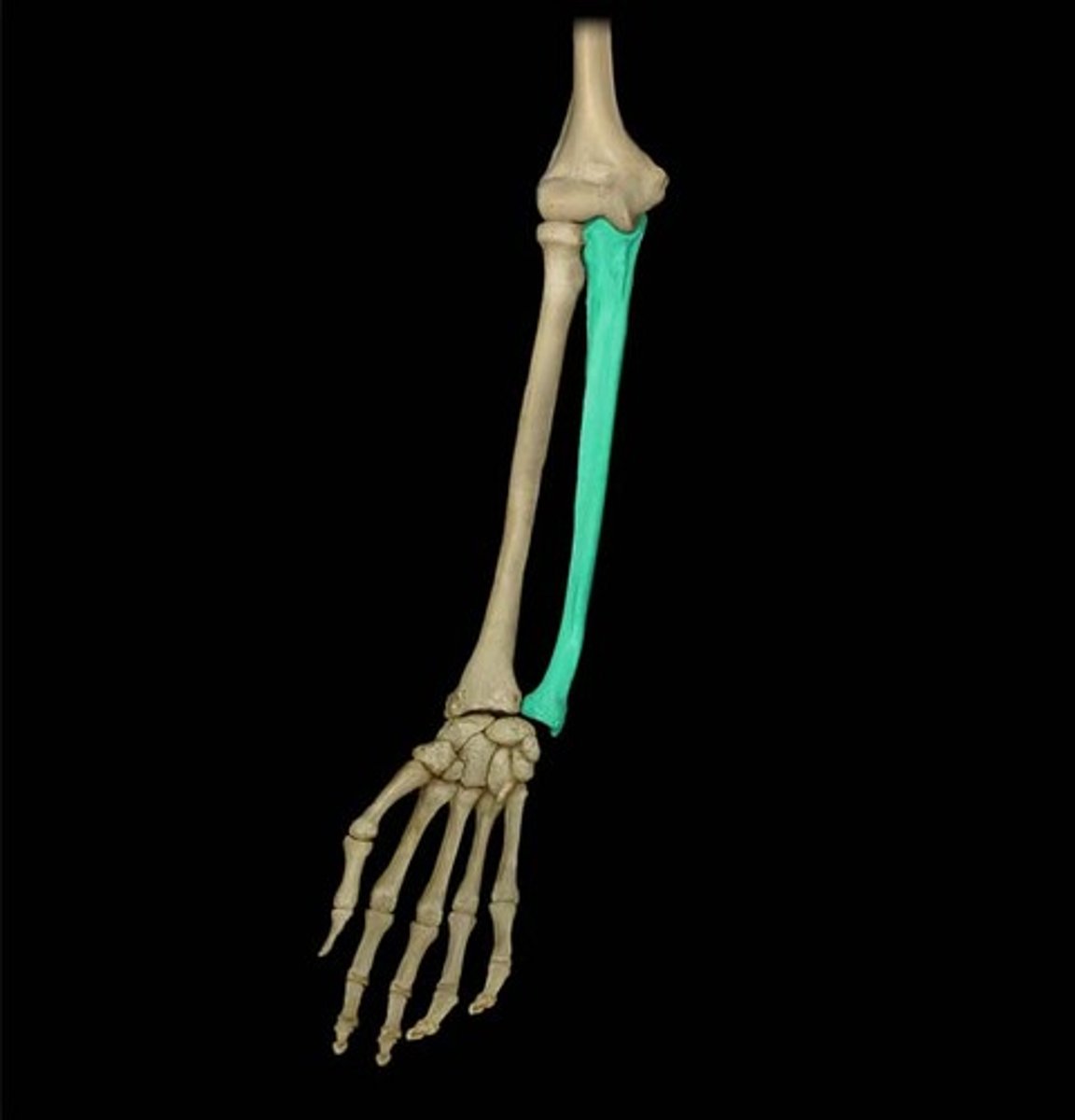
head of humerus
identify the structure
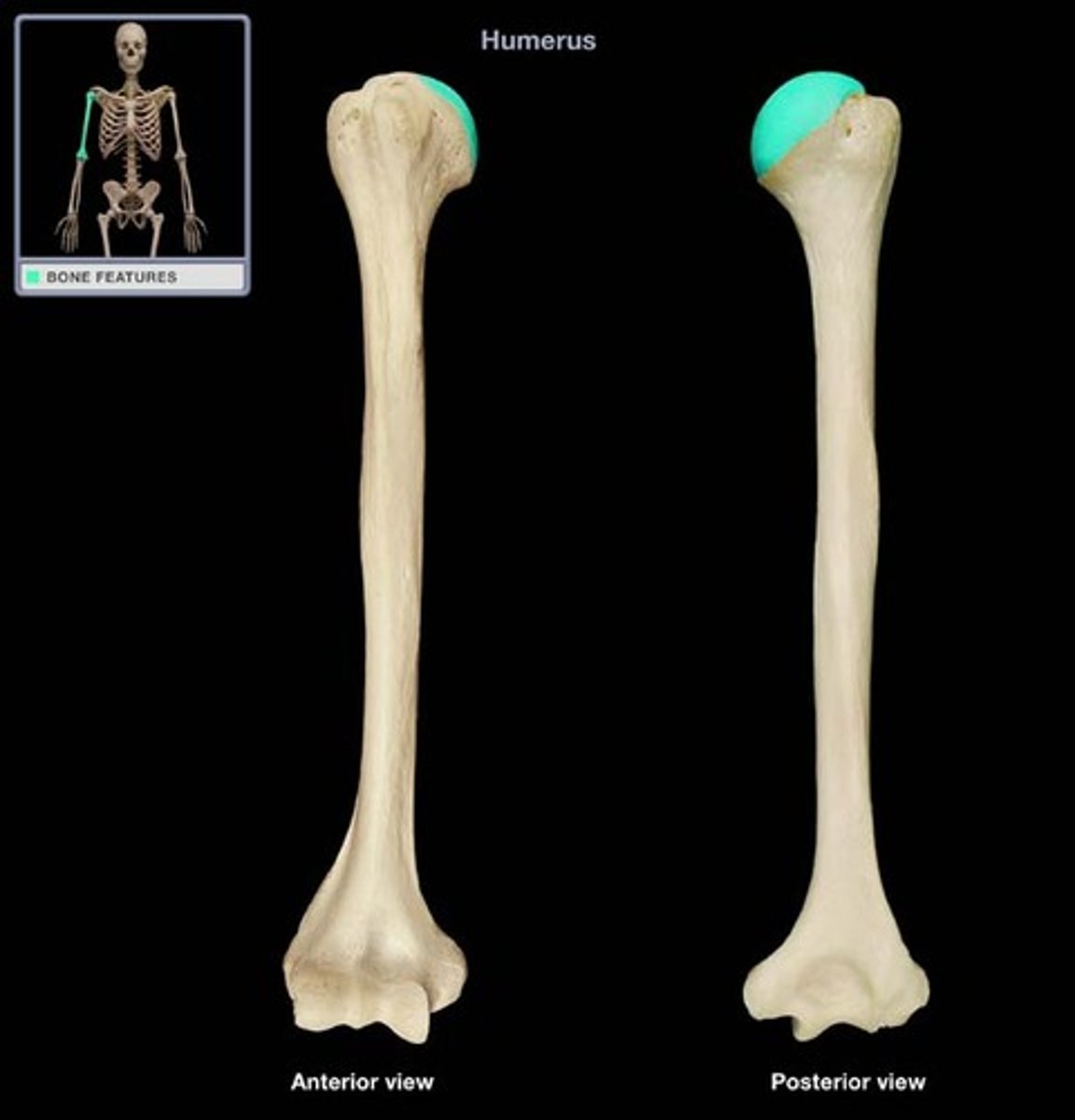
anatomical neck
identify the structure
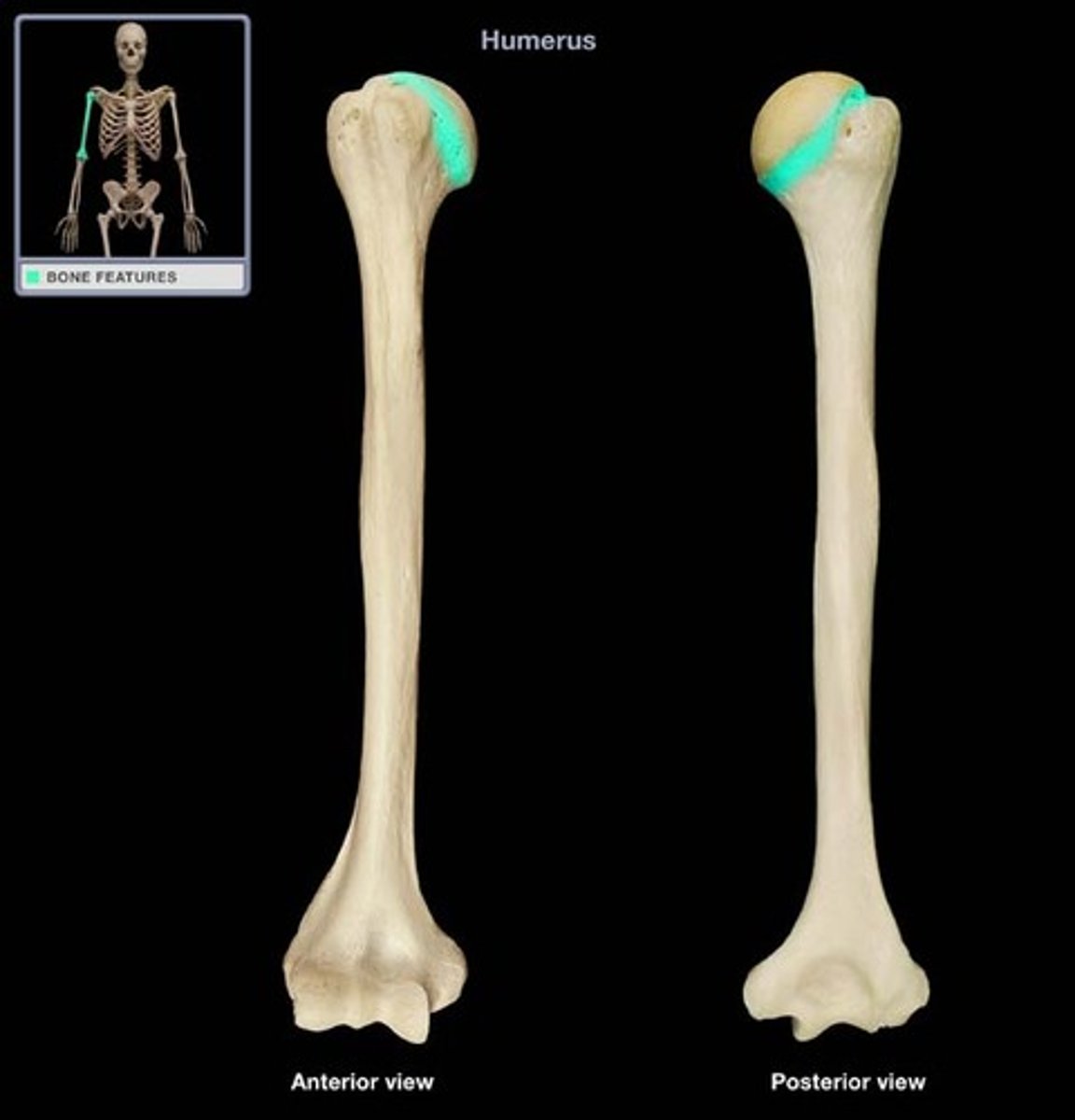
lesser tubercle
identify the structure
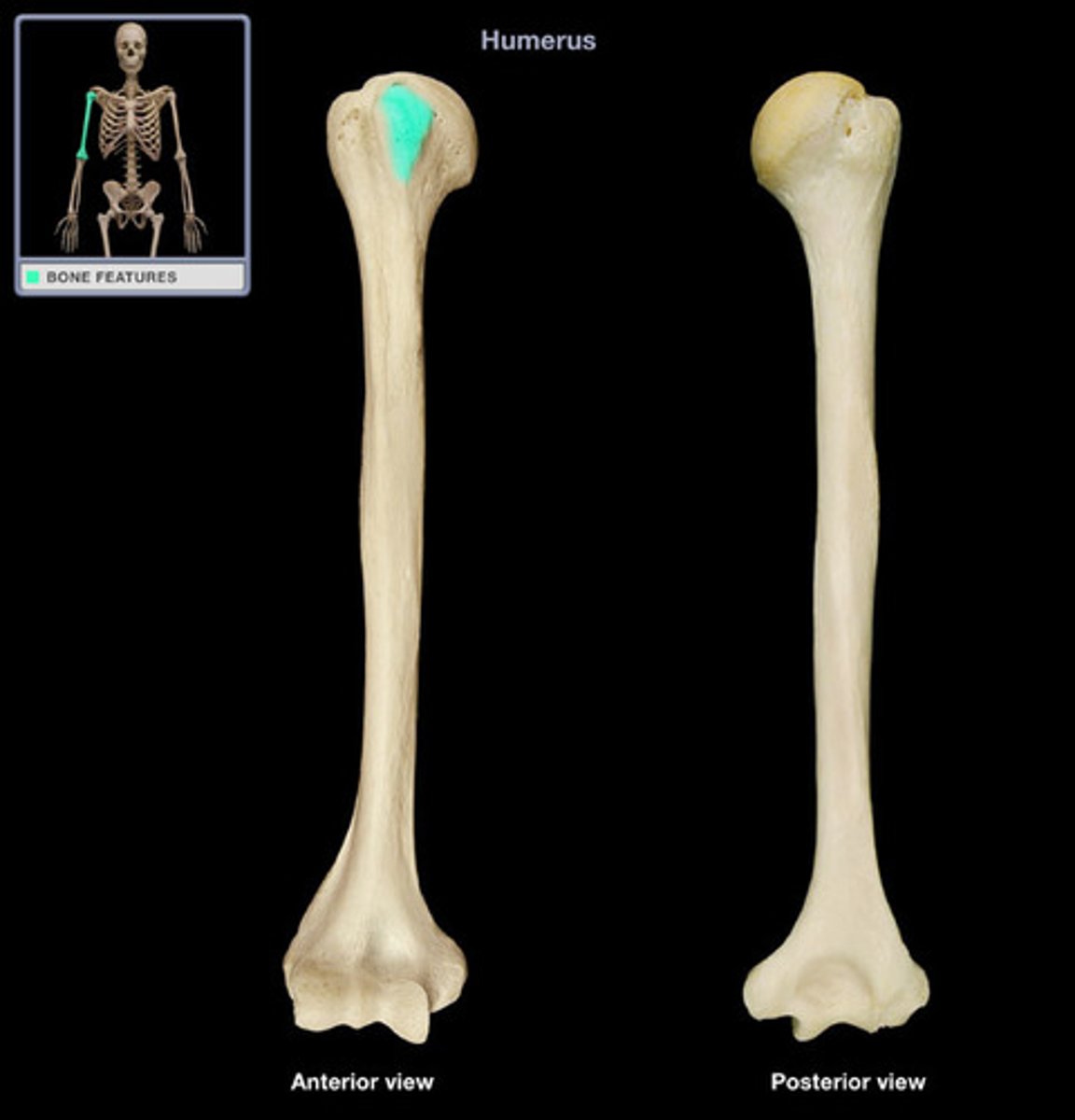
greater tubercle
identify the structure
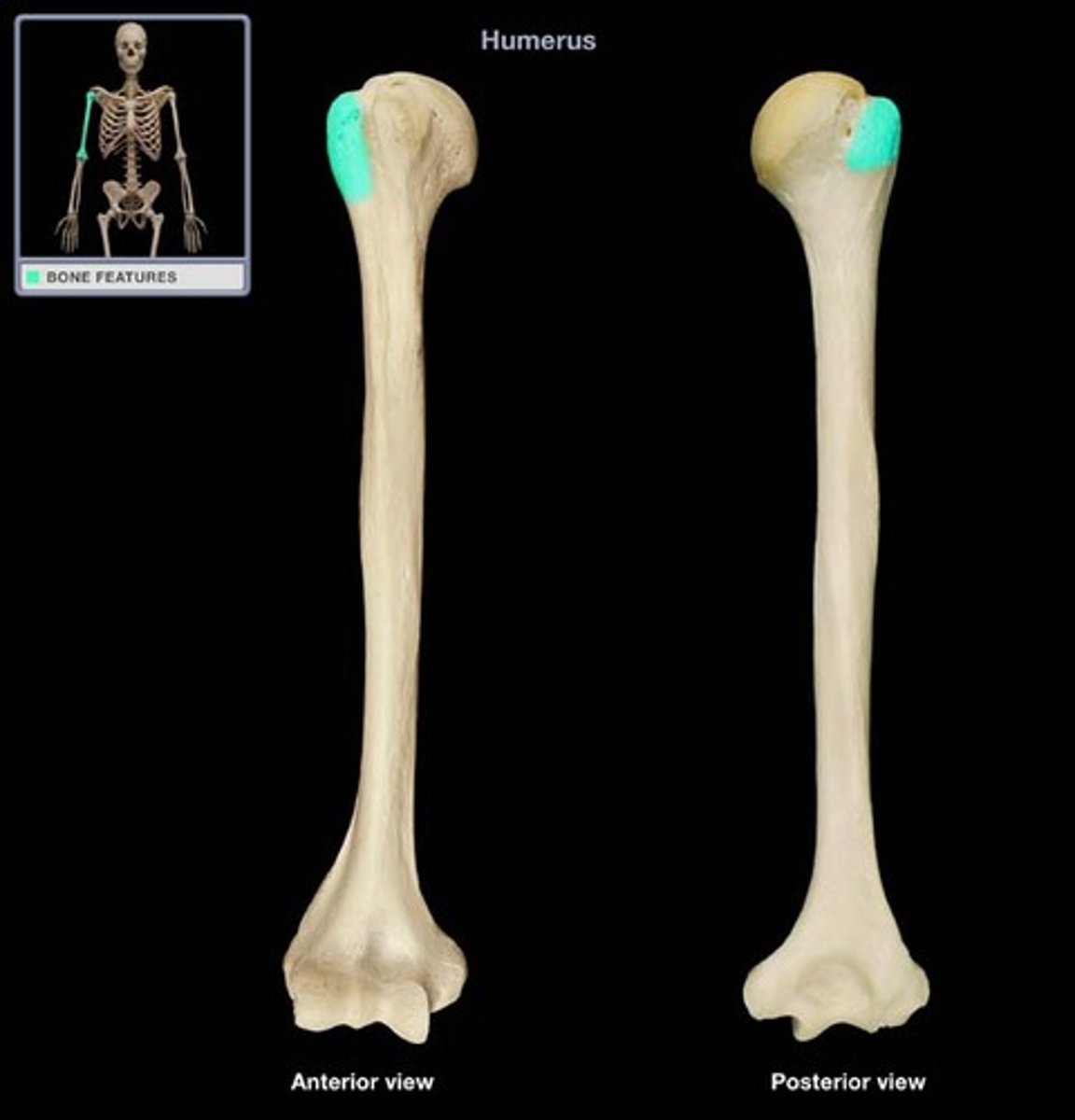
intertubercular sulcus
identify the structure
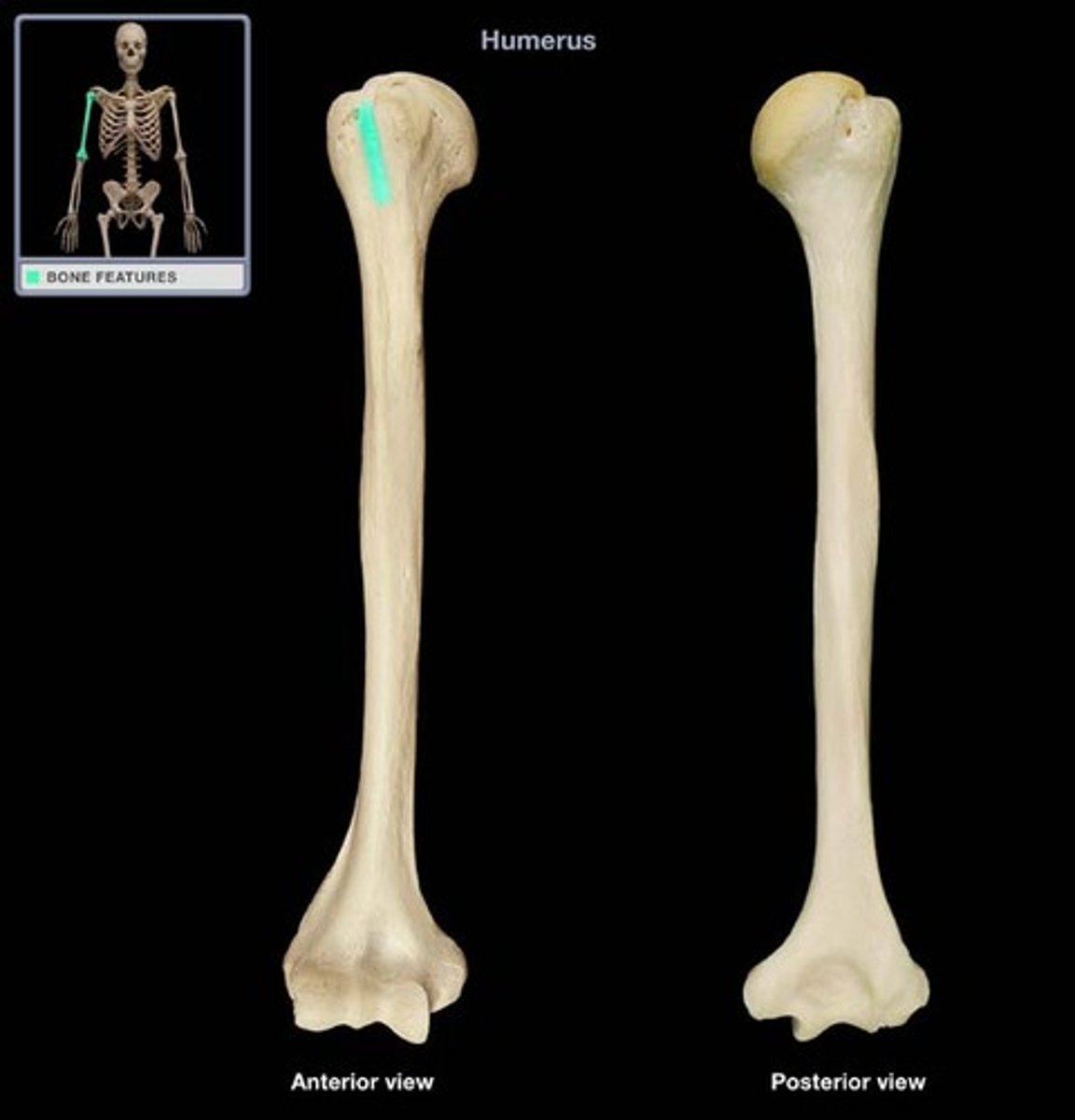
surgical neck
identify the structure
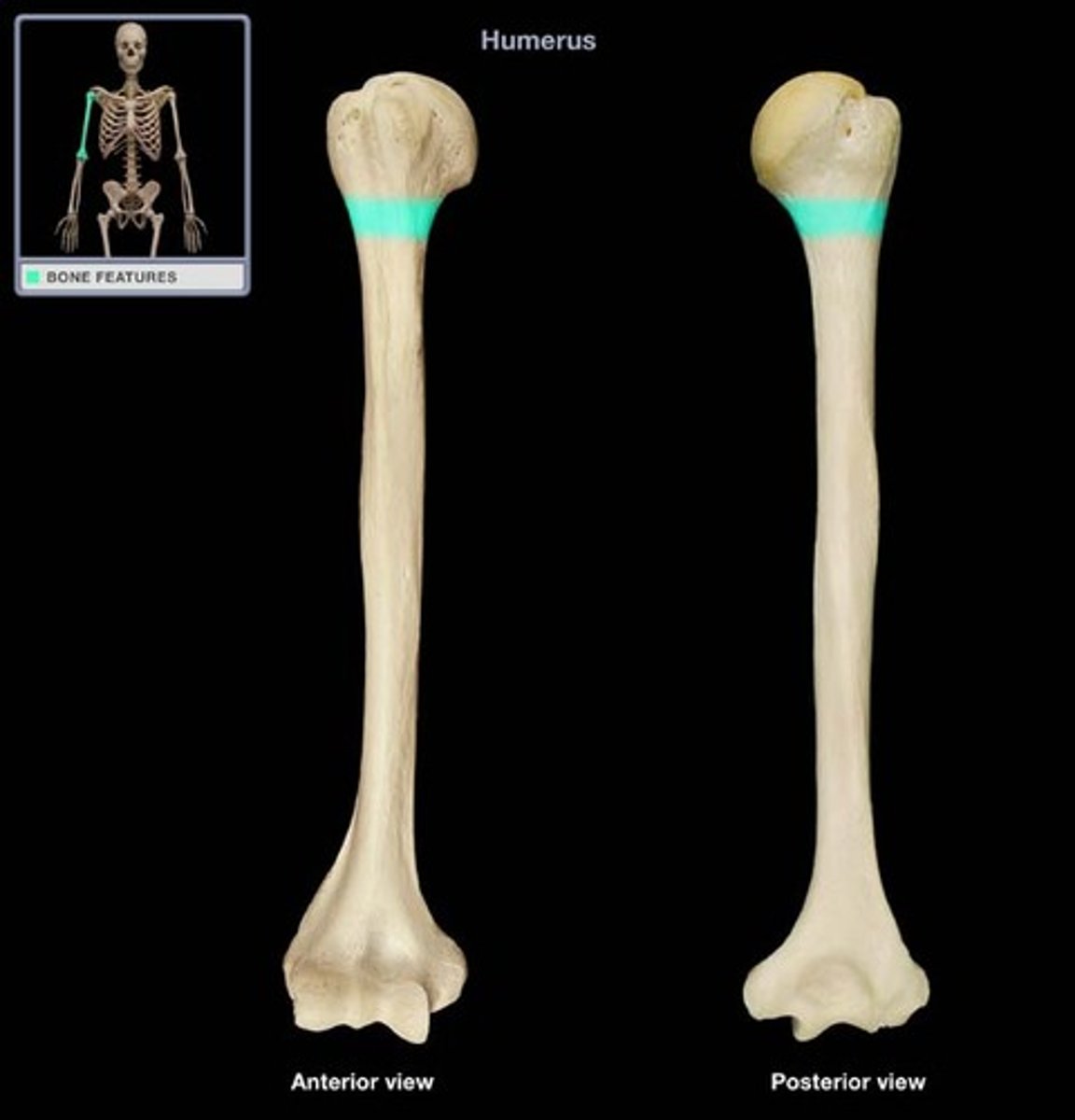
deltoid tuberosity
identify the structure
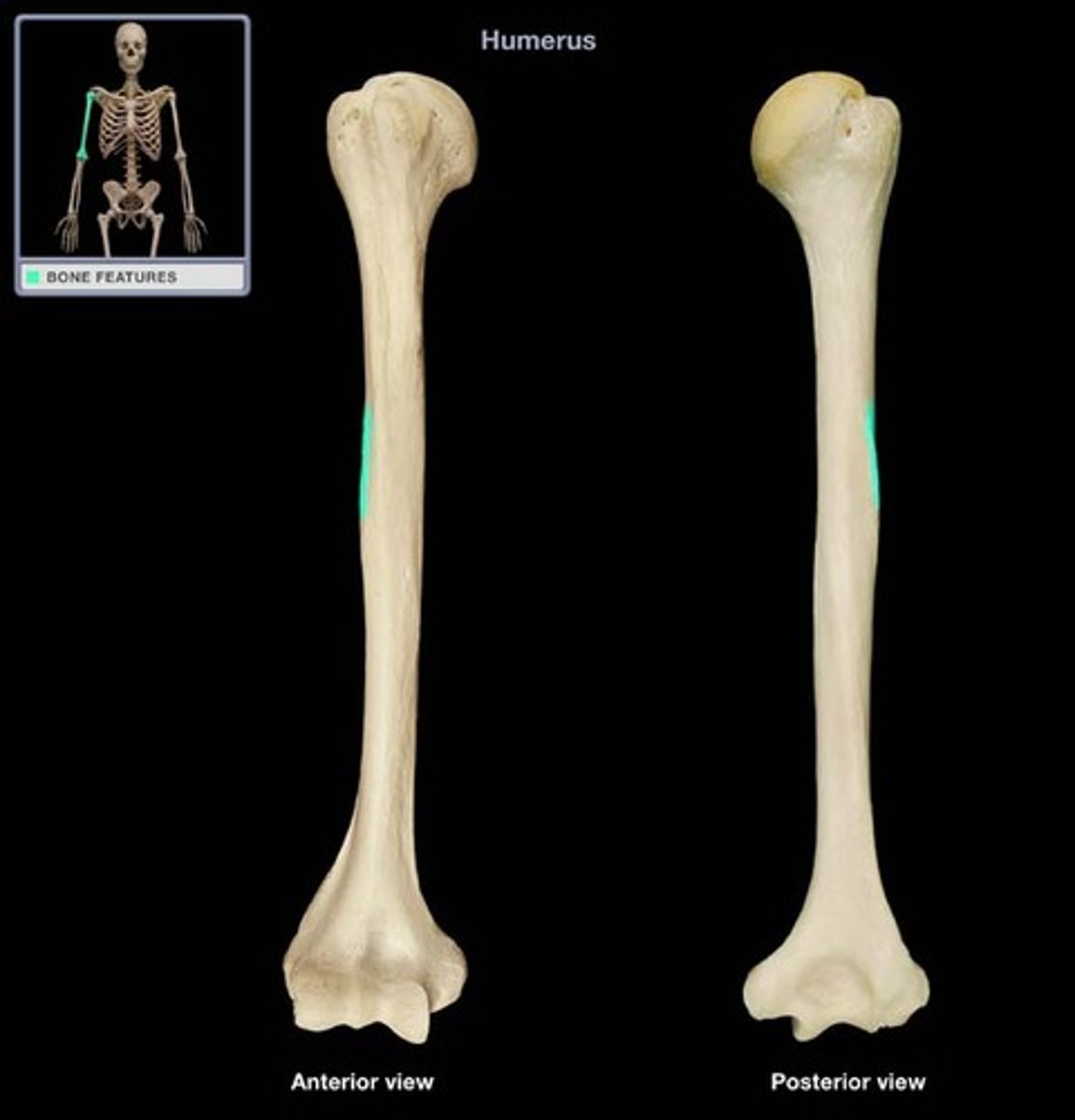
radial (spiral) groove
identify the structure
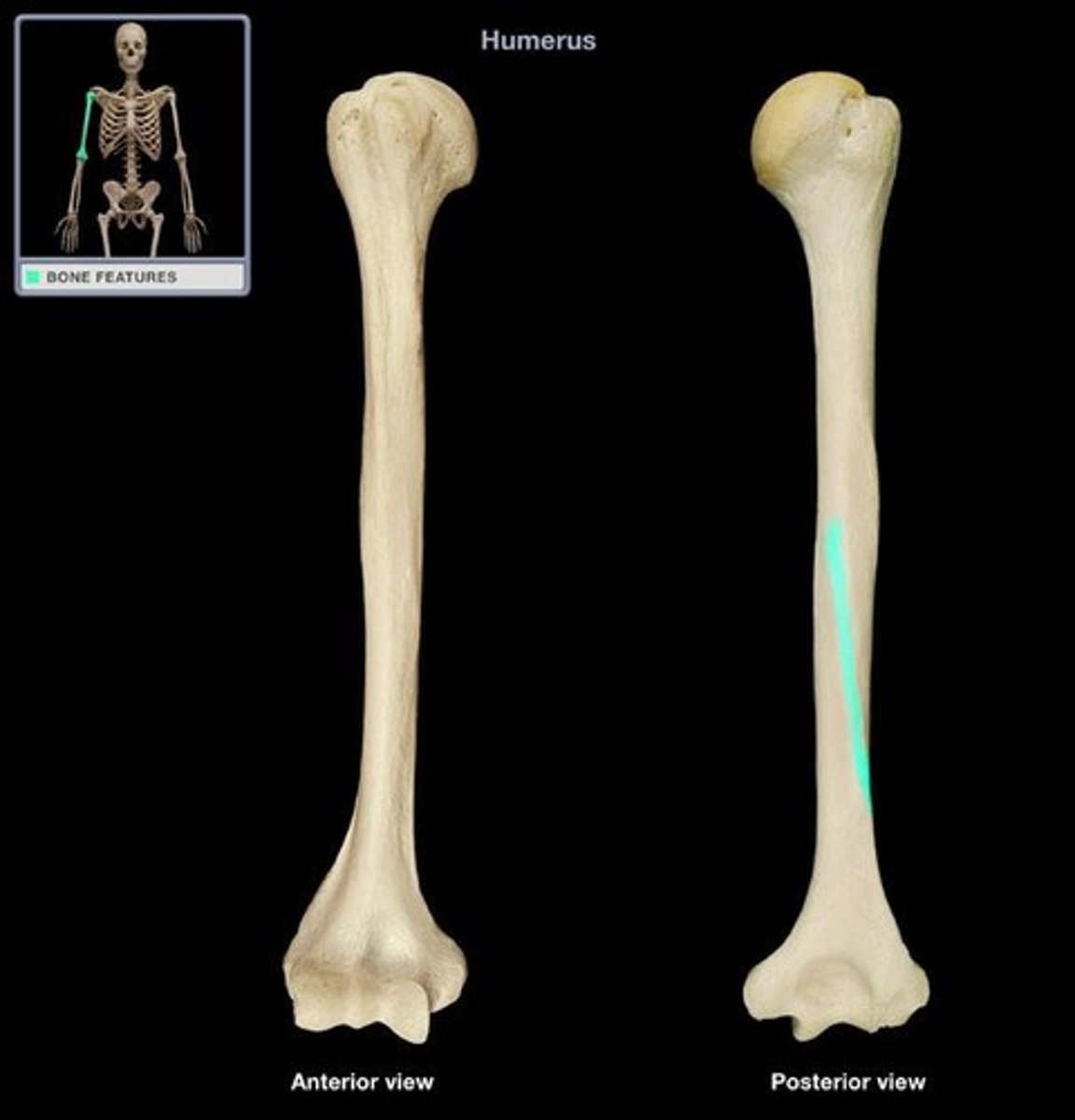
olecranon fossa
identify the structure
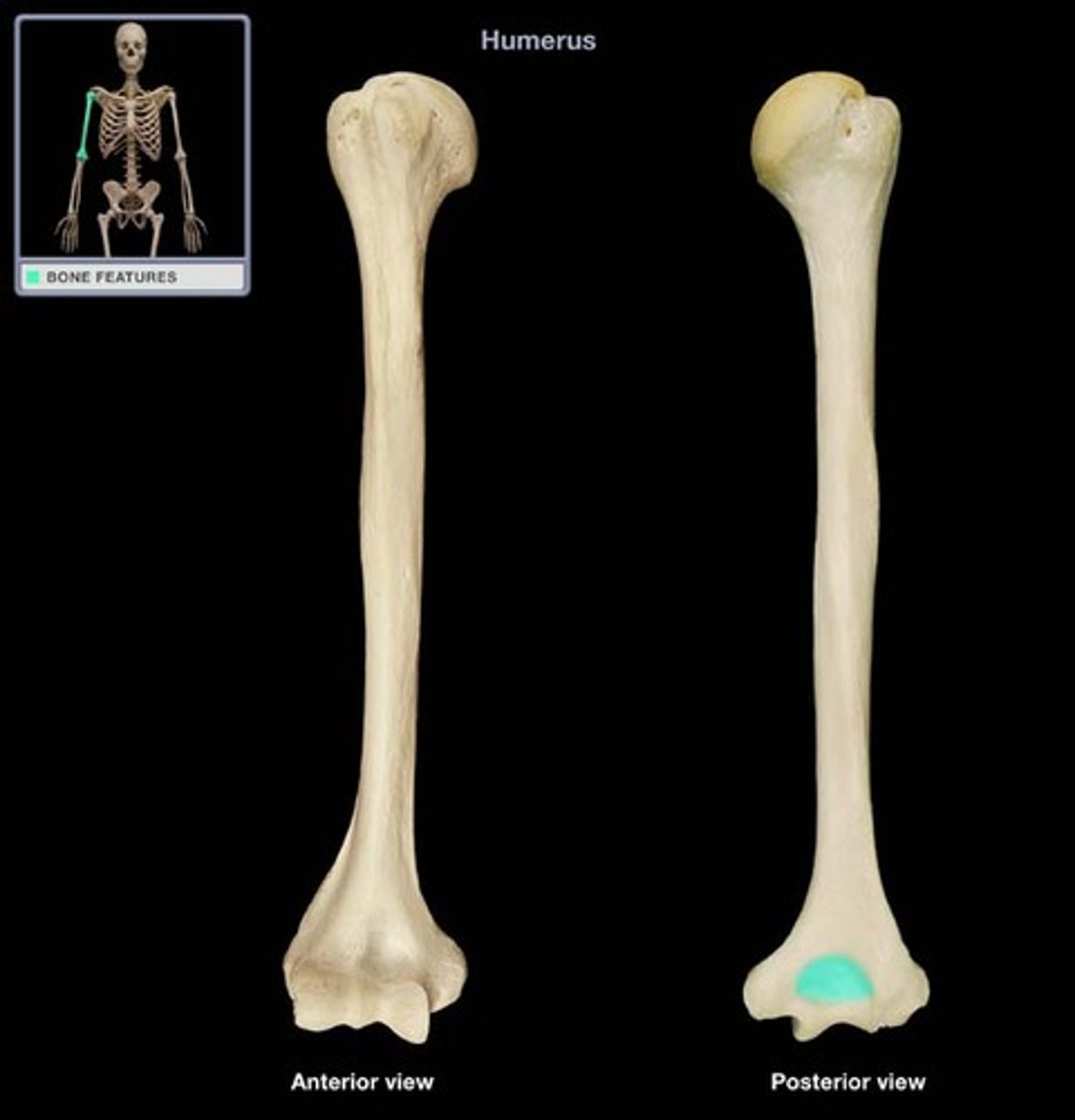
lateral epicondyle
identify the structure
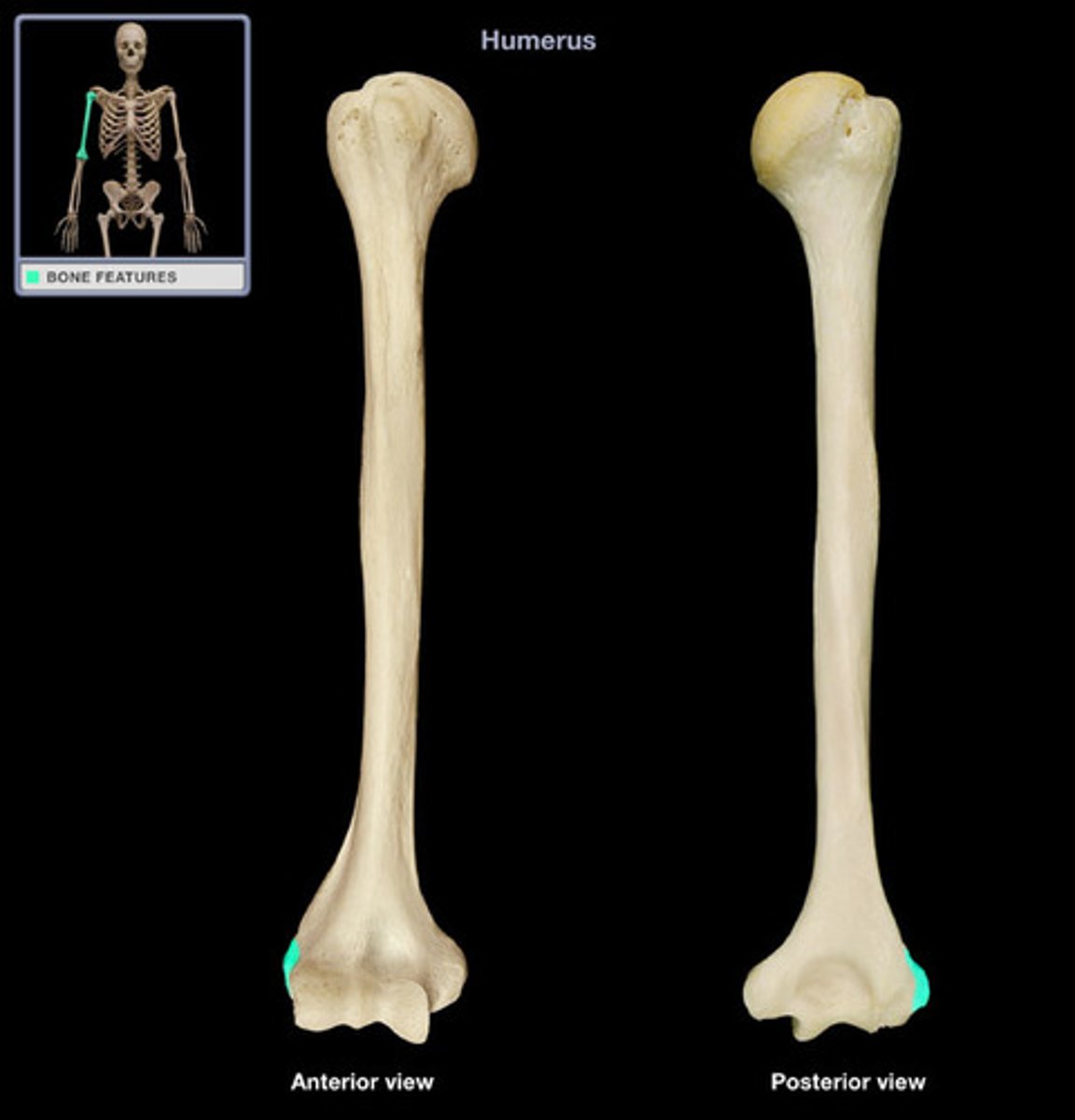
radial fossa
identify the structure
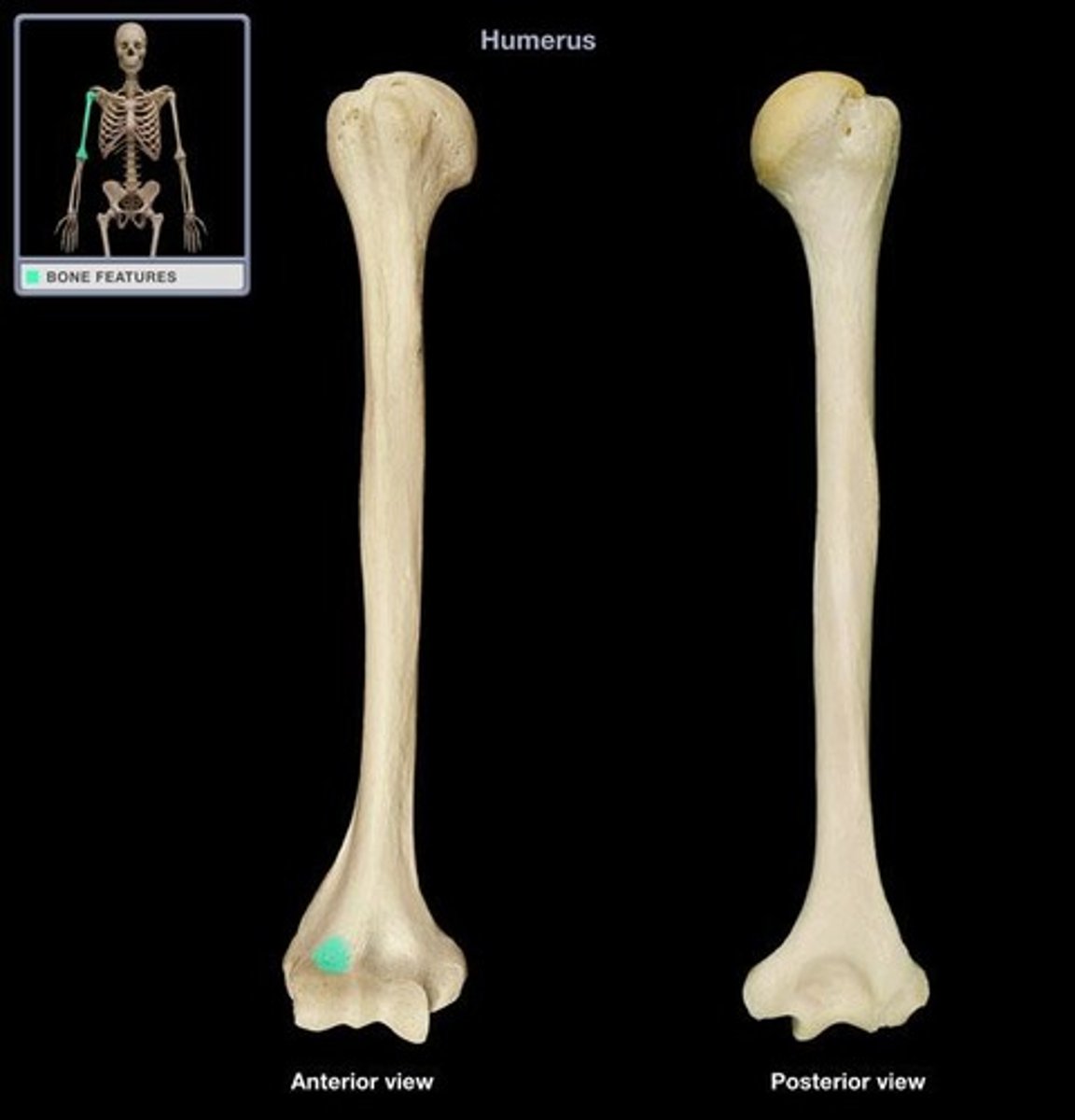
coronoid fossa
identify the structure
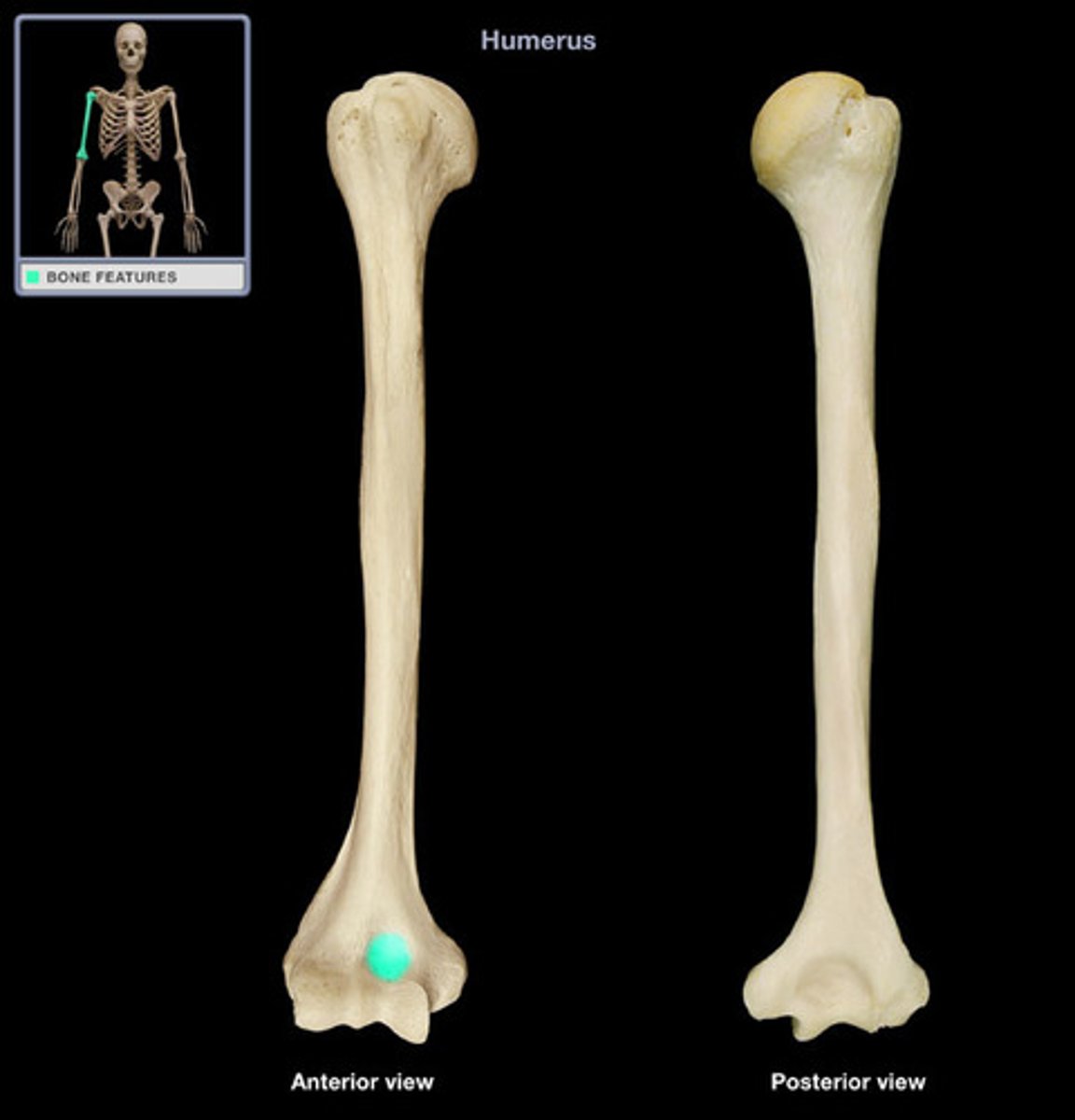
medial epicondyle
identify the structure
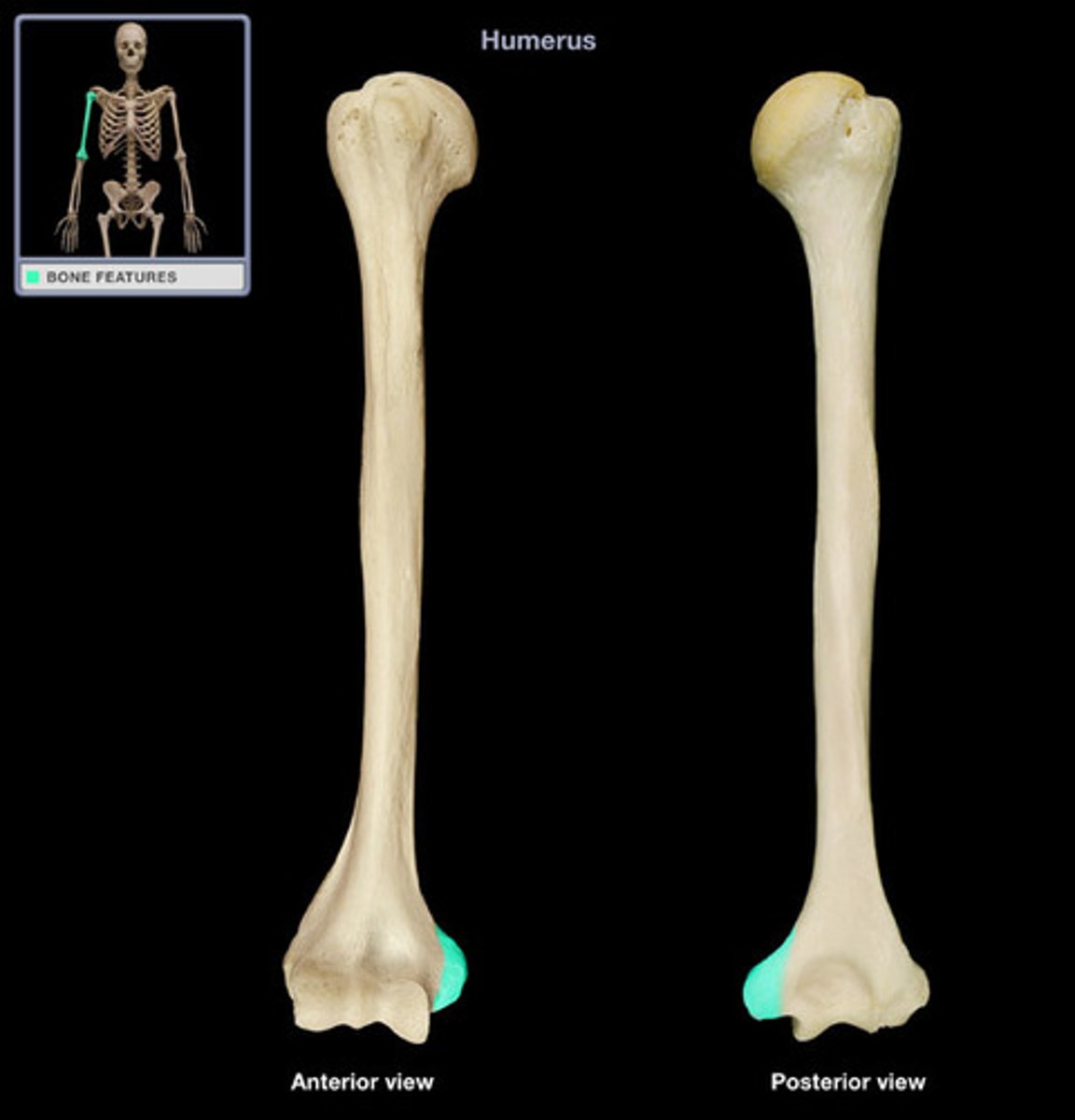
head of radius
identify the structure
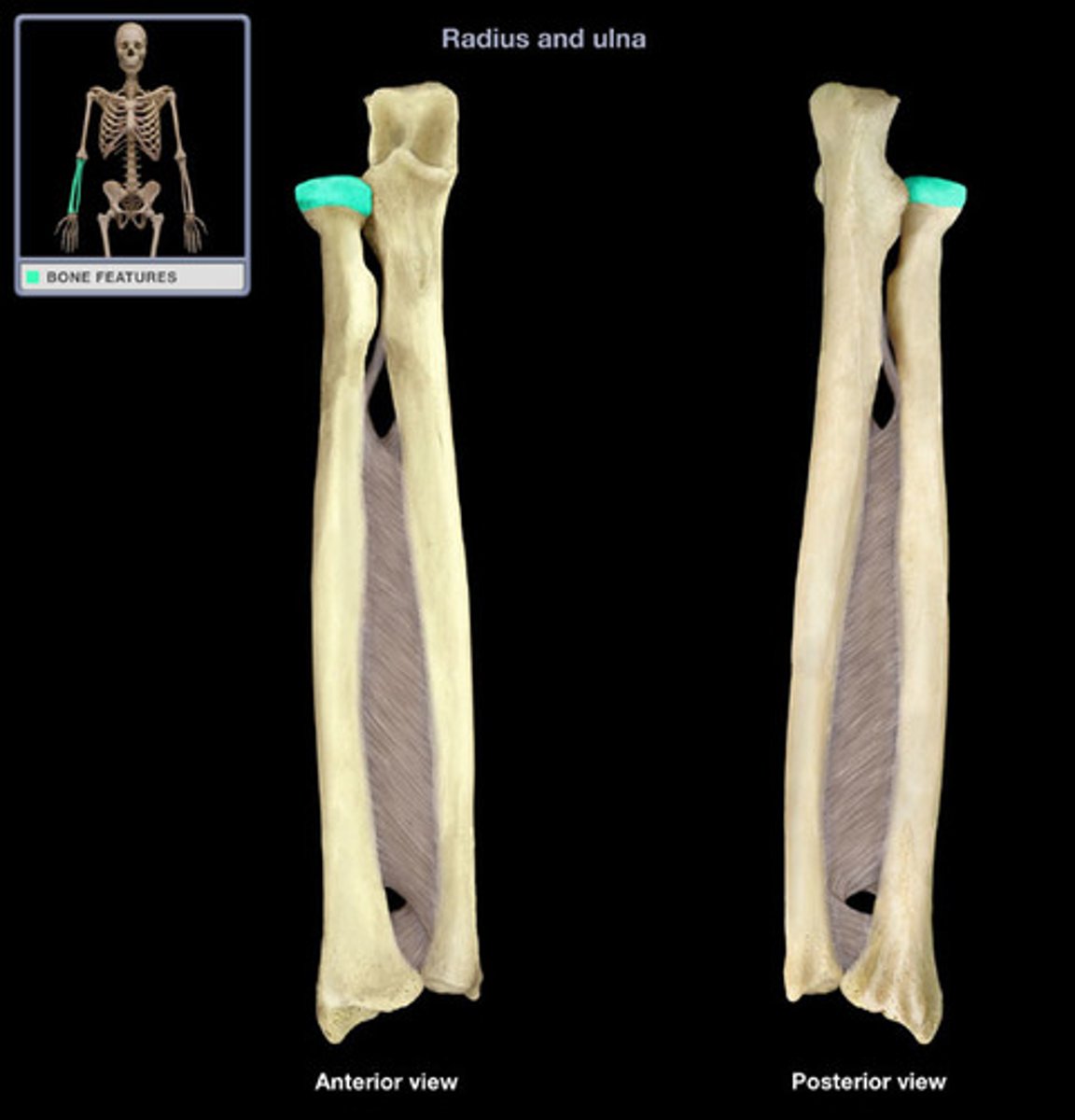
coronoid process
identify the structure
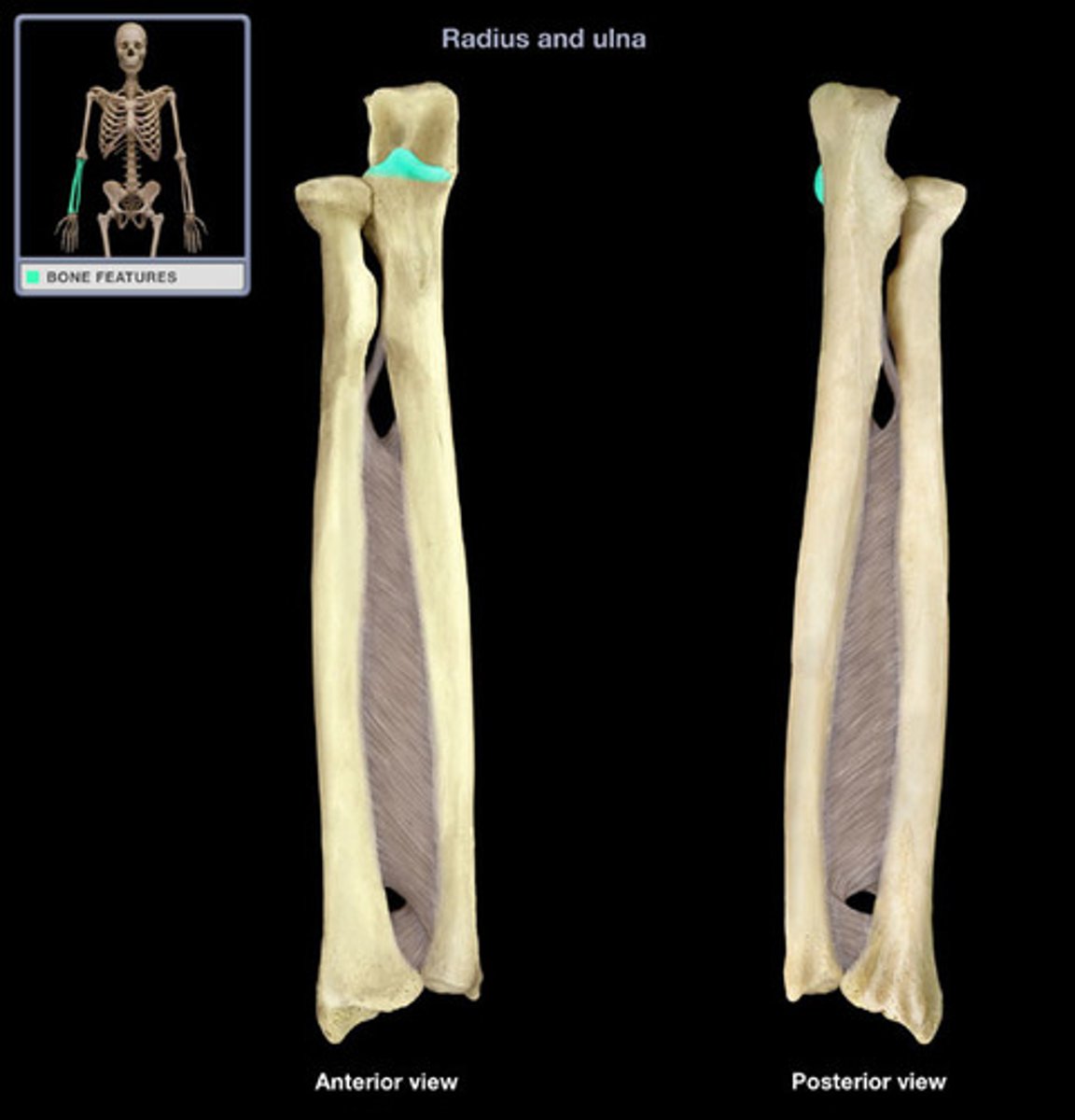
olecranon process
identify the structure
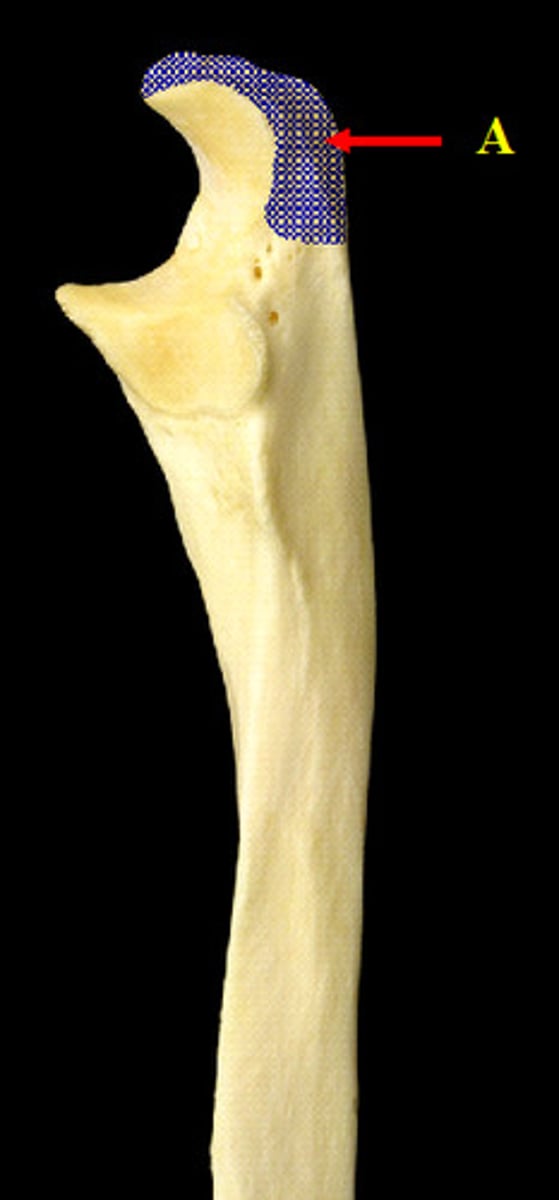
ulna
the olecranon process is located on what bone?
posterior distal humerus
the olecranon fossa is located on what bone?
ulna
which forearm bone moves posteriorly in an elbow dislocation?
ulnar nerve
what nerve can be damaged in an elbow dislocation?
ulna
what bone is dislocated in this x-ray?
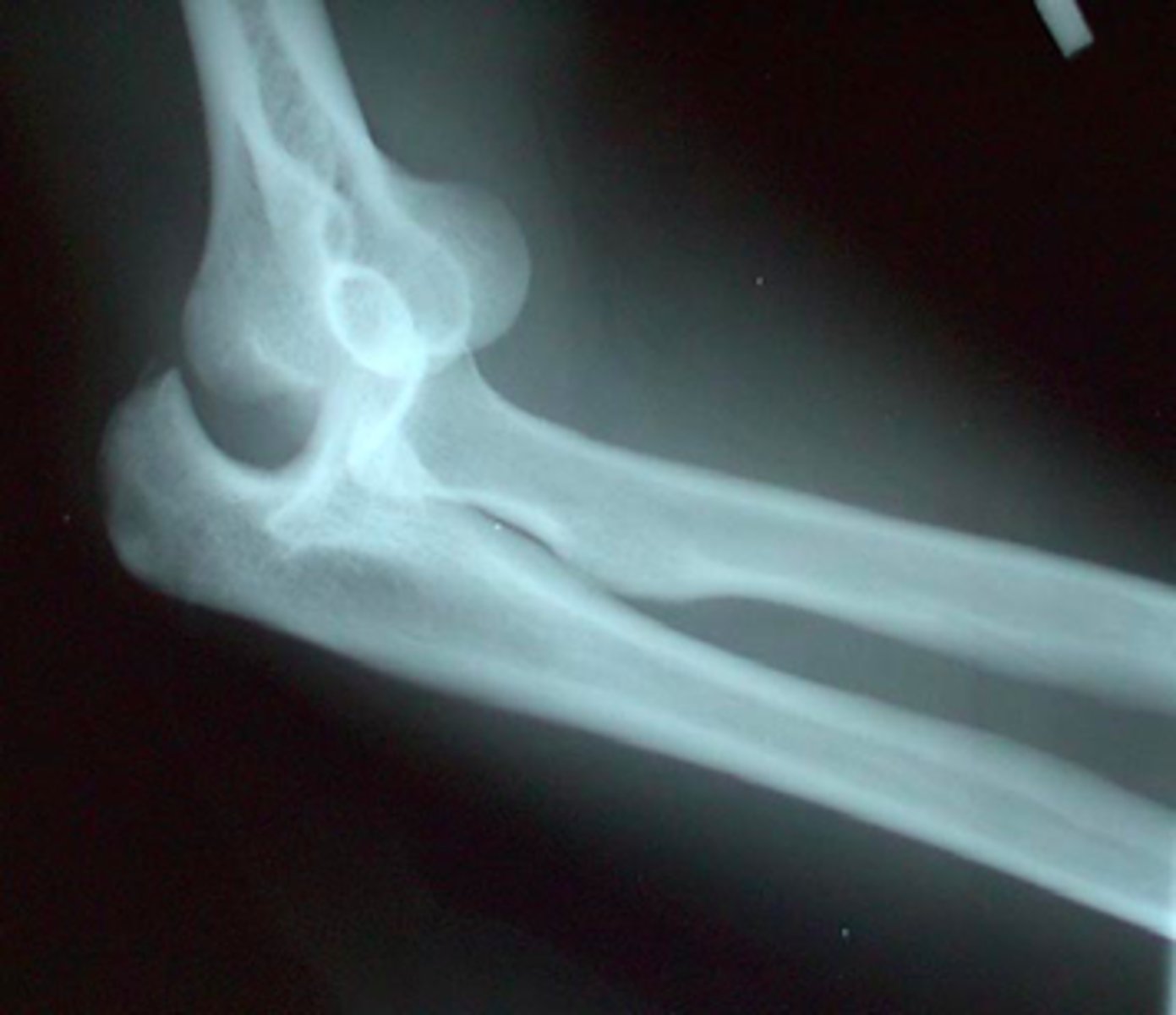
radial collateral ligament
identify the structure
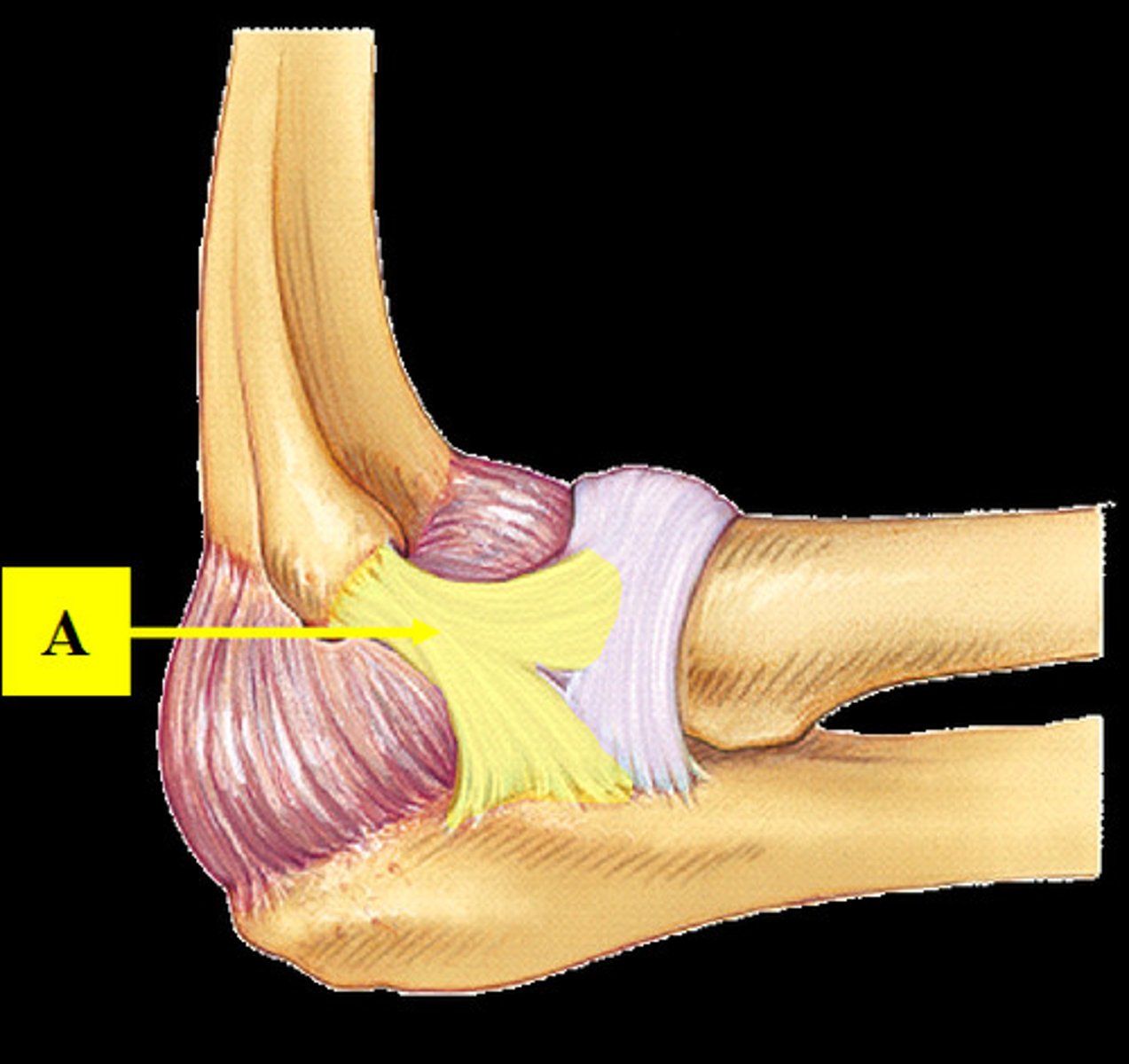
ulnar collateral ligament
identify the structure
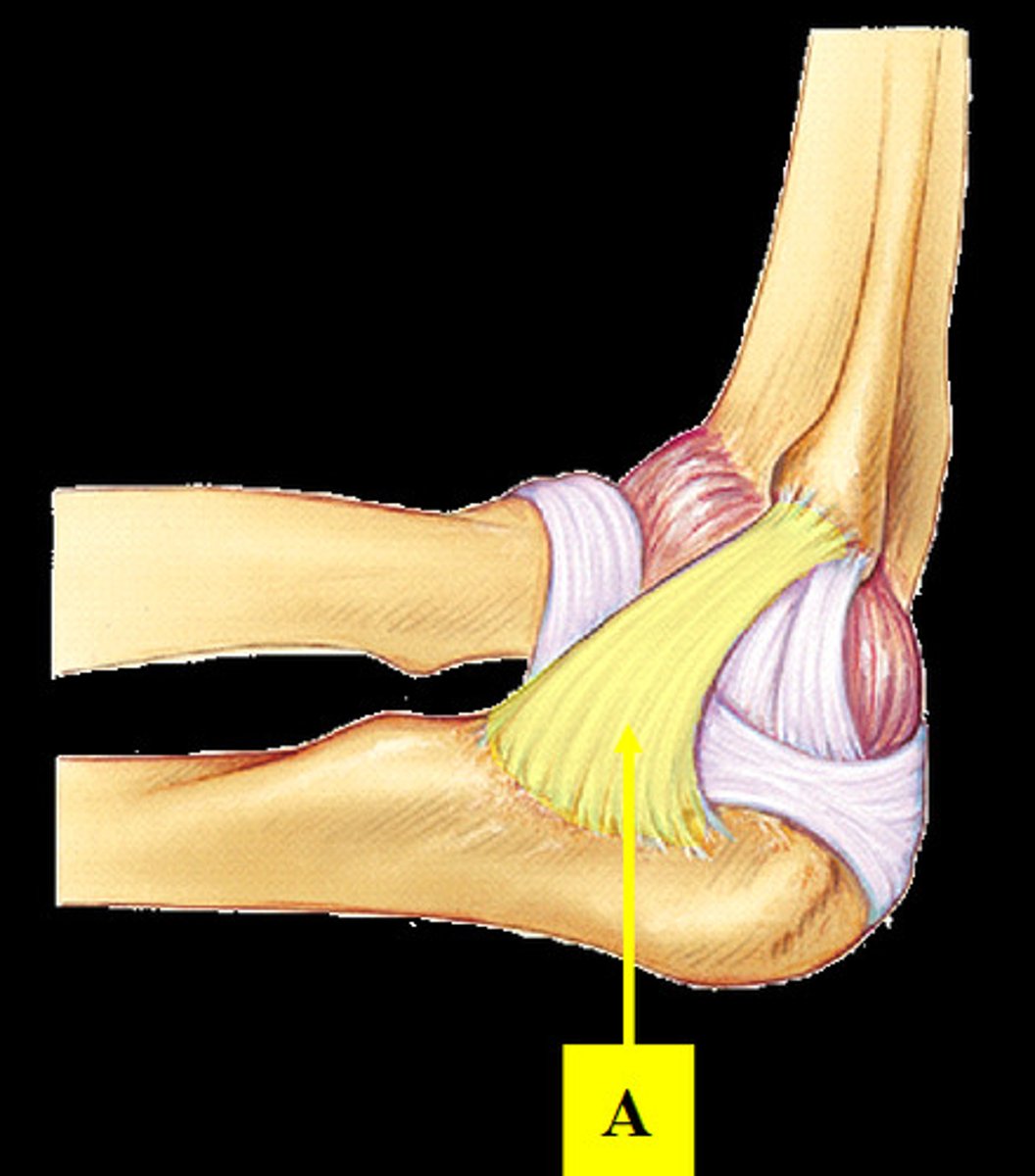
annular ligament
identify the structure
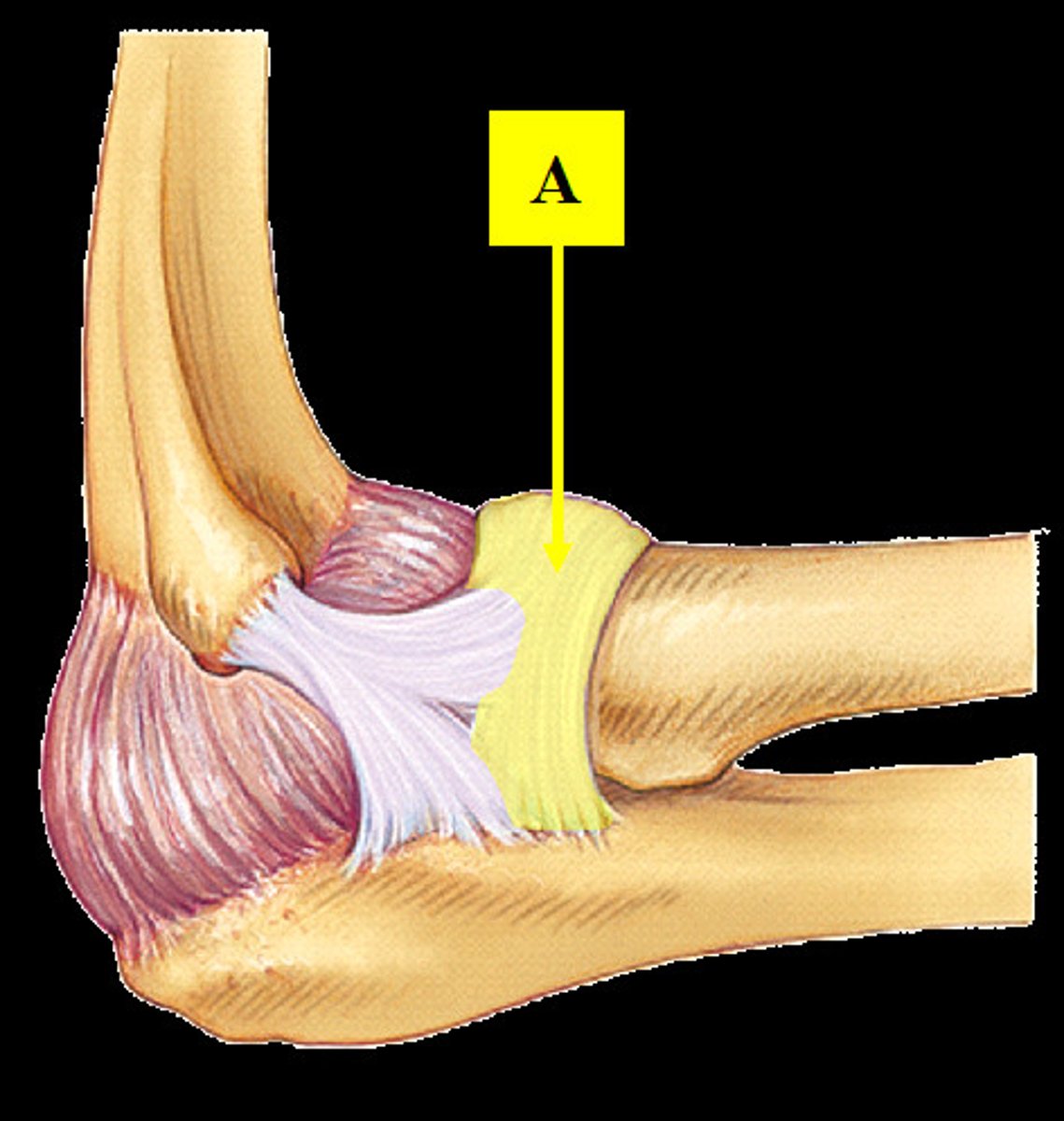
radius
in a subluxation injury, what forearm bone is dislocated?
annular ligament
in a subluxation injury, the radius is detached from what ligament?
radial tuberosity
identify the structure
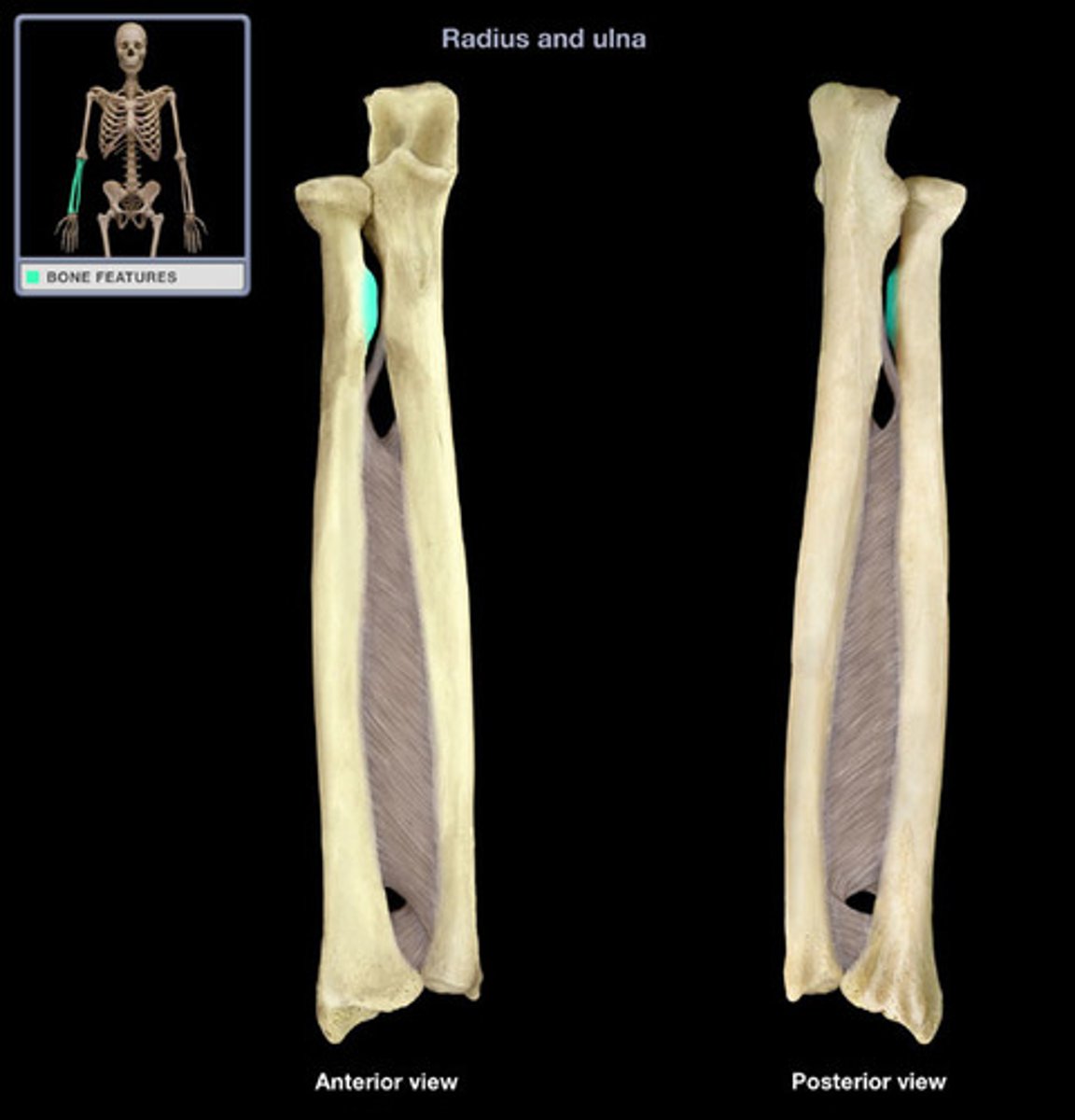
ulnar tuberosity
identify the structure
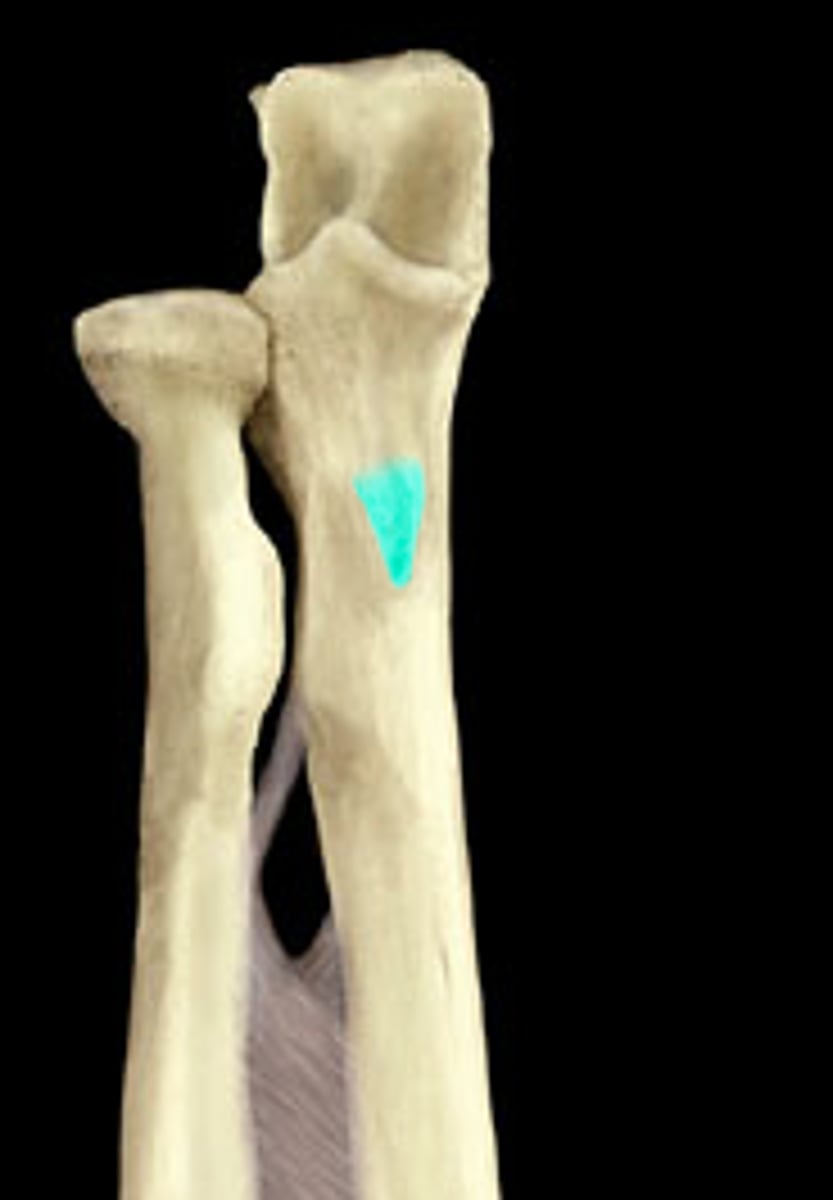
interosseous membrane
identify the structure
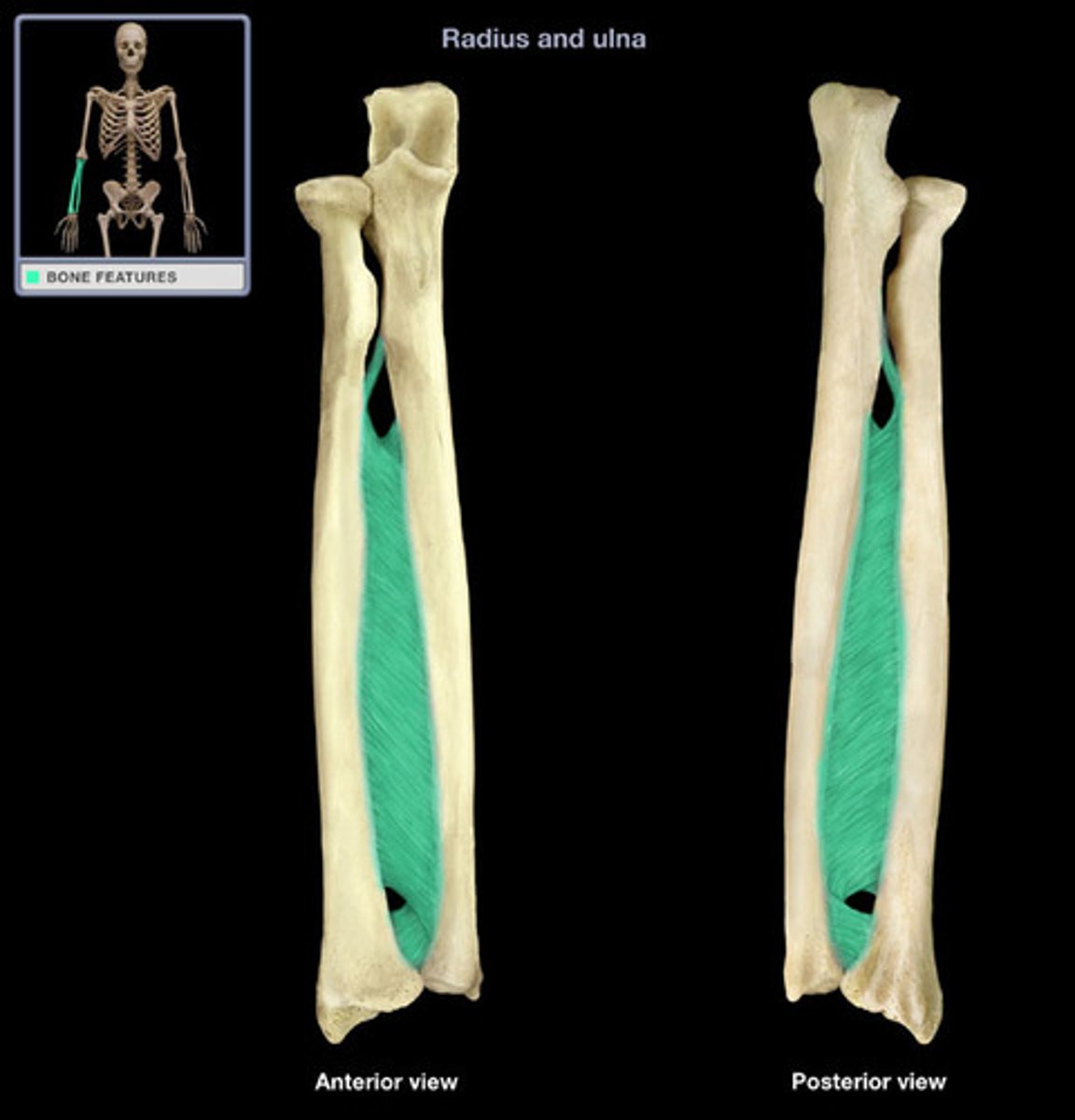
ulna
which forearm bone does NOT articulate with the wrist?
lunate bone
identify the structure
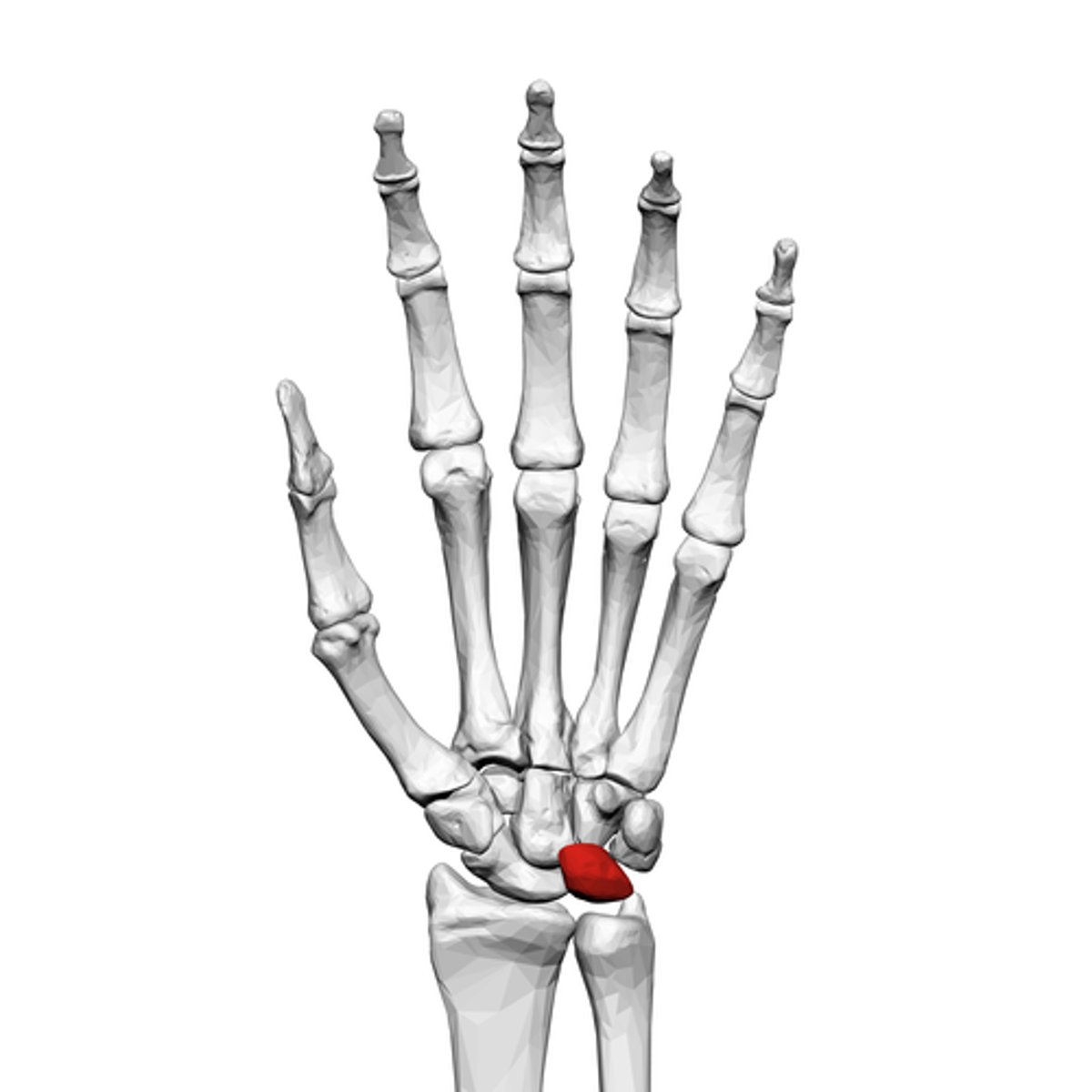
carpal bones
identify the structure
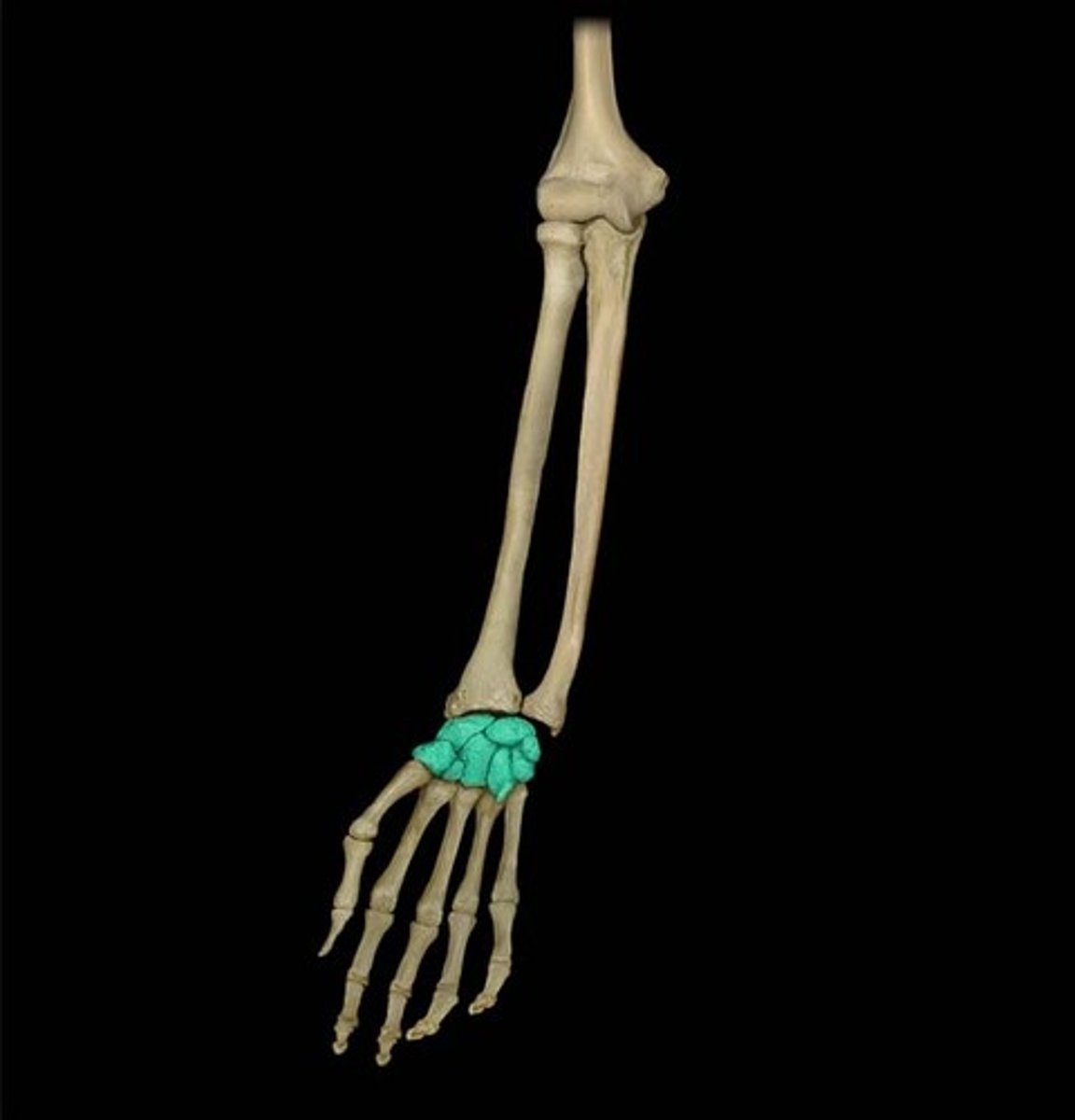
metacarpals
identify the structure
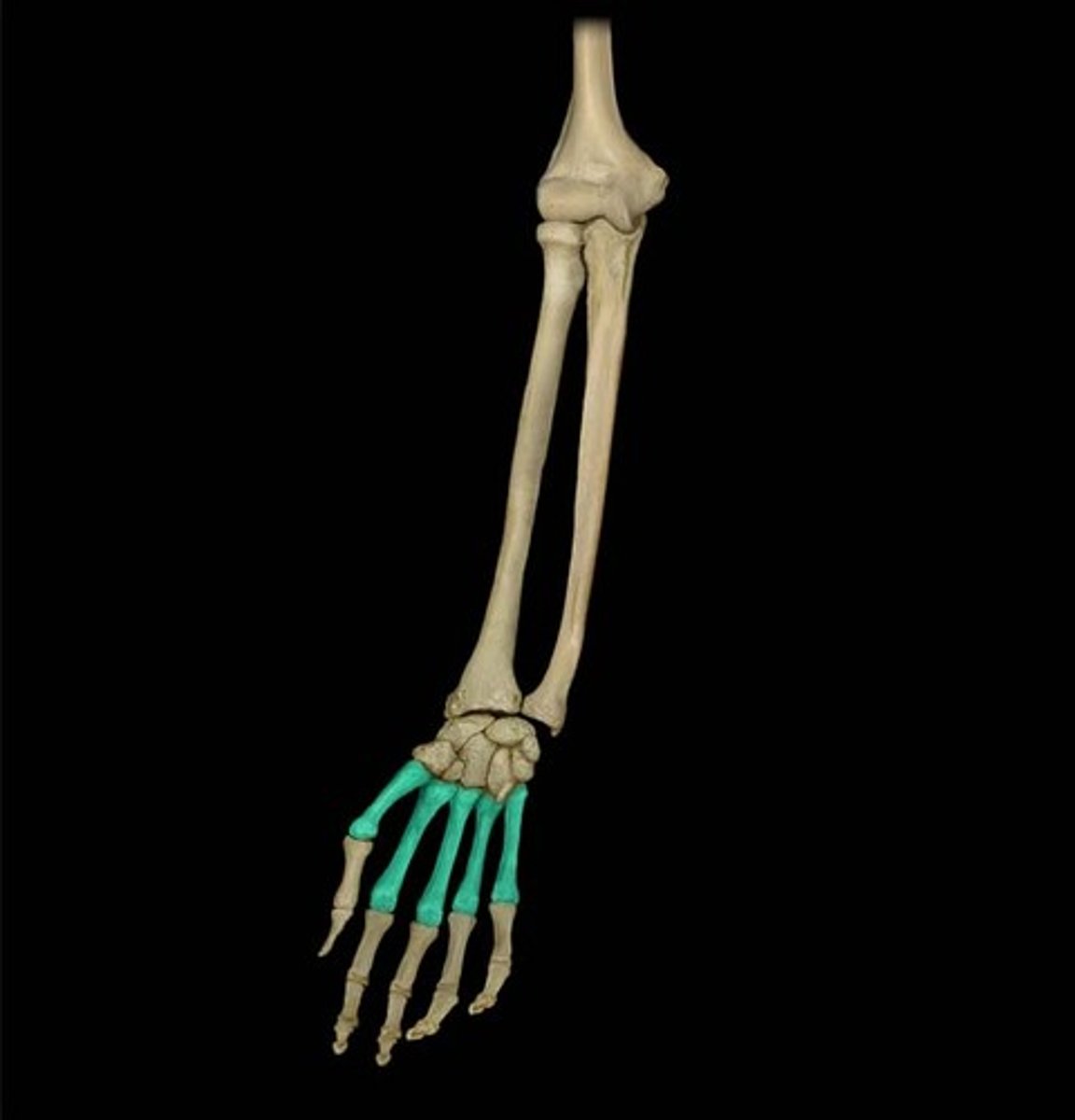
phalanges
identify the structure
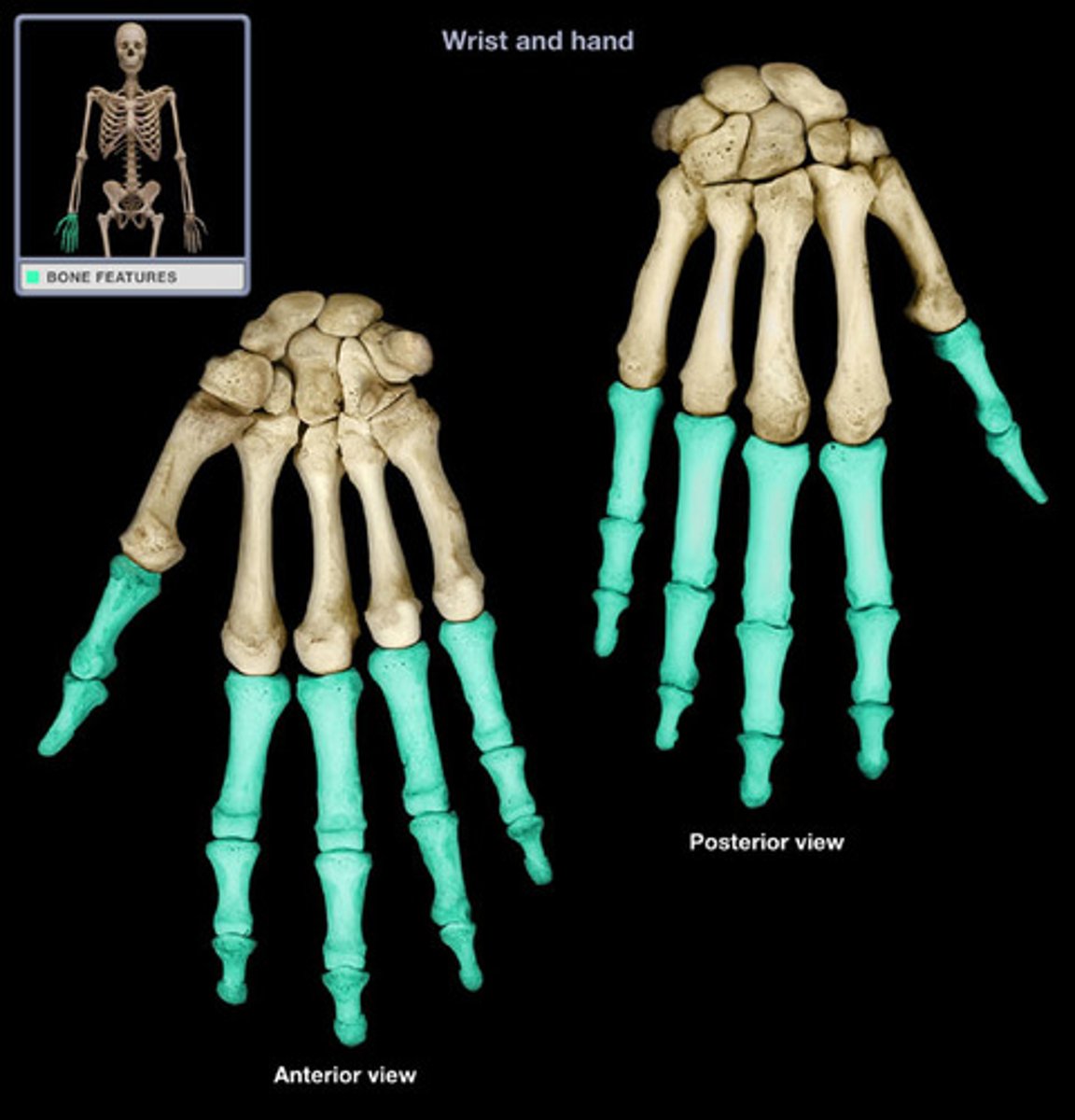
proximal interphalangeal joint (PIP)
identify the structure
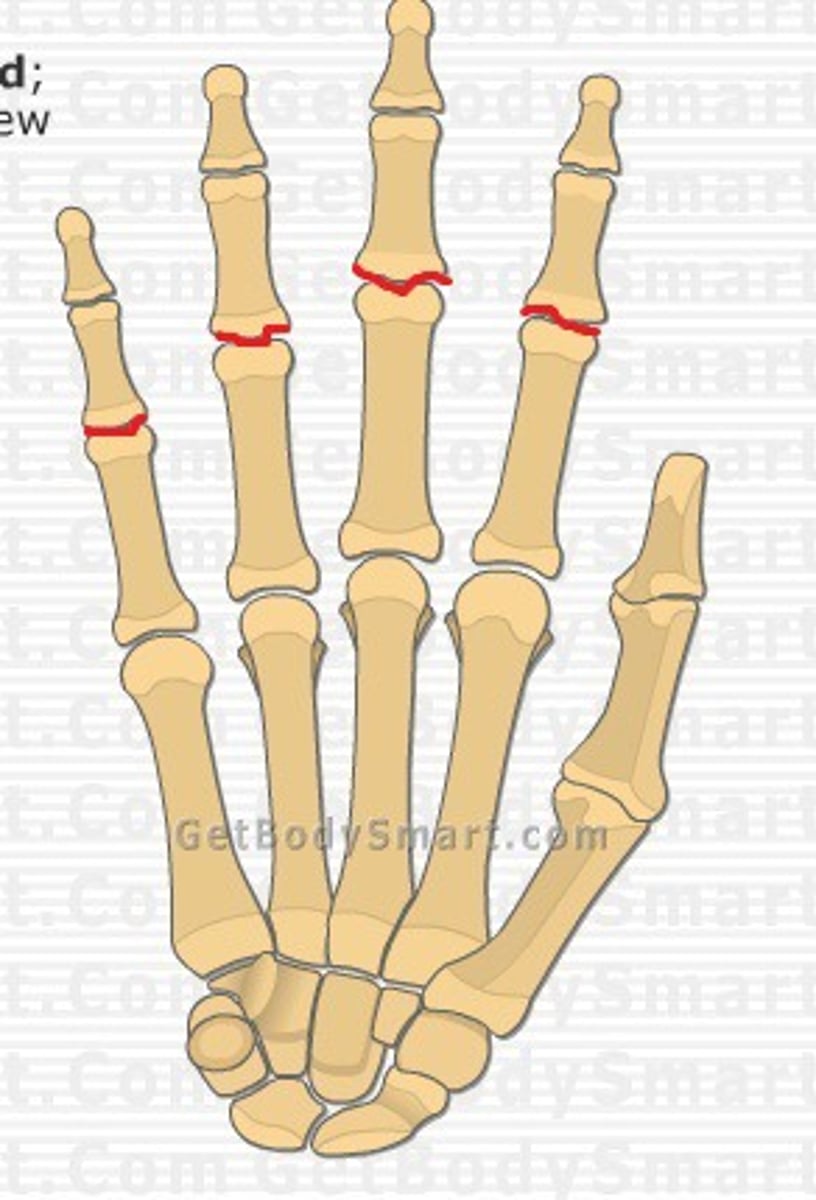
distal interphalangeal joint (DIP)
identify the structure
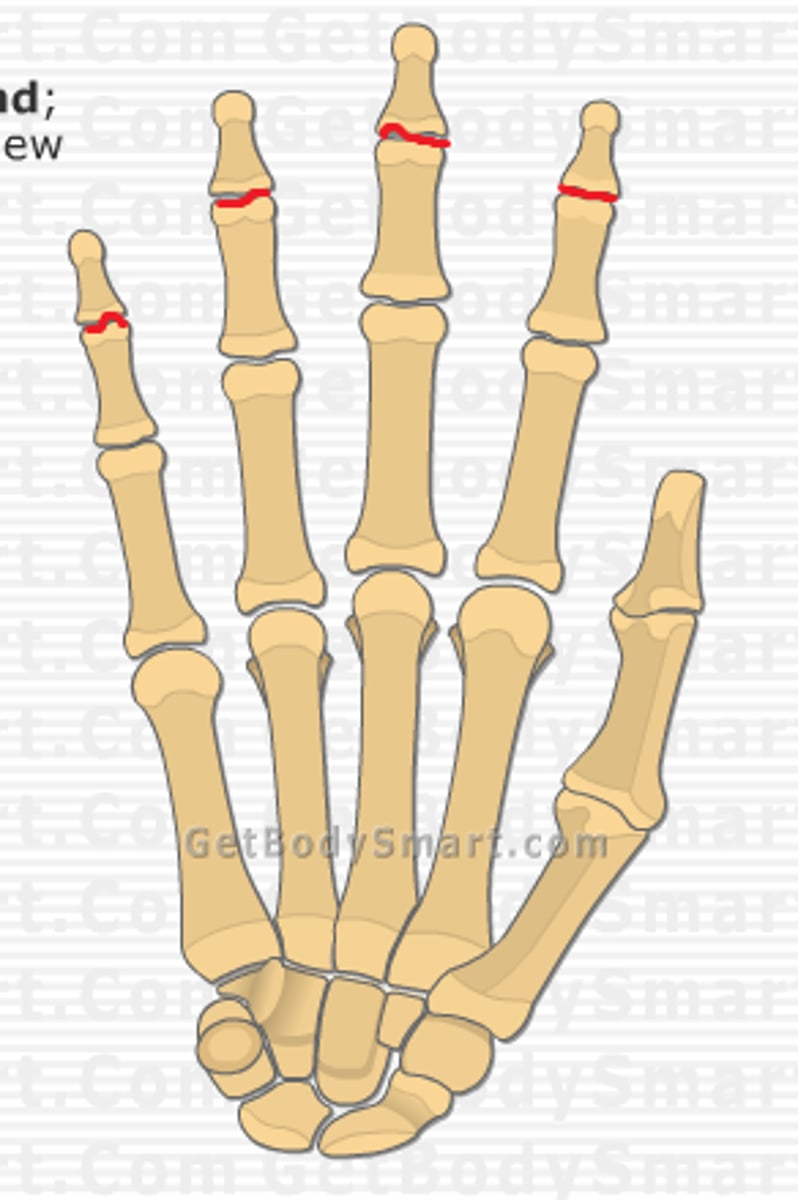
metacarpalphalangeal joint
identify the structure
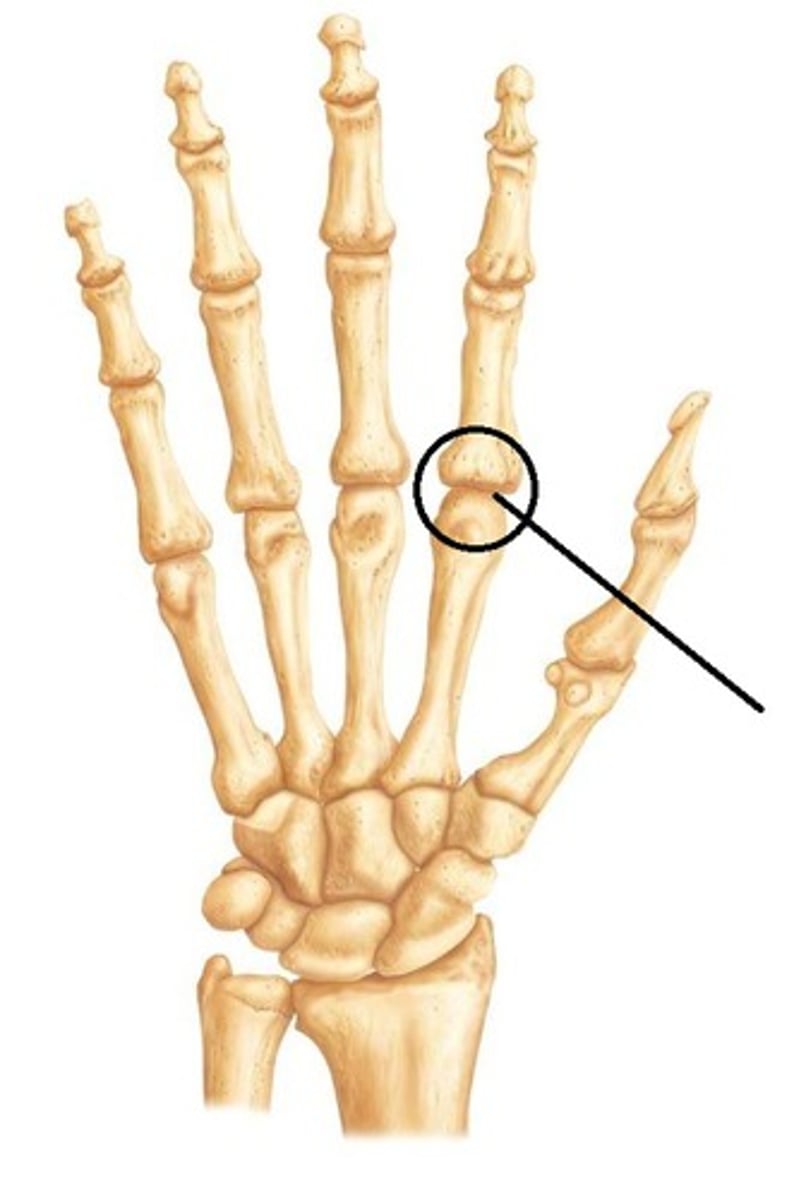
carpometacarpal joint
identify the structure
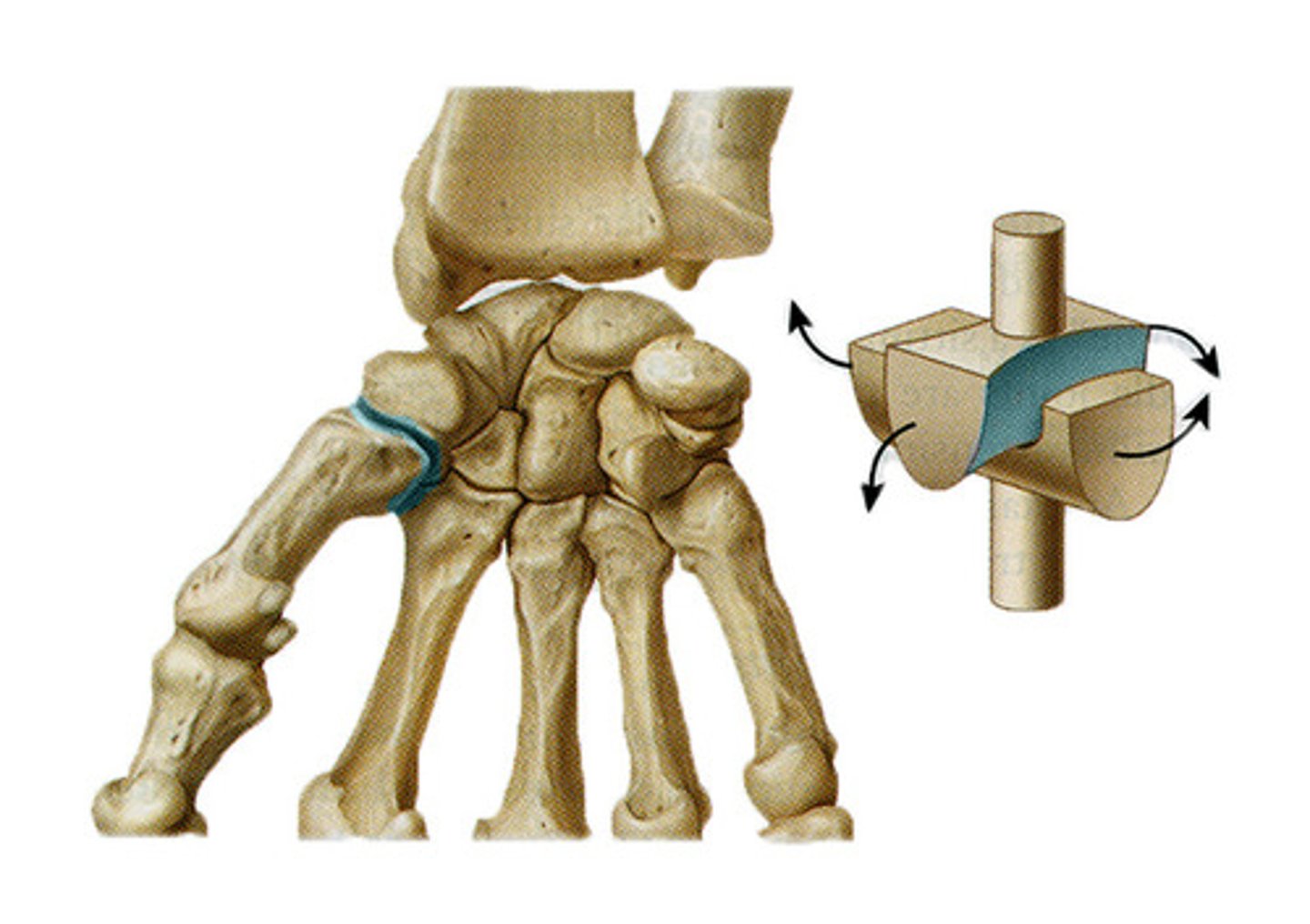
scaphoid bone
identify the structure
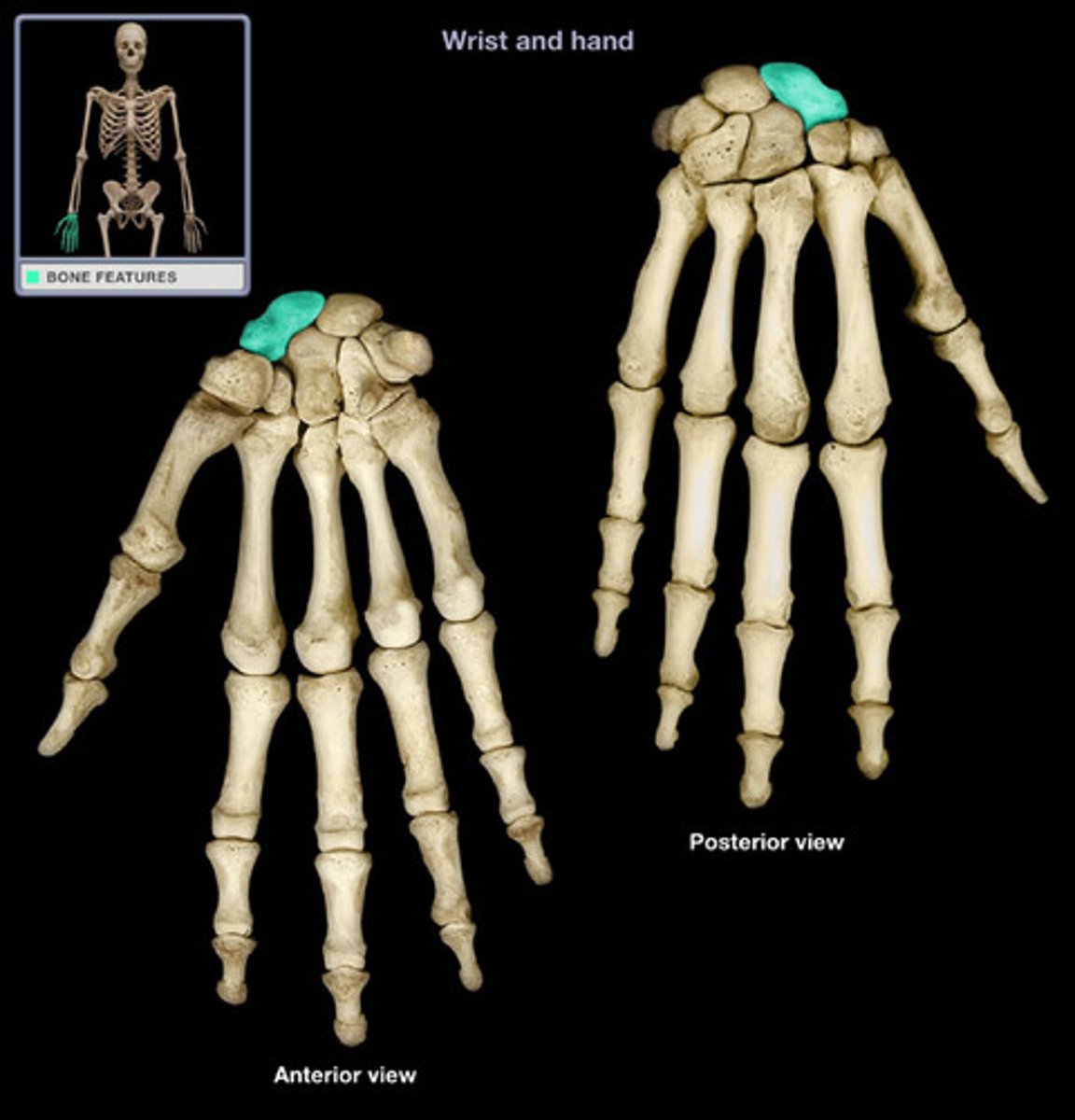
scaphoid bone
which carpel bone connects the wrist to the forearm?
triquetrum bone
identify the structure
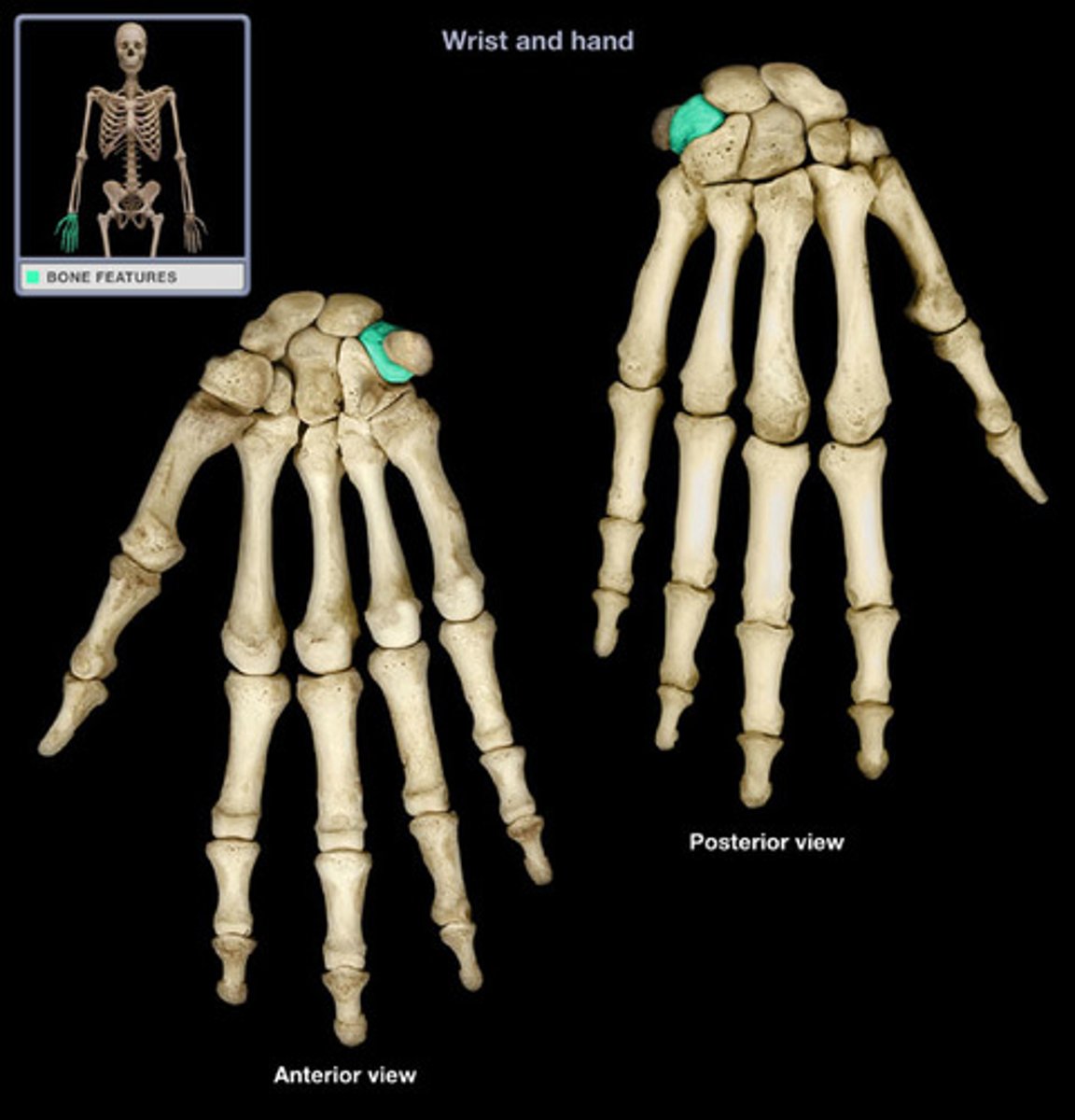
trapezium bone
identify the structure
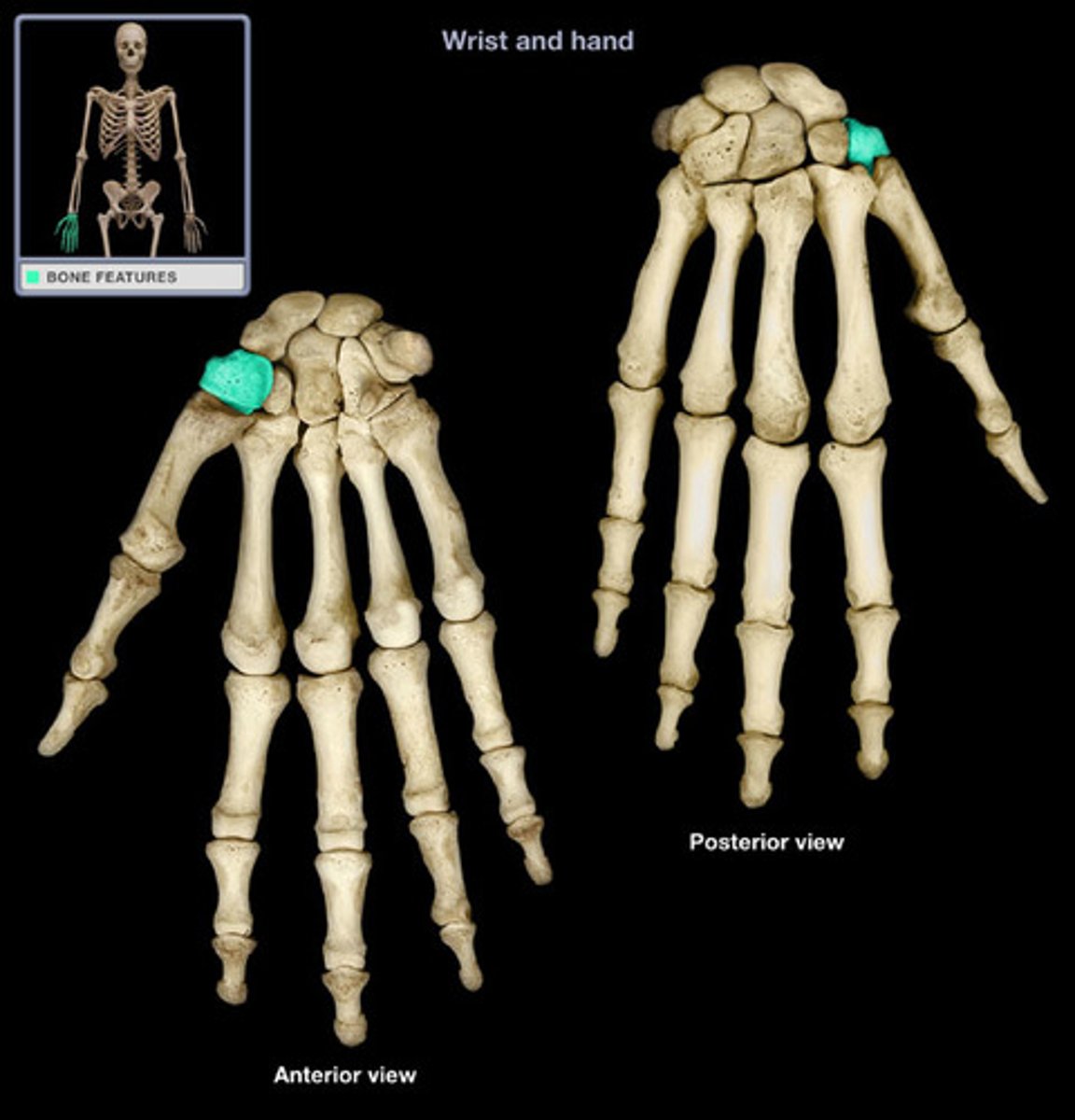
trapezoid bone
identify the structure
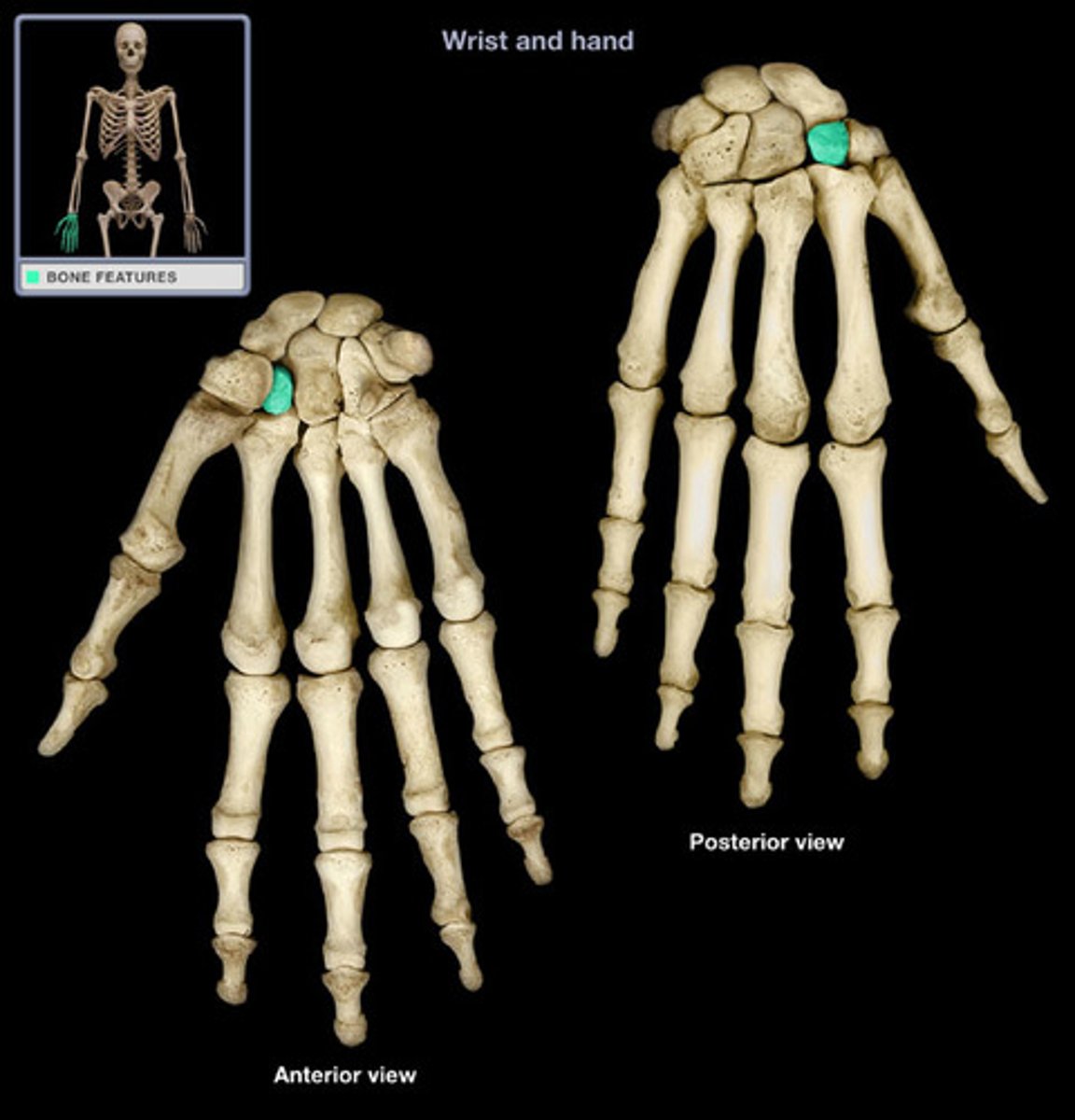
pisiform bone
identify the structure
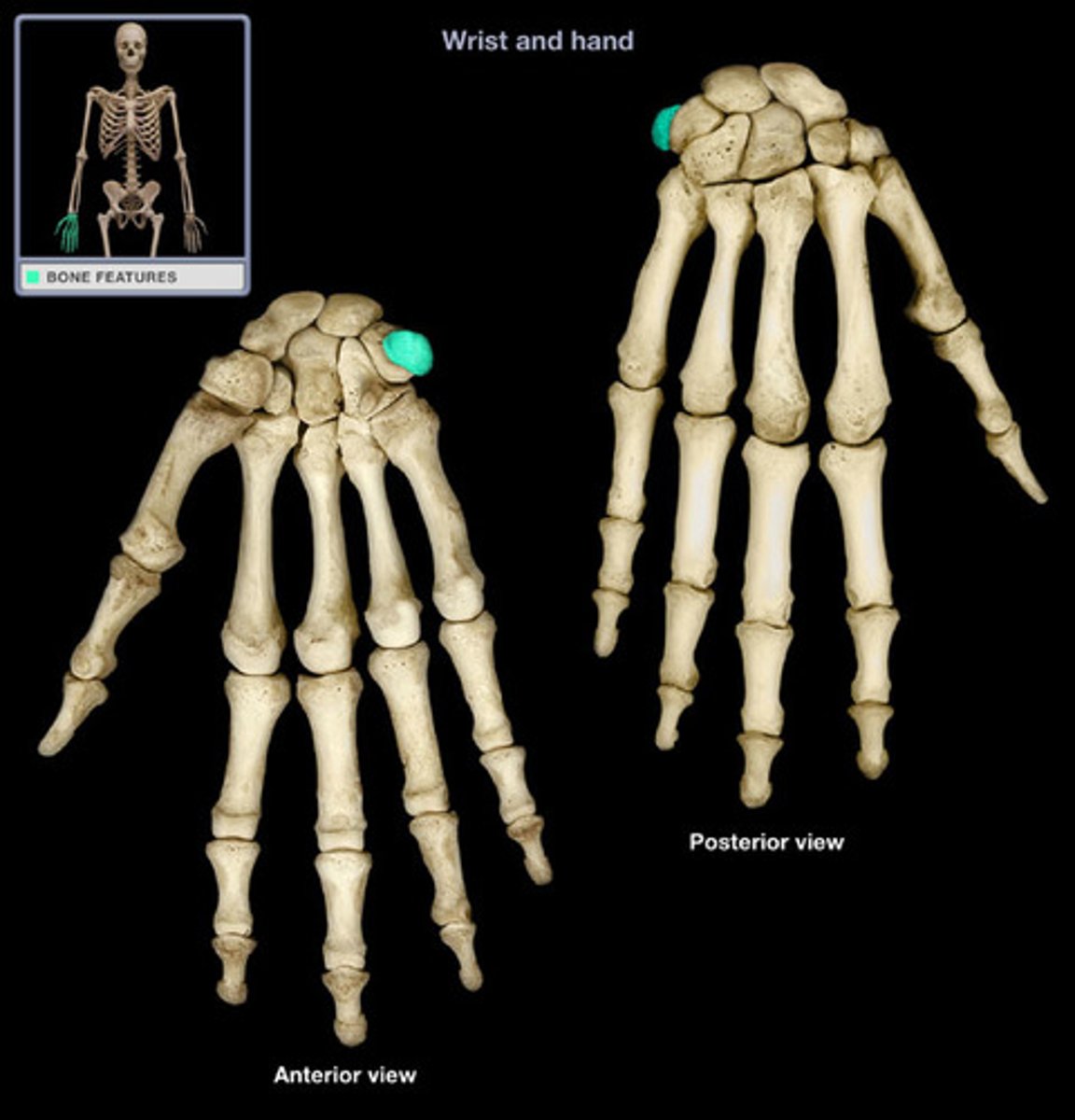
hamate bone
identify the structure
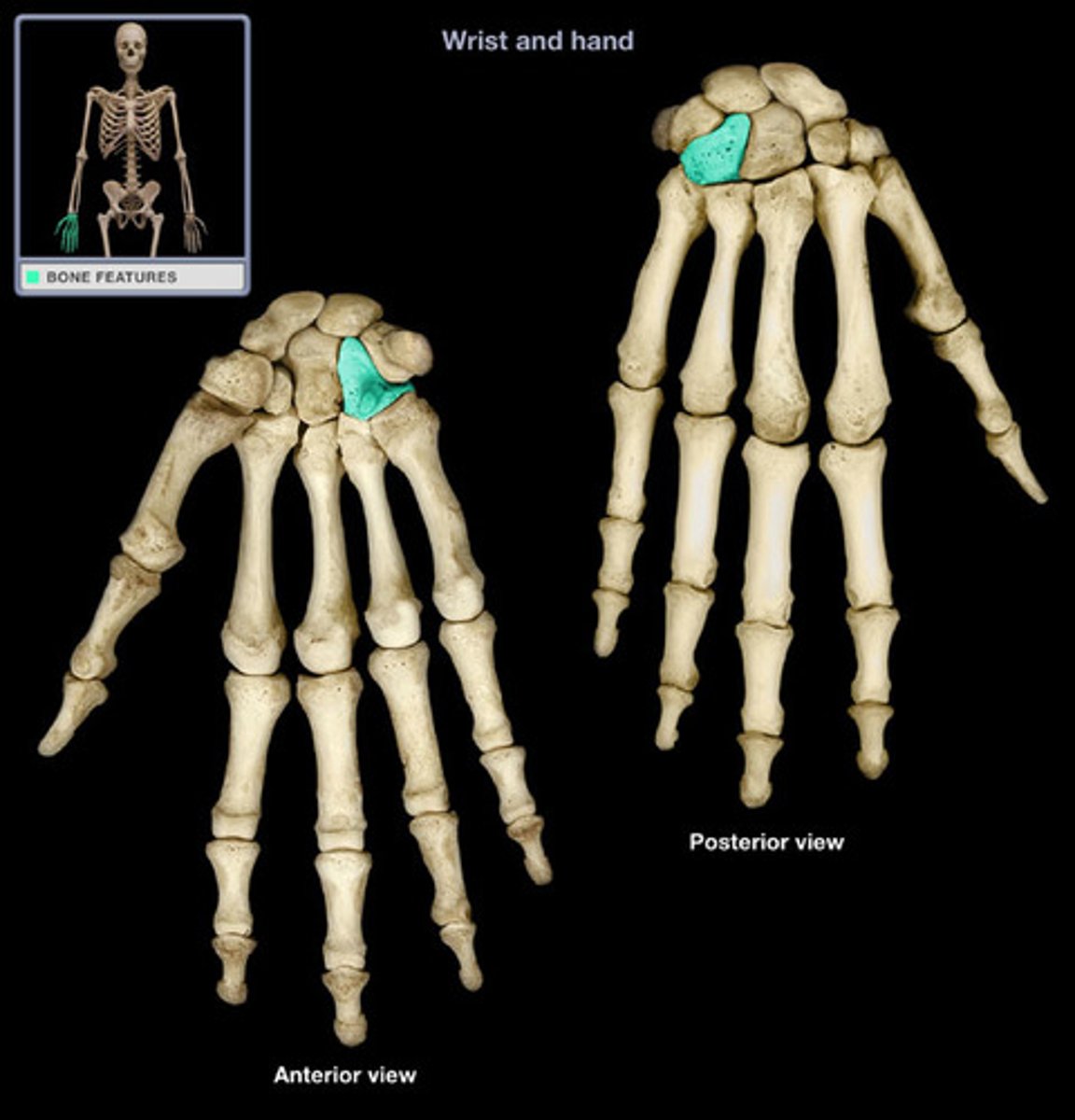
capitate bone
identify the structure
